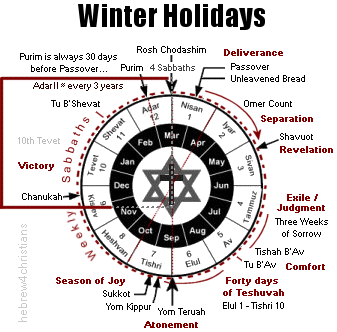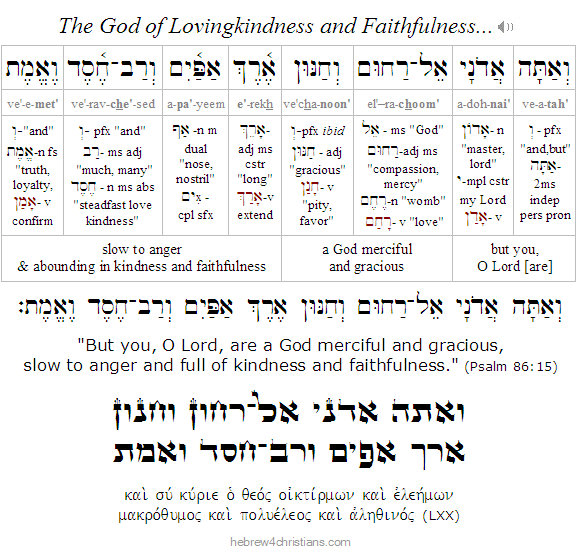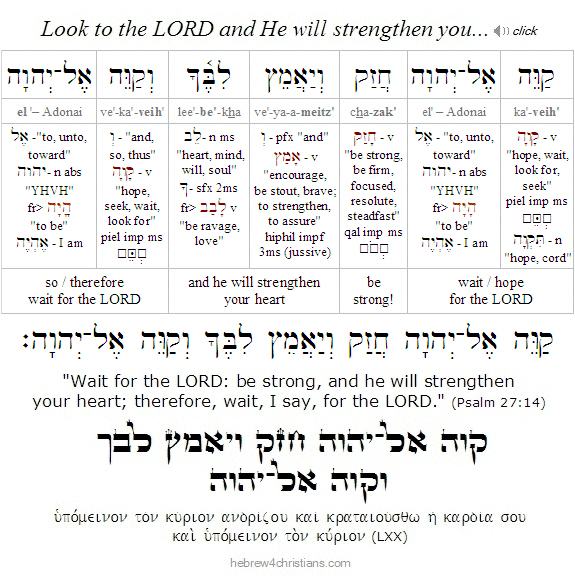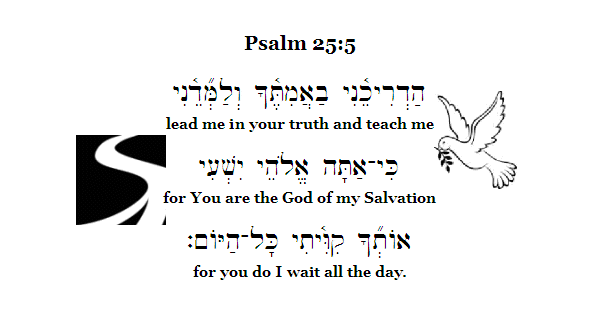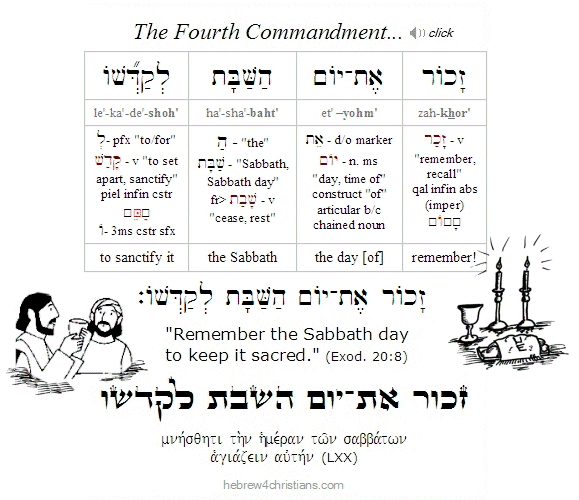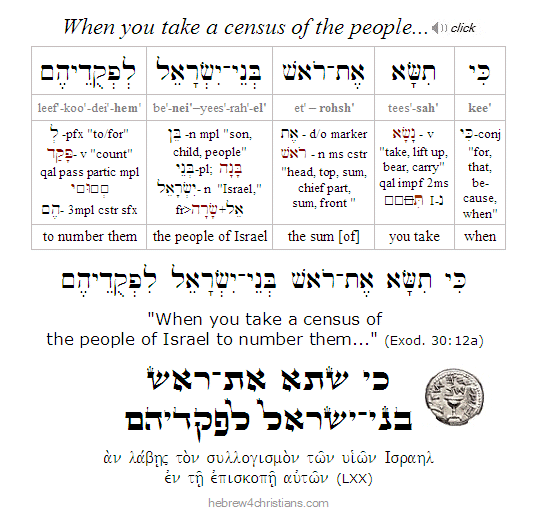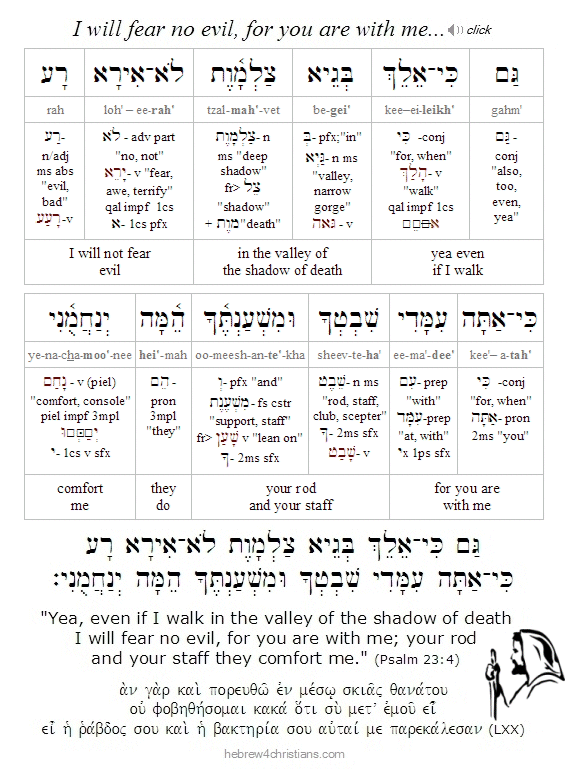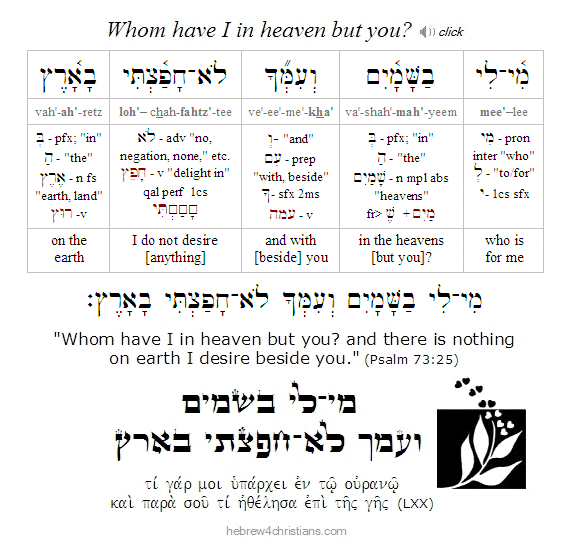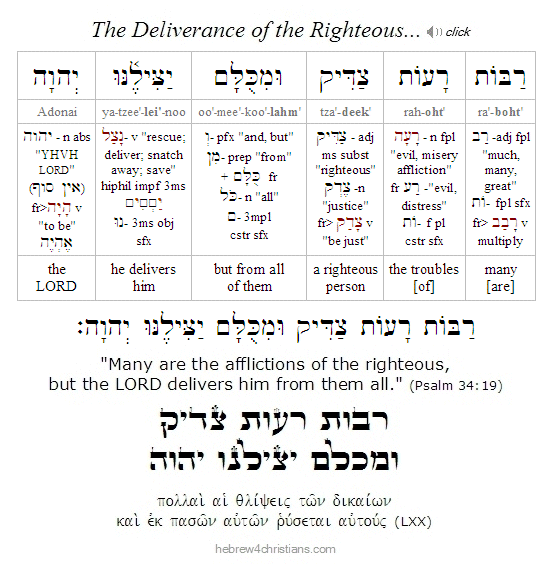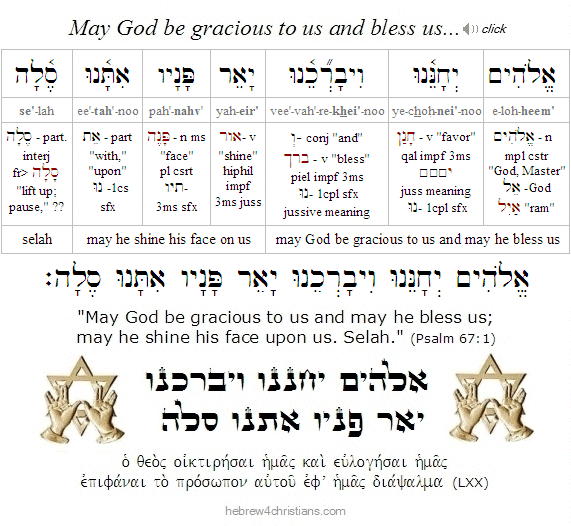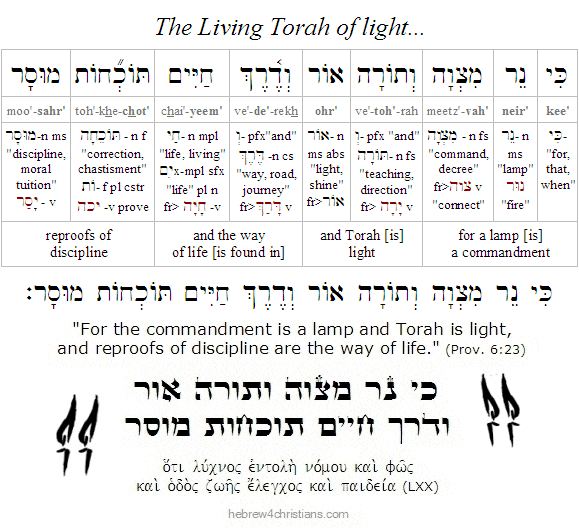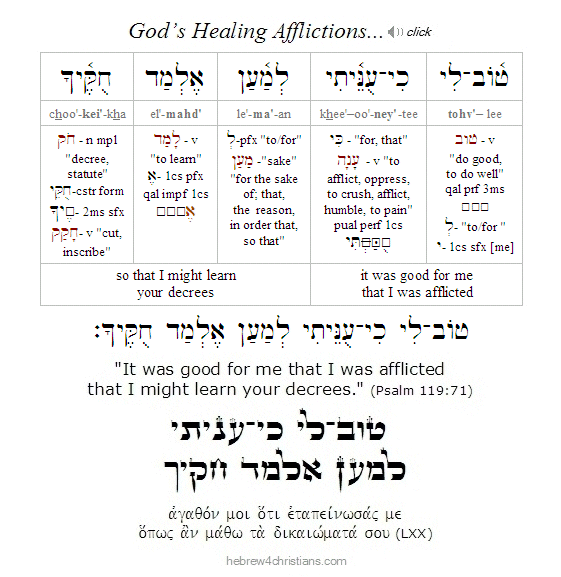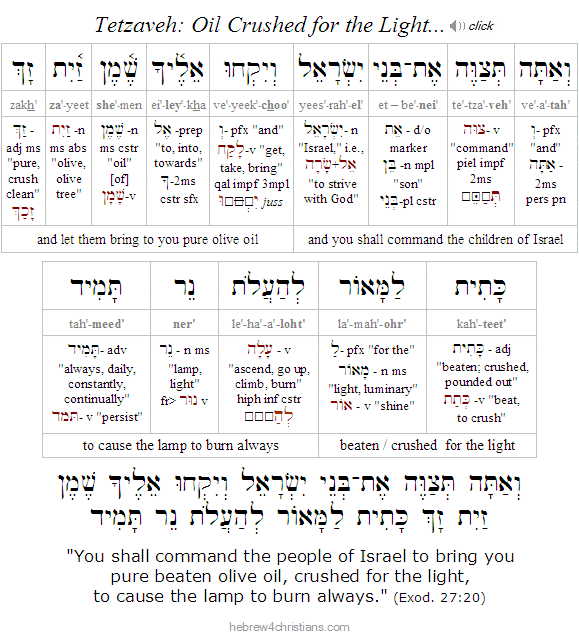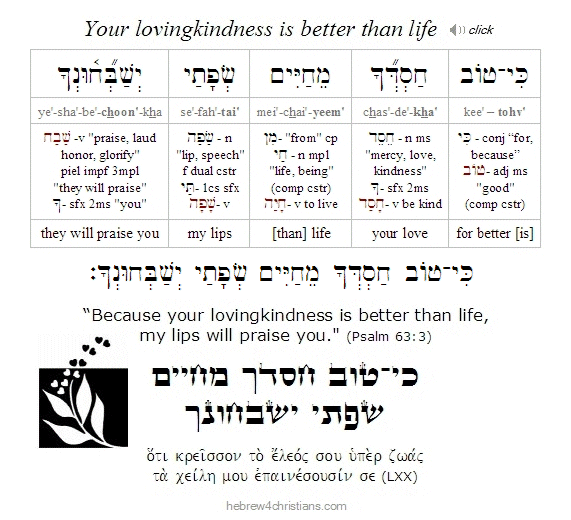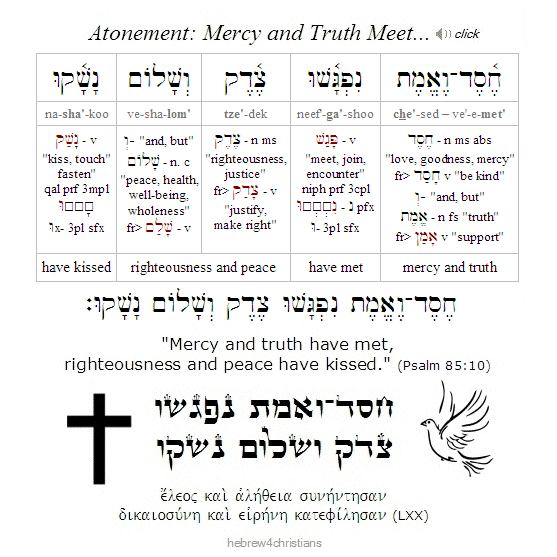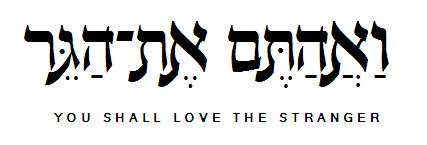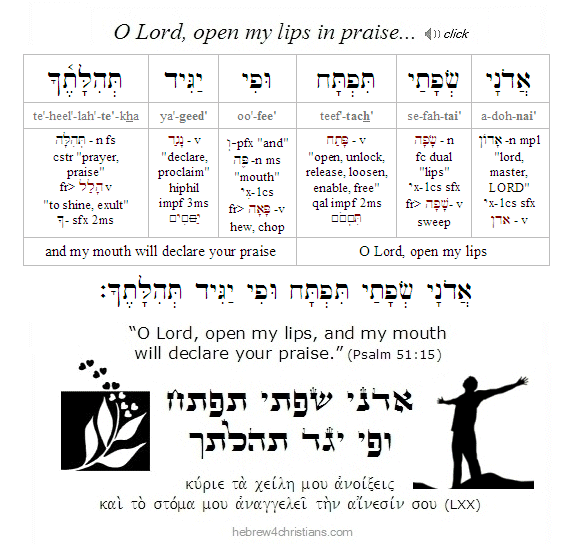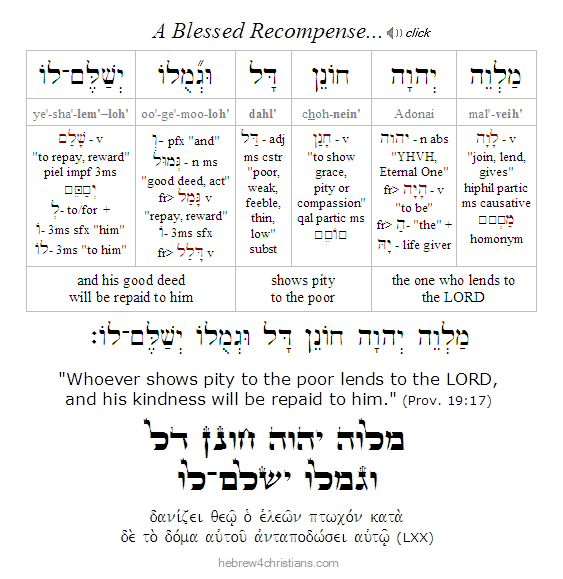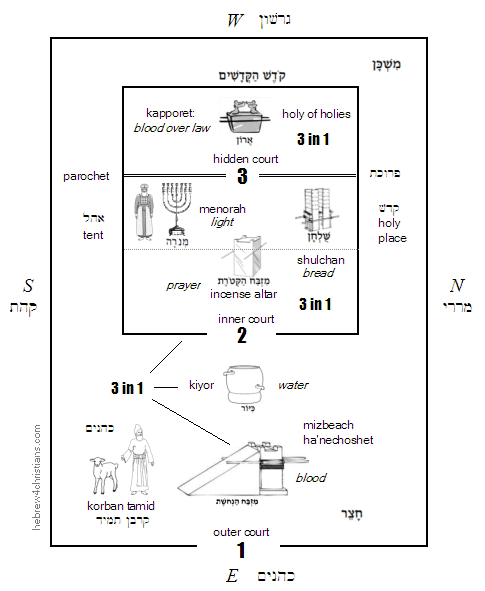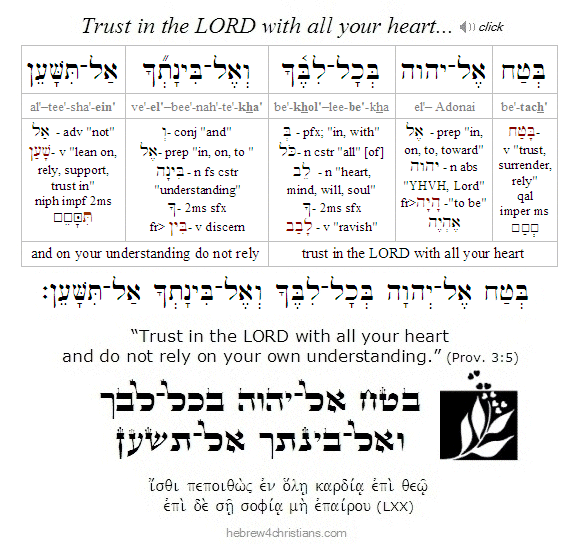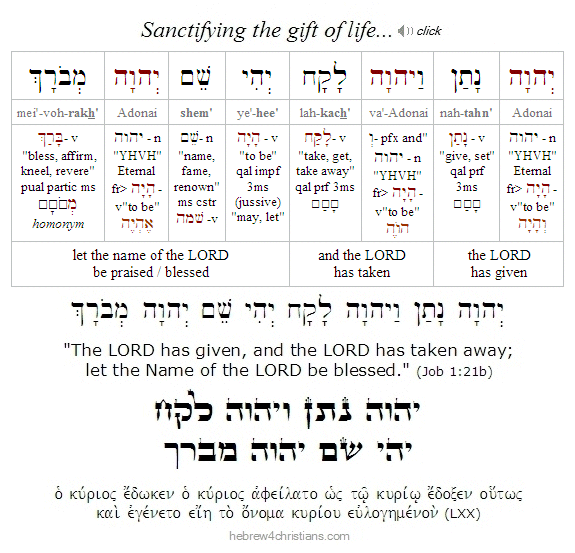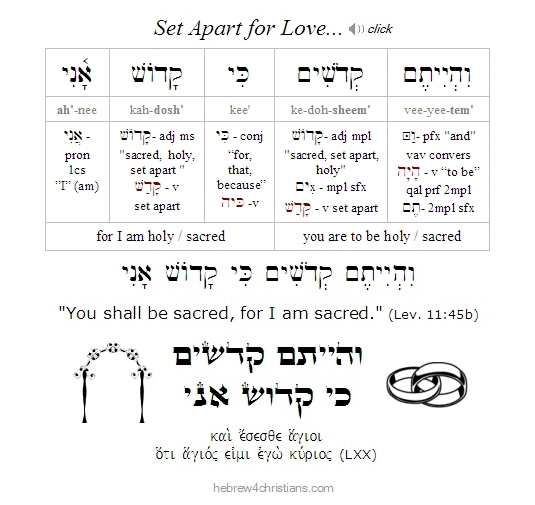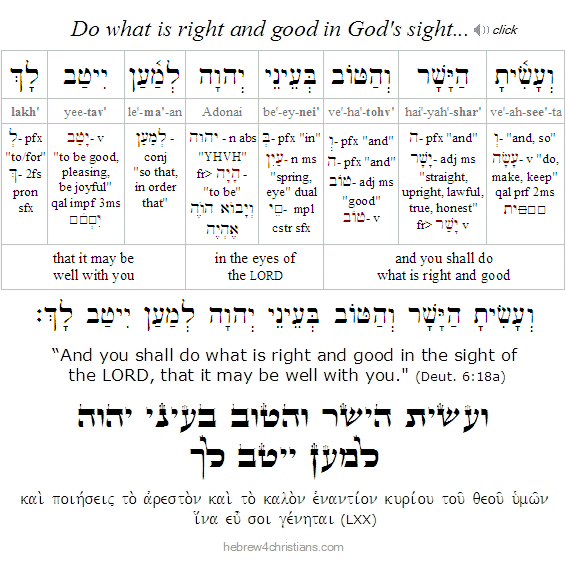|
Jewish Holiday Calendar
For February 2024 site updates, please scroll past this entry....
The winter holidays (חגי החורף) remember special times when God acted on behalf of His people so that they would triumph over their enemies, and therefore they prophetically picture the final victory in the world to come.
The Winter Holidays:
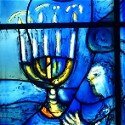
Note that in accordance with tradition, the following holiday dates begin at sundown:
- Month of Shevat (Wed. Jan. 10th [eve] - Thurs. Feb. 8th [day])
- Month of Adar I (Thurs. Feb. 8th [eve]) - Wed. March 9th [day])
- Month of Adar II (Wed. March 9th [eve]) - Mon. April 8th [day])
 |
Note: Some calendars will list the first day of a holiday without indicating that the holiday actually begins sundown the night before. For more information see the Calendar pages...
February 2024 Updates
Note: If any page content appears to be missing, please refresh the page...
What We Really Need...
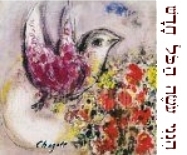
[ "But if God knows all that we need, and better far than we do ourselves, why should it be necessary to ask Him for anything?" I answer, "What if He knows prayer to be the thing we need first and most? What if the main object in God's idea of prayer be the supplying of our great, our endless need - the need of Himself?" - George MacDonald ]
02.29.24 (I Adar 20, 5784) We don't pray to attempt to change God's mind, but rather to change our own: "Your Father knows what you need before you ask him" (Matt. 6:8). Prayer is not a means of getting your Father's attention, but rather of getting your attention fixed on reality. It is a confession of your great need for Him to tell you who you really are. And while it is indeed true that "God knows everything," He does not know anything apart from his love. God does not "know" you in some "abstract" sense, like a computer that stores data and information, but rather as a parent who loves and cares for you (Psalm 103:13).
Your heavenly Father knows the number of hairs on your head; he knows the word on your tongue before you utter it, and he perfectly sees your beginning and end. He has intimate understanding of who you are and what you really need... Turn to Him in trust today.
Hebrew Lesson
Psalm 103:13 reading (click):
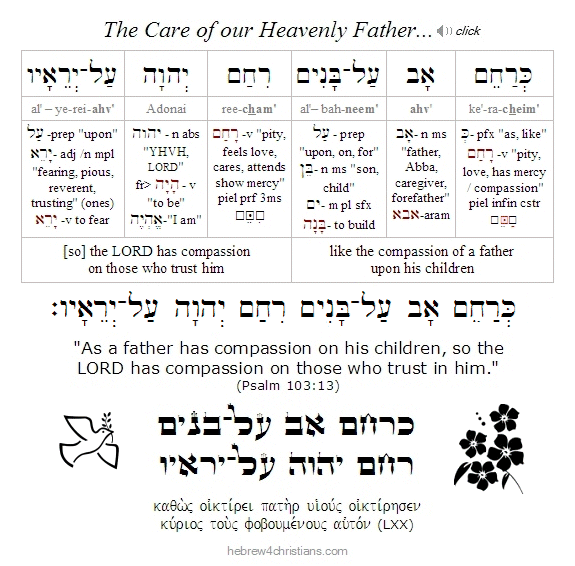 |
Torah of the Half-Shekel...
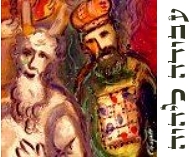
[ The following is related to this week's Torah reading, parashat Ki Tisa... ]
02.29.24 (I Adar 20, 5784) The sages say that the meaning of a holy place, or "mishkan," is not only something "within us" but is also something we share between us. As Yeshua said: "Where two or three are gathered in my Name, there I am in their midst" (Matt. 18:20).
The offering of the "half-shekel" (i.e., chatzi ha'shekel: חֲצִי הַשֶׁקֶל) that is mentioned in this week's Torah portion (i.e., Ki Tisa) symbolizes how each of us individually contributes to make a shared holy place of the Lord. Recall that each person, no matter how rich or how poor, was required to offer a half-shekel, that is, a small silver coin equal to a few dollars in today's currency, for the sake of the upbuilding of the sanctuary (Exod. 30:-12-16). Originally these half-shekels were collected (in a census) and then melted down to make the silver sockets for the mishkan, that is, sockets used to anchor the frame of the Holy Place (אַדְנֵי הַקֹּדֶשׁ) as well as to make hooks for the beams (ווִים לָעַמּוּדִים) to hold the inner veil (Exod. 38:27-28). The sages comment that these sockets and hooks secured the foundation and held the sanctuary in place -- a beautiful picture of how a part of each person upholds the sacred place.
Interestingly the half-shekel contribution was said to be an offering to "atone for your souls" (לְכַפֵּר עַל־נַפְשֹׁתֵיכֶם), which some sages said represents the giving of the soul to God, but it also suggests the need for atonement within the innermost chamber of the Holy of Holies (i.e., the heart). The Torah's language, however, makes it clear that the giving of the half-shekel is quite a serious matter, since its contribution created a sense of community that is vital to our spiritual well-being. We all need each other, and the half-shekel only has its place among other half-shekels, which is to say that a given individual contribution may seem insignificant, but it is equally important to the whole. The whole may be greater than the sum of its parts, but the parts are essential to make the whole...
Every "jot and tittel," chaverim; the pattern of the Mishkan reveals much. Individual believers are "the temple of the living God" and "temples of the Holy Spirit" where God's presence dwells (1 Cor. 6:19; 2 Cor. 6:16). Collectively we are "joined together to become a dwelling place of God in the Spirit (Eph. 2:21-22). We are brought together as "living stones" to form a "spiritual house" and to serve as priests who offer sacrifices of praise to God (1 Pet. 2:5).
The "Torah of the Half-Shekel" teaches that each of us has something essential to contribute to the sanctuary of God, and no one can be left out. The Holy Place belongs to us all. Amen.
Hebrew Lesson
Psalm 23:3 Hebrew reading (click):
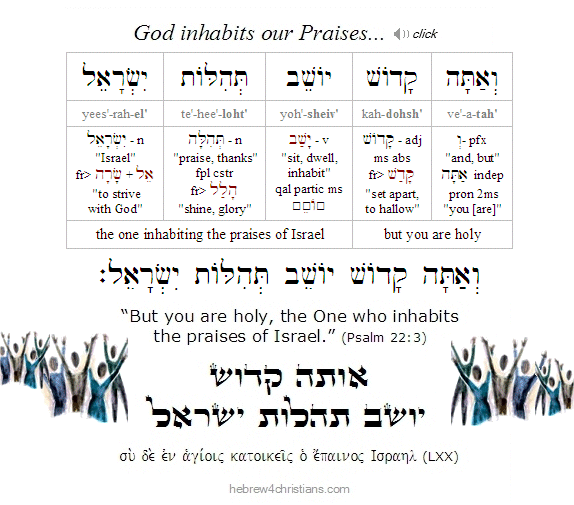 |
Blessing of Willingness...

[ "Let me seek you in the darkness of my silence, and find you in the silence of Your light, which is love shining as the sun, flowing like the river, and joying like the heart." - Meister Eckhart ]
02.29.24 (I Adar 20, 5784) When King David repented from his sin and asked God's forgiveness, he appealed to the LORD: "Restore me to the joy of your salvation (יְשׁוּעָה) and sustain me with a willing spirit. Then I will teach transgressors your ways, and sinners will return to you" (Psalm 51:12-13). The sages comment that this is indeed the way of the LORD (דֶּרֶךְ יְהוָה), namely, to confess your sin, and in brokenness and heartfelt contrition, to return to the LORD full of hope in his steadfast love. In this way, sinners will understand the truth of Torah and return to the LORD God as well.... Hashiveinu, Adonai.
In the Torah we read: "if you seek for the LORD your God from there (i.e., in your place of exile), you will find him, if you search for him with all your heart (בְּכָל־לְבָבְךָ) and with all your soul" (Deut. 4:29). From where do we search, from what place, except from a place of hardship, testing, and tribulation? If you seek for the LORD your God from there - in the midst of your exile, in the midst of your heart's cry - you will find him there, in your heart. This message is a prophecy to the heart of faith, so that even after testing befalls you, in the end you will belong to the LORD and will hear his voice. Amen. Have faith in God to heal.
Hebrew Lesson
Psalm 51:12 reading (click):
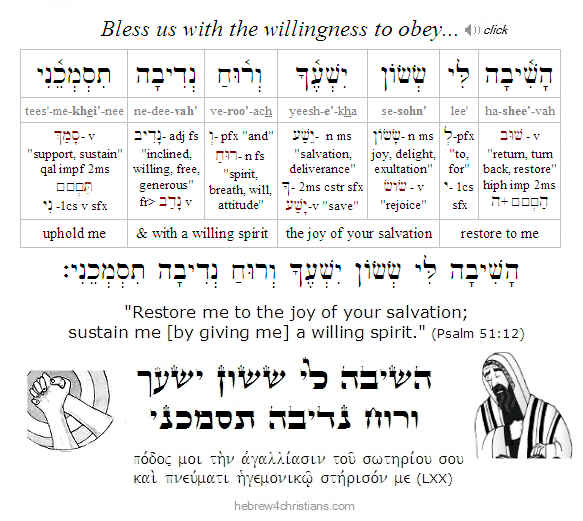 |
The Gospel at Sinai...
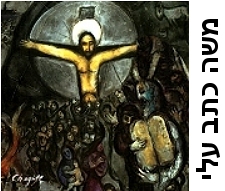
[ The following is related to this week's Torah reading, parashat Ki Tisa... "Moses wrote of Me." ]
02.28.24 (I Adar 19, 5784) The tragic episode of the Golden Calf revealed that the Israelites were unable to keep the law, even though they had personally experienced the power of God's deliverance from Egypt and had heard God's Voice directly speaking the Ten Commandments at Mount Sinai. The presence of the idol demonstrated that something more was needed, and that the law by itself was insufficient to change the heart (Rom. 3:20).
The poignant intercession of Moses on behalf of Israel - his willingness to die on behalf of the people - foreshadowed the need for a New Covenant (בְּרִית חֲדָשָׁה), a deeper revelation of the righteousness of God in terms of mercy and grace (Exod. 34:6-7; John 1:17; Rom. 3:21). The (second) revelation of the Name YHVH (יהוה) therefore represented a "gospel" moment for Israel. Just as the first set of tablets, based as they were on the justice and holiness of God, were broken, so a second set was graciously restored based on God's forgiveness and love. Likewise, Yeshua was broken on behalf of the law but was raised again so that all who trust in Him can understand that God is "merciful and gracious, slow to anger and abounding in steadfast love and truth" (Exod. 34:6, Psalm 86:15, 103:8). Only at the cross of Yeshua are God's justice and love forever reconciled (Prov. 16:6; Psalm 85:10; Rom. 3:26).
Hebrew Lesson
Psalm 86:15 Hebrew reading:
For more on this subject, see the Ki Tisa article, "God's Stubborn Love."
He Hears your Prayers...

02.28.24 (I Adar 19, 5784) Yeshua told us: "If you live in Me, and My words live in you, ask whatever you wish, and it will be done for you. By this My Father is glorified, that you bear much fruit; so you will be My disciples" (John 15:7-8).
If you really believe that Yeshua is alive right now, with ears and heart open to your every prayer, then wouldn't this be the most important truth you could know? and wouldn't your prayer to Him be the most significant thing you could ever do?
A life of prayerful communion with the Lord is the highest form of life we can experience this side of heaven. As our Lord further said: "You did not choose Me but I chose you, and appointed you that you would go and bear fruit, and that your fruit would remain, so that whatever you ask of the Father in My name He may give to you" (John 15:16). Amen, this is the "now" covenant we have with the Lord...
So be encouraged to call upon the Lord for help: Come boldly before the Throne of his Grace (Heb. 4:16). "Ask, for it will be given to you; seek, and you will find; knock, and it will be opened to you. For everyone who asks receives, and he who seeks finds, and to him who knocks it will be opened" (Matt. 5:7-8). Amen.
Hebrew Lesson
Psalm 145:18 Hebrew reading:
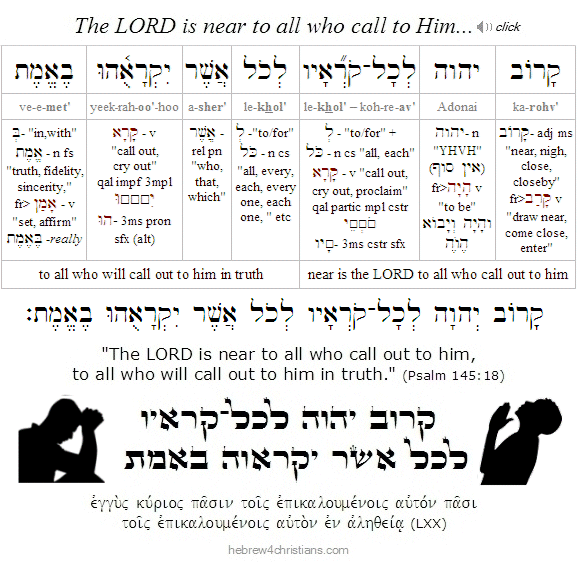 |
The Torah of Mercy...
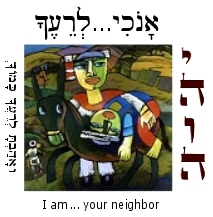
02.28.24 (I Adar 19, 5784) In this week's Torah portion (i.e., Ki Tisa) we read: "Therefore the people of Israel shall keep the Sabbath, observing the Sabbath (לַעֲשׂוֹת אֶת־הַשַּׁבָּת) throughout their generations, as a covenant forever. It is a sign forever (אוֹת הִוא לְעֹלָם) between me and the people of Israel that in six days the LORD made heaven and earth, and on the seventh day he rested (שָׁבַת) and was refreshed (וַיִּנָּפַשׁ)" (Exod. 31:16-17).
Upon a closer consideration of this text we might wonder how we can both "do" and "not do" something at the same time? Note that the phrase "observing the Sabbath" (לַעֲשׂוֹת אֶת־הַשַּׁבָּת) can literally be understood as "making" or "doing" (עשׂה) the Sabbath, and yet we are told to "rest" -- שָׁבַת -- meaning to cease or desist from any labor (מְלָאכָה). Indeed God calls the Sabbath day "shabbat shabbaton" (שַׁבַּת שַׁבָּתוֹן), a day of complete rest, holy to the LORD (Exod. 31:15). So how can we "make" the Sabbath and yet cease from work?
The sages have attempted to resolve this paradox by saying that the words, "on the seventh day he rested and was refreshed" (וּבַיּוֹם הַשְּׁבִיעִי שָׁבַת וַיִּנָּפַשׁ) imply that God did something after he created the universe, namely he "made rest" by celebrating the work of his hands and savoring the beauty of his creation. God "set the table" for creation and paused to reflect on its significance and purpose, and he wants us to do likewise.
We can "make" the Sabbath day a time of "rest" or menuchah (מְנוּחָה), by letting go of our weekly concerns and the usual preoccupations that surround our lives. Sabbath is an invitation to "ascend" to a higher level, to consciously re-connect with God as both our Creator and our Redeemer. We lift up the cup of God's salvation; we partake of the bread of heaven.... We glorify the great Lamb of God. If we make the Sabbath a delight, a time of holiness and honor, then God "will cause you to ride upon the high places of the earth, and he will feed you with the heritage of Jacob thy father" (Isa. 58:13-14). "Behold, the LORD'S hand is not shortened, that it cannot save; neither is his ear heavy, that it cannot hear."
The Fourth Commandment says we are to keep the Sabbath day holy (קָדוֹשׁ), and it further connects this with separating from worldly preoccupation: "six days shall you labor and do all your work" (Exod. 20:9). Resting from work, as Abraham Heschel once said, "is not a depreciation but an affirmation of labor, a divine exaltation of its dignity." And because we are called aside from the burden of the mundane, we are "lifted out" of the process of time, not focusing on what we do but rather who we are as God's redeemed people...
This is further exemplified in the ministry of Yeshua who "worked" on the Sabbath in the sense of doing acts that were derived from his connection with heaven. It can be assumed that Yeshua and his family faithfully observed the Sabbath and regularly attended synagogue (Luke 4:16). However later on, during the time of his active ministry we read that Yeshua's idea of the Sabbath included doing works of lovingkindness (גְּמִילוּת חֲסָדִים): "At that time Yeshua went through the grain fields on the Sabbath. His disciples were hungry and began to pick some heads of grain and eat them. When the Pharisees saw this, they said to him, 'Look! Your disciples are doing what is unlawful on the Sabbath.'" But he said to them, 'Have you not read what David did when he was hungry, and those who were with him: how he entered the house of God and ate the bread of the Presence, which it was not lawful for him to eat nor for those who were with him, but only for the priests? Or have you not read in the Law how on the Sabbath the priests in the temple profane the Sabbath and are guiltless? I tell you, something greater than the Temple is here'" (Matt. 12:2-6).
Here we see Yeshua's understanding that Sabbath is to be centered upon life and healing and not merely the abstention from work. When later Yeshua was accosted by the Pharisees regarding healing a man on the Sabbath day, we read that he said to them, "Which one of you who has a sheep, if it falls into a pit on the Sabbath, will not take hold of it and lift it out? Of how much more value is a man than a sheep! So it is lawful to do good on the Sabbath" (Matt. 12:11-12). This is the principle of pikuach nefesh (פִּיקוּחַ נֶפֶשׁ), saving a life, which preempts other considerations of religious observance... As Yeshua said, "man was not made for the Sabbath, but the Sabbath was made for man" (Mark 2:27).
"And Pharisees came up and in order to test him asked, 'Is it lawful for a man to divorce his wife?' He answered them, 'What did Moses command you?' They said, 'Moses allowed a man to write a certificate of divorce and to send her away.' And Yeshua said to them, 'Because of your hardness of heart he wrote you this commandment...'" (Mark 10:2-5; see also Matt. 19:8-9). Note here that Yeshua plainly explained that the "law" on divorce was given to accommodate the evil impulses of the heart, though such a law was never intended to be enacted. In other words, there are many laws given in the written Torah that, were it not for the problem of the heart, should never need to have been written down in the first place (see Mark 7:20-23). Laws against adultery, lying under oath, stealing, dishonoring parents, turning away from God, and so on, all were given in light of the "hardness of heart" (קשיות הלב) that is here referred to by Yeshua. Likewise the apostle Paul spoke of the law as being given to restrain the evil latent within the unregenerated heart: "We know that the law is good, if one uses it lawfully, understanding this, that the law is not laid down for the just but for the lawless and disobedient, for the ungodly and sinners, for the unholy and profane..." (1 Tim. 1:8-9). Indeed much of the law was written - not for the righteous, but for the unrighteous - as a "gilded cage" intended to restrain evil impulses until the blessing of salvation would transform the human heart. That is the message of the gospel, after all - that God would recreate people and impart a new nature that would willingly walk in ways of divine righteousness and truth.
The Torah clearly forbade touching those afflicted with tza'arat (or "leprosy"; see Lev. 14:1-9), though the New Testament provides testimony that Yeshua did just that. "And behold, a leper came to him and knelt before him, saying, 'Lord, if you will, you can make me clean.' And Yeshua stretched out his hand and touched him, saying, 'I will; be clean.' And immediately his leprosy was cleansed. And Yeshua said to him, 'See that you say nothing to anyone, but go, show yourself to the priest and offer the gift that Moses commanded, for a proof to them'" (Matt. 8:2-4; see also Mark 1:41; Luke 5:13). Likewise the Torah forbade touching a corpse at the expense of becoming unclean, yet Yeshua both touched corpses and brought people back to life (Luke 7:14; Matt. 9:25). How was it possible for Yeshua to do these things and not be regarded as "unclean," unless he is the Authority of the Torah of the LORD (for more on this see the Mystery of the Red Heifer and the Gospel of the Red Cow).
Again we read in the gospel: "And a man was there with a withered hand. And they asked him, 'Is it lawful to heal on the Sabbath?' -- so that they might accuse him. He said to them, 'Which one of you who has a sheep, if it falls into a pit on the Sabbath, will not take hold of it and lift it out? Of how much more value is a man than a sheep. So it is lawful to do good on the Sabbath.' Then he said to the man, 'Stretch out your hand.' And the man stretched it out, and it was restored, healthy like the other. But the Pharisees went out and conspired against him, how to destroy him" (Matt. 12:10-14). Note how Yeshua used a kal va'chomer inference (i.e., קַל וְחמר, "light and weighty") to make his point, namely, that if a light condition is true, then a heavier one is certainly true. If saving the life of an animal is important, even if doing so involves "working" on the Sabbath day, then how much more should we save the life of a human being?
When we read the Scriptures, it is we ourselves who are tested so that our heart's condition is manifest (Jer. 17:10). Therefore we are instructed are to "rightly divide (ὀρθοτομέω, lit. "cut straight") the word of truth (2 Tim. 2:15). This is our responsibility as talmidim. Yeshua clearly taught the laws of Torah and moved them "inward," to be made a part of the heart. He faulted the Pharisees for tithing "mint and cumin" while neglecting the "weightier matters" of the law – that is, the deeper truth to love and care for others (see Matt. 23:23). He repeatedly stressed the need for the law to be "written upon the heart" and not to be regarded as a set of external decrees written upon tablets of stone... It is our personal responsibility, then, to apply these matters to our lives. May God give us wisdom and insight. Shalom chaverim!
Hebrew Lesson
Hosea 6:6 Hebrew reading:
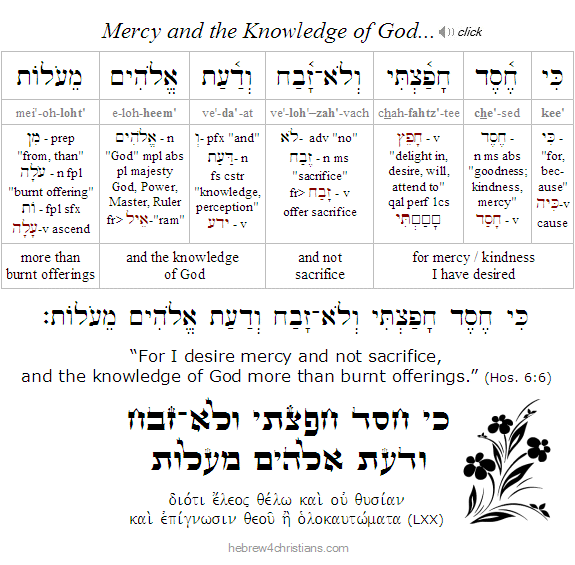 |
Seeing beyond the Seen...

[ "Faith is the assurance that the best and holiest dream is true after all." - Frederick Buechner ]
02.28.24 (I Adar 19, 5784) Yeshua told us: "Blessed are those who have not seen and yet have believed" (John 20:29). Despite the struggle of this life - our sorrows, pains, and even death itself - we believe in God's love and promise for us, even if we do not presently see the fulfillment of our hope, just as Abraham believed the promise that he would be the father of an innumerable multitude long before he saw any sign of its fulfillment. Abraham "believed the impossible" and "hoped against hope" (παρ᾽ ἐλπίδα ἐπ᾽ ἐλπίδι), meaning that hope kindled within him even though there was nothing to see in the realm of the natural -- he believed in an unseen good; he trusted in the One who gives life to the dead and who "calls into existence the things that do not exist" (Rom. 4:17). The Scripture comments: "He did not weaken in faith when he considered his own body, which was as good as dead (since he was about a hundred years old), or when he considered the deadness of Sarah's womb. He did not stumble over the promise of God through unbelief but was strong in faith, and gave glory to God, fully persuaded that God was able to do what he had promised, and that is why his faith was counted to him as righteousness" (Rom. 4:19-22).
Likewise we are called to believe in an unseen good, an unimaginably wonderful destiny for our lives, as it says, "Things no eye has seen, nor ear heard, nor mind imagined, are the things God has prepared for those who love him" (1 Cor. 2:9). Faith does not use natural reason or the evidence of the senses to see the unseen, but it "believes to see" through "eyes of the heart" to know the hope of God's calling and to attain the blessing (Eph. 1:18). Faith in God's love comes from a different source and has a different means of apprehension than human wisdom, so that no matter how things might appear in this fallen world, the LORD God may be known and trusted to work all things for our ultimate good. "Blessed are those who have not seen and yet have believed." Amen.
Hebrew Lesson
Psalm 27:14 Hebrew Reading:
Ultimate Concerns...

[ "The sin underneath all our sins is to believe the lie that we cannot trust the love and grace of Christ and must take matters into our own hands..." - Martin Luther ]
02.28.24 (I Adar 19, 5784) Is the Lord the "ultimate concern" of our lives? Do we esteem Him as our greatest good? "And now brothers, I will ask you a terrible question, and God knows I ask it also of myself. Is the truth beyond all truths, beyond the stars, just this: that to live without him is the real death, that to die with him the only life?" (Buechner).
Look, there is "theology" and then there is the passion of living out our faith. Theology offers up the "right answers" while living by faith raises unanswered questions. Theology is cognitive (i.e., emunah: אֱמוּנָה); trust is a matter of the will and of the heart (i.e., bittachon: בִּטָחוֹן). People who live up in their heads often forget their hearts.
From a "legalistic" point of view Job was wrong to have argued with God; Moses was wrong to have despaired over his mission; Jeremiah was wrong to have cursed the day of his birth; David was wrong to have cried out for justice over his enemies, and John the Baptist was wrong to have doubted the identity of Messiah -- to mention just a few instances where we see that passion, hunger and thirst, overruled the doctrines taught in our theology books.
Despite all this, however, faith refuses to let go of the hope that God is the Source, sustenance, and end of all that matters for our lives... "Whom have I in heaven but you? and there is nothing on earth I desire beside you. My flesh and my heart fail, but God is the strength of my heart and my portion forever." Note the paradox implied in this utterance of faith: Even though my flesh and my heart fail, God is the strength of my heart and my portion forever. Even though everything dissipates around me, yea, my very heart and flesh, yet I find strength in God and trust He will fulfill my heart's deepest desire (Job 14:14). Amen. Yehi shem Yeshua me'vorakh le'olam va'ed.
Hebrew Lesson
Psalm 73:25-26 Hebrew reading (click for audio):
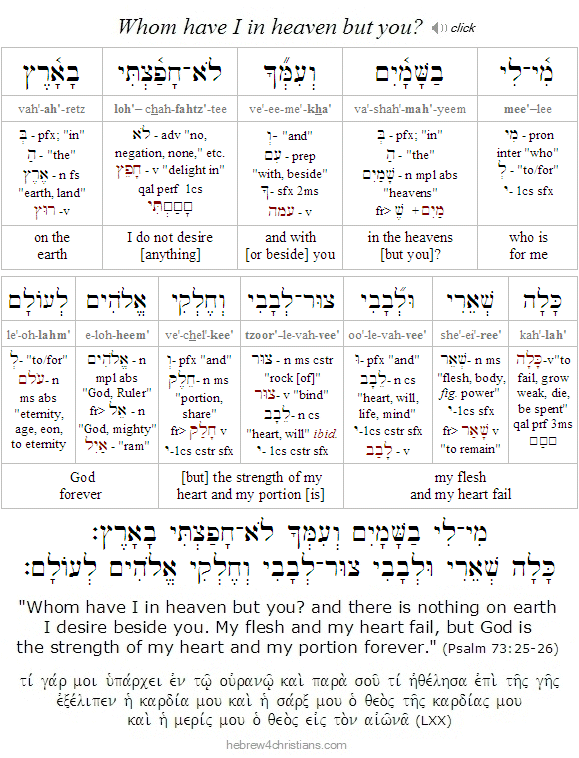 |
Looking for Home...
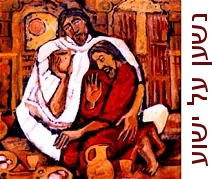
02.27.24 (I Adar 18, 5784) Our faith in Yeshua brings us into collision with the world and its vanities. We are to be "crucified to the world," and therefore we seek matters above, out of sight of other men. "We do not look at things that are seen, but things that are unseen" (2 Cor. 4:18). We are estranged from the world because we look away from its attractions, heeding the promises of the Eternal Lord, longing for that place that transcends the temporal pleasures and fleeting dramas of this age. God has subjected this world to vanity yet has set "eternity within our hearts" so that we abide in hope.
Meanwhile we regard all things as they relate to the truth of spirituality as taught by our Lord. We recognize God's moral law and the voice of conscience that overrules the vagaries of man's self-serving laws, understanding that all that we say, do, and think will be judged upon our death before the truth of God. We therefore look askance at worldly politics and the machinations of the godless, understanding that we groan in this life and are burdened, earnestly desiring death to be "swallowed up" in life, and that we should be clothed in the immortality of eternal life (2 Cor. 5:4).
Just as you trust and accept that Yeshua was crucified for you, identifying with you, taking your place in judgment, exchanging his life for your own, so you trust and accept that you have been crucified with him, and that your old life was taken away and replaced with a new, indestructible nature of his resurrection life. In other words, a union is created where his "for me" is answered by my "with him." Χριστῷ συνεσταύρωμαι – "I already have been crucified in Messiah" (Gal. 2:20). Indeed the two go together: to trust in the finished work of Messiah for you is to trust in his finished work within you... When he died on the cross for you, which sins didn't he bear on your behalf? which remedy did he leave unfulfilled?
Hebrew Lesson
Psalm 73:24 reading (click):
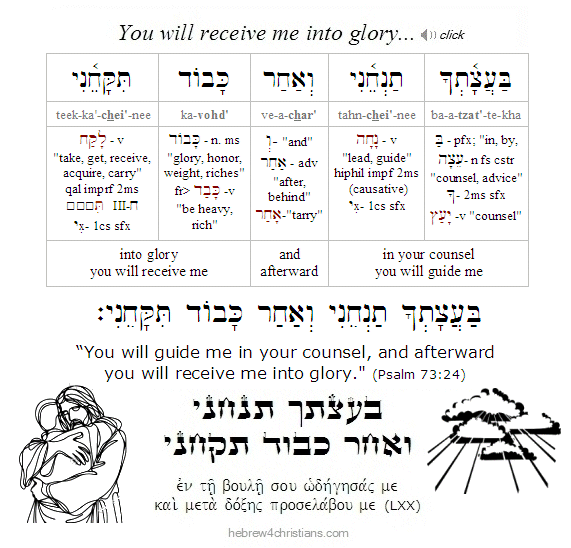 |
Our Strong Tower (מגדל־עז)
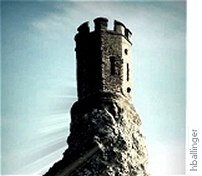
02.27.24 (I Adar 18, 5784) There is one name for God that occurs far more than all the others combined in our Scriptures, and that is the personal Name of the Lord God of Israel: YHVH (יהוה). Now the Name YHVH implies that God is the Faithful One (האל הנאמן), since it is formed by permutating the letters of the Hebrew root "to be": hayah (היה), "he was," hoveh (הֹוֶה), "he is," and yiheyeh (יִהְיֶה), "he will be," to indicate that God is always Present in every time and every place, and therefore there is no power that can prevent him from fulfilling His promises at any time (see Rev. 1:8). YHVH is the Source of any possible existence in any possible world. He is Lord of lords and King of kings whose word can never fail (Deut. 10:17; Dan. 2:47). Ein od milvado (אֵין עוֹד מִלְבַדּו): "there is no power apart from Him" (Deut. 4:35,9).
"The Name of the LORD is a strong tower; the righteous one runs into it and is made safe" (Prov. 18:10). In this verse, the name YHVH is likened to a migdal oz (מִגְדַּל־עֹז) - a "strong tower" that was used as the chief fortification for a city in ancient times. For the tzaddik -- the righteous person who calls upon the Name of the LORD -- God is an all-powerful defence in times of peril. The metaphor suggests a righteous man running into an immensely fortified tower, being elevated high above the surrounding danger. The LORD is a strong tower of refuge for those who put their trust in Him.
The Hebrew name Yehoshua (יהושׁוע), or "Joshua," derives from a combination of YHVH and the verb yasha (ישׁע), to save," meaning "YHVH saves." Later Yehoshua was shortened to Yeshua (i.e., ישׁוע; see Nehemiah 8:17), which is the Hebrew name for "Jesus," of course. As a "type" of Joshua, Jesus exemplifies the ultimate deliverance of His people by taking Israel into the land to inherit the promises. Indeed, calling upon the Name of the Yeshua is to call upon the Name of YHVH, since Yeshua himself is YHVH come in the flesh (see Isa 9:6; Isa 45:23; Phil 2:11; Rom 10:9, among other verses). There is no other name given to mankind for salvation (Acts 4:12, Isa 43:11).
Dear friends, let us partake of Goshen (גשׁן) by "drawing near" in trust... May the LORD God our Savior be our Strong Tower of refuge for us during this time of worldwide uproar and fear. צדקתו מצילה ממוות - his righteousness saves from death. Amen.
Hebrew Lesson
Proverbs 18:10 reading:
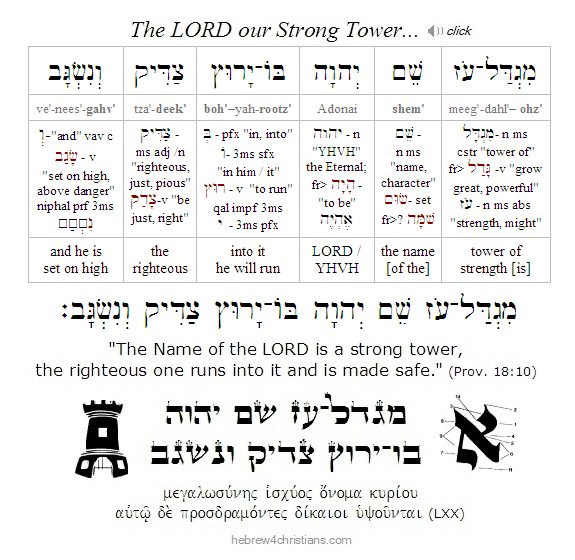 |
Trusting God's love for you...
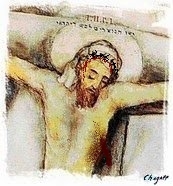
[ "When you think of what you are, and despair; think also of what He is, and take heart." - Charles Spurgeon ]
02.27.24 (I Adar 18, 5784) "Father forgive them, for they know not what they do" (Luke 23:34). Yeshua's intercession is not just for the sins we have consciously committed but to the sins done in the blindness of our unconscious; his sacrifice was offered not just for our known acts of sin, but for the wayward condition of our darkened hearts... This is essential. When God forgives our sin, it goes beyond forgiveness of the sinful behavior to the innate sickness of the heart. Divine forgiveness is remedy for our alienation, our lostness. It is healing of our deepest self, our secret heart, wherein we become a new creation. If God accepts us at all, he accepts us completely, and that means we are made righteous by means of his love and grace.
Teshuvah ("repentance") is not about becoming better but about becoming different. It is about newness of life. As Yeshua said, "Unless you are born again, you cannot see the kingdom of heaven." Believe that you have received it and it will be yours (Mark 11:24).
Hebrew Lesson
Psalm 63:3-4 Hebrew reading:
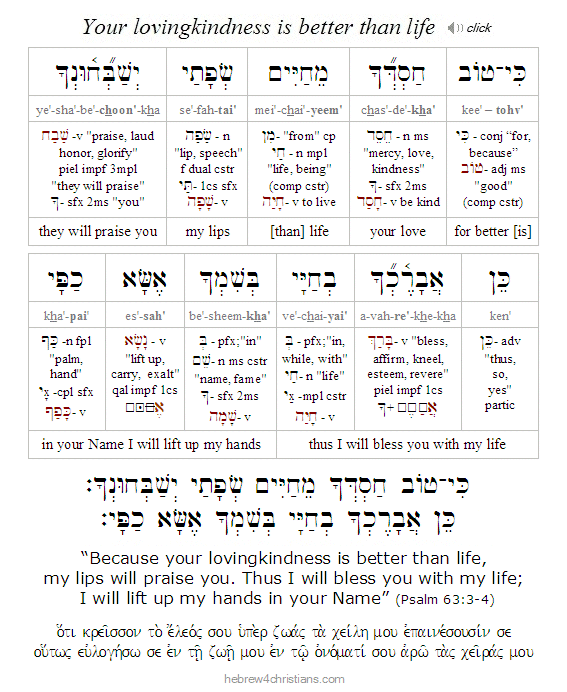 |
If there's hope for eternal life, it is found in the one who "loved me and gave himself for me" (Gal. 2:20). I put no trust in religion, nor in the reformation of my character, nor in my will to believe, but solely in the kindness of the one who heals me from the ruin of myself.
Finding Remedy for the Soul...
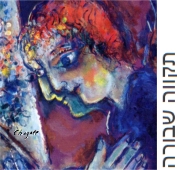
02.27.24 (I Adar 18, 5784) A great lesson is found in the Psalms: "I lift up my eyes to the hills, from where comes my help? My help is from the Lord, the Maker of heaven and earth" (Psalm 121:1-2). The sages recommend this verse to be better read as: "Will I lift up my eyes to the hills to find help? No, for my help is from the Lord..." The focus should not be upon the physical "high places" of the earth but upon the Ground of all being itself. We are to look to Lord, "oseh shamayim va'aretz," "the Maker of heaven and earth."
Some people look for "high places," ideals, "mountain top" experiences to bring heaven down to earth, and therefore they have little use for rawness of gospel truth. In their striving to attain virtue, they are offended at the cross because it signifies our need, brokenness, and the sigh of human frailty. Divine Wisdom, however, is distilled through real experience, which inevitably reveals our poverty of spirit and our powerlessness to heal ourselves. The fear of the Lord is the beginning of such wisdom, since this fear is the realization of our inability to transcend our own "fallenness," that is, to be delivered from our perverse inclination to destroy ourselves. The fear of the Lord reveals our alienation from what is truly good and what we truly need, regardless of whatever we imagine to be ideal.
Moses was a case in point. Trained and educated in the wisdom and ideals of ancient Egypt, as a young man he became a failed messiah when he sought to ascend to the truth in his own virtue and strength, and consequently was he sent into exile for 40 years to learn his own nothingness. When the Lord called out to him from the paradoxical bush that he was chosen to lead Israel from Egyptian bondage, Moses replied "Who am I?" And that marked the moment of Moses' revelation. The lesson of Moses in Midian is that encountering God comes from emptying the "self" of its illusions. Salvation, if it is possible at all, is the sovereign work of God; the "flesh" has nothing to do with it.
Poor human nature sighs over what might have been but has been lost to fecklessness and sinful frailty. Time reveals the abandonment of all carnal hope, even of ethical and religious ideals, and to look only to the Lord the maker of heaven and earth, for help. And that is the message of the cross again, which scandalizes romantic conceits of pride by revealing them useless before the heavenly verdict. The cross reveals our need for salvation from ourselves, from the albatross of sin slung heavily about our necks.
Yeshua did not come to present a higher ideal than was given in the law of Moses, for if we despair to keep the law of God and understand our powerlessness, how would teaching an even higher ideal help? He did not come as a teacher but as our deliverer, and for that he was born to die. He emptied himself and made himself nothing to so that he would offer his life upon the altar of the cross, and by his death we are healed.
He speaks to those who hunger and thirst for salvation: "Come to me you who labor and are heavy laden, and I will give you rest. Take my yoke upon you and learn from me, for I am humble and lowly of heart, and you shall find rest for your soul. For my yoke is easy, and my burden is light" (Matt. 11:28-30). The answer is found in him - in his work for us - wherein he dies in our stead and remakes us through the power of the Holy Spirit. By means of his death we are freely given his blessing of life, everlasting holiness, and deliverance from sin. This is the "good news" of the gospel - encouragement for those whose hearts have fainted, who have despaired over lost ideals and who desperately know they have failed in life.
The message of Yeshua is to come to him to find your help in the Lord. He will take you up, remake you, and restore your wasted years, made safe in the arms of the one who alone is your help, the Maker of heaven and earth.
The old hymn sings true:
"Just as I am, without one plea,
But that Thy blood was shed for me,
And that Thou bidst me come to Thee -
O Lamb of God, I come, I come."
Whatever your present condition, God loves you with the very passion that led Yeshua to the cross. The Lord is present for you now, if you will believe, not some time later, after you've attempted to remedy yourself or after you have somehow "endured to the end." Chaverim, we never get beyond this place of need wherein we come to know God as the only sure help for our lives, which is to say that we never get beyond our need for the cross...
Hebrew Lesson
Psalm 121:1-2 reading (click):
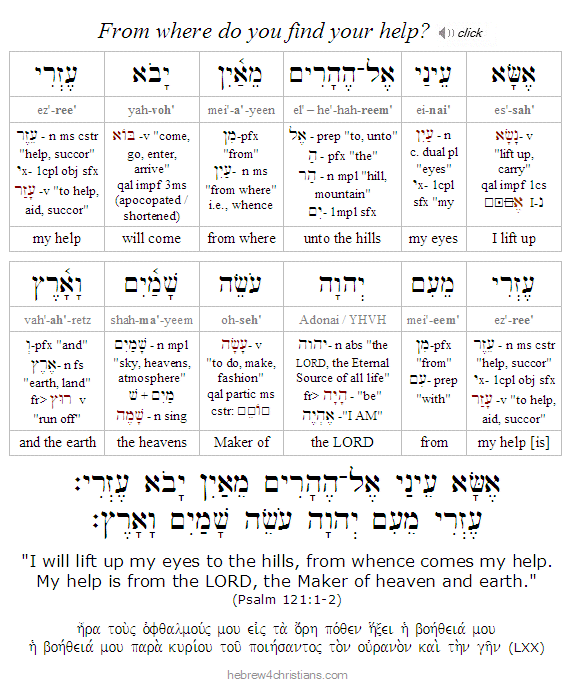 |
The Love of Truth...
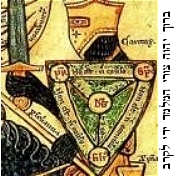
02.26.24 (I Adar 17, 5784) Christian (and Jewish) theology insists that spiritual truth matters, and knowing the truth about God is absolutely essential for life itself. Nothing is more important. Nothing is more vital. "This is eternal life (חַיֵּי עוֹלָם), that they may know you, the only true God (אֶל־אֱמֶת), and Yeshua the Messiah (יֵשׁוּעַ הַמָּשִׁיחַ) whom you have sent (John 17:3). The truth sets us free; it is the unbreakable seal that bears witness of reality. In the Gospel of John it is recorded that Yeshua said, "I am the way, the truth, and the life" (i.e., ᾽Εγώ εἰμι ἡ ὁδὸς καὶ ἡ ἀλήθεια καὶ ἡ ζωή). The Greek word translated "truth" in this verse is aletheia (ἀλήθεια), a compound word formed from an alpha prefix (α-) meaning "not," and lethei (λήθη), meaning "forgetfulness." (In Greek mythology, the "waters of Lethe" induced a state of oblivion or forgetfulness.) Truth is therefore a kind of "remembering" something forgotten, or a recollecting of what is essentially real. Etymologically, the word aletheia suggests that truth is also "unforgettable" (i.e., not lethei), that is, it has its own inherent and irresistible "witness" to reality. In that sense light is a metaphor for truth: "The light shines in the darkness, and the darkness has not overcome it" (John 1:5). There can be no truth apart from moral reality. People may lie to themselves, but ultimately truth has the final word.
Greek scholars note that the word lethei itself is derived from the verb lanthano (λανθάνω), which means "to be hidden," so the general idea is that a-letheia (i.e., truth) is non-concealment, non-hiddenness, or (put positively) revelation or disclosure. Thus the word of Yeshua - His message, logos (λόγος), revelation, and presence - is both "unforgettable" and irrepressible. Yeshua is the Unforgettable One that has been manifest as the express Word of God (דְּבַר הָאֱלהִים). Yeshua is the Light of the world (אוֹר הָעוֹלָם) and the one who gives us the "light of life" (John 8:12). Though God's message can be suppressed by evil and darkened thinking, the truth is self-evident and intuitively certain (see Rom. 1:18-21).
We have a moral imperative, given by God Himself, to receive the truth and to live according to the nature of spiritual reality. Those who reject or suppress the truth, however, are responsible for their actions, as it is written, "No one who practices deceit shall dwell in my house; no one who utters lies shall continue before my eyes" (Psalm 101:7).
Hebrew Lesson
Psalm 25:5a reading (click):
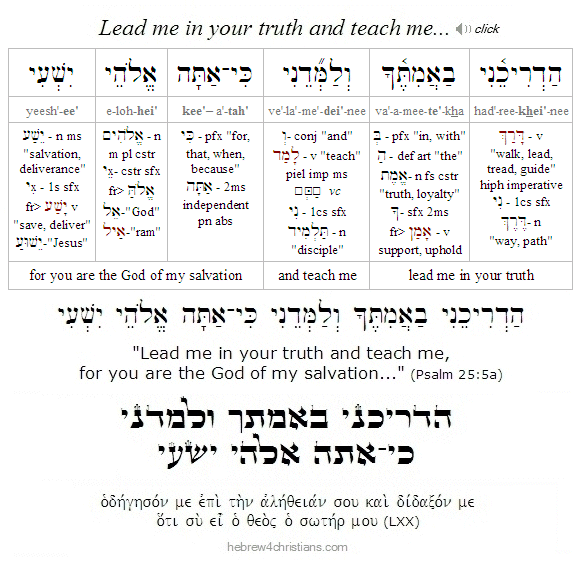 |
Torah of Sabbath...
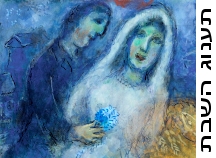
[ The following is related to our Torah reading this week, parashat Ki Tisa. Please review the Torah portion to find your place here... ]
02.26.24 (I Adar 17, 5784) Every Shabbat we recite kiddush and remember that God is both our Creator (Gen. 1:31-2:3; Exod. 20:8, 31:7) and our great Redeemer (Deut. 5:15). As it says in our Torah portion for this week (Ki Tisa), "Above all you shall keep my Sabbaths, for this is a sign (אוֹת) between me and you throughout your generations, that you may know that I, the LORD, sanctify you. You shall keep the Sabbath, because it is sacred for you, as a covenant forever (בְּרִית עוֹלָם)..." (see Exod. 31:12-17). When we usher in Shabbat on Friday evening, we bear witness that God is our Creator, our Redeemer, and our Savior. Note that the Hebrew word for "sign" (אוֹת) is formed using a Vav (וֹ) surrounded by an Aleph (א) and a Tav (ת), a word that pictures being surrounded by God's Presence. We enter into the all-encompassing rest that God provides - relying on His power and grace alone to make us whole. "It is finished," and the Sabbath testifies of the rest we have in Messiah, our Creator and Redeemer. We let go and are renewed by the grace of God.
Hebrew Lesson
Exod. 20:8 Hebrew reading (with comments):
We are not legalistic about Sabbath observance, of course, since that surely misses the point. As Yeshua taught us: "The Sabbath was made for man, not man for the Sabbath" (Mark 2:27). Note that well. The Sabbath was made -- it is the result of God's work performed on our behalf: "Come unto me, all ye that labor and are heavy laden, and I will give you rest" (Matt. 11:28). There remains a "Sabbath rest" for the people of God, which is the principle of God's power effecting life within us and resting in his provision. The Sabbath is a delight – not a burden; a time for celebrating the finished work of Yeshua (Isa. 58:13; Heb. 4:9).
And of course the principle of Sabbath "surrender" applies to every day of our lives. After all, the "daily sacrifice," or korban tamid (קָרְבַּן תָּמִיד), was offered to the LORD every morning and evening upon the altar, which means we find our rest in Him every day, trusting in his sacrificial love to do the work of salvation within us... Surrendering to this truth enables us to be a "living sacrifice" (i.e., korban chai: קָרְבָּן חַי) and to die daily (Luke 9:23).
It is clear that the Sabbath will be honored in the Millennial Kingdom to come, and indeed, in heaven itself. Speaking of the coming Kingdom of God that will be established upon the earth, the prophet Isaiah foretold: "From new moon to new moon, from Sabbath to Sabbath (שַׁבָּת בְּשַׁבַּתּוֹ), all flesh shall come to worship before me, declares the LORD" (Isa. 66:23). Since this vision concerns the prophetic future, it is clear that the Sabbath day (as well as Rosh Chodesh, or the new moon) will be observed as well. Likewise, in the heavenly Jerusalem to come, the Tree of Life is said to yield "twelve kinds of fruit, yielding its fruit each month" (Rev. 22:2). Notice that the "twelve fruits" (καρποὺς δώδεκα) from the Tree of Life are directly linked to the "twelve months" of the Jewish year (κατὰ μῆνα ἕκαστον ἀποδιδοῦν τὸν καρπὸν αὐτοῦ: "each month rendering its fruit"). In other words, the sequence of the holidays (i.e., the mo'edim) - including the weekly Sabbath - was intended to teach us revelation about God.
Hebrew Lesson
Isaiah 66:23 reading with commentary:
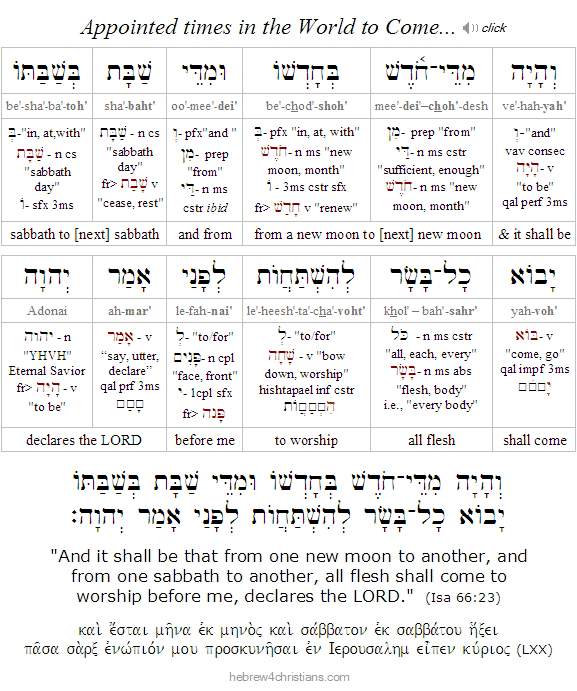 |
Repentance and Paradox...
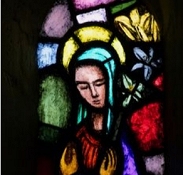
02.26.24 (I Adar 17, 5784) To be a human being is a paradox, caught between the realms of the infinite and nothingness; a union of endless possibility yet terminating limitation. Man desires to live forever but is conscious that one day he will die. He is an incongruity - a mix of flesh and spirit, saint and sinner, good and evil, angel and animal... A spirituality that demands for us to be always happy, always "up," is therefore dishonest, since the truth is grounded in what is real, and that includes both the miserable and the tragic as well as the joyful and sublime. It's not that there is no difference between good and evil within the heart, but both are part of who we really are. It is the bittersweet struggle, the process of walking as "saintly sinners," "holy fools," "dying immortals," and so on, that defines us. We must embrace our brokenness, in order to become whole; there is no healing without true confession of our need. Therefore we come to the paradoxical cross - the place of utter pain, separation, and death - to find healing, acceptance and life.
Please note this is not to deny that we are to walk by the Spirit and reckon ourselves dead to sin in the Messiah (Rom. 6:11); however, far from being a sign of a lack of spirituality, personal struggle is a sign of its presence.... Only those who are conscious of the tragic, who are haunted by the disparity between what "is" and what "ought" to be; only those who are divided within themselves, torn by inner tension and conflict - those aware that they are both in this world but not of it - sojourners, a long long way from home, homesick for the heavenly city, who inwardly ache and yearn to be fully redeemed - only these, it may be said, are consciously spiritual. After all, the worldling, the self-confident and self-possessed, rarely desire deliverance from themselves and are often content to rationalize the state of their soul; the spiritual person, on the other hand, senses a profound incompletion, a lack, a fracture that runs straight through the core of reality, a breach that needs to be healed...
I would utterly die of despair over myself were it not for the truth that it is not about who I am that is important but the truth about who He is...
There is great joy, of course, and we are indeed to "rejoice in the Lord always," but there is also real pain in our lives, and I'd rather be in the company of those mourning the mess they have made of their lives than with someone who thinks they've got it all together... "We are treated as impostors, and yet are true; as unknown, and yet well known; as dying, and behold, we live; as punished, and yet not killed; as sorrowful, yet always rejoicing; as poor, yet making many rich; as having nothing, yet possessing everything" (2 Cor. 6:8-10).
Hebrew Lesson
Psalm 41:4 reading (click):
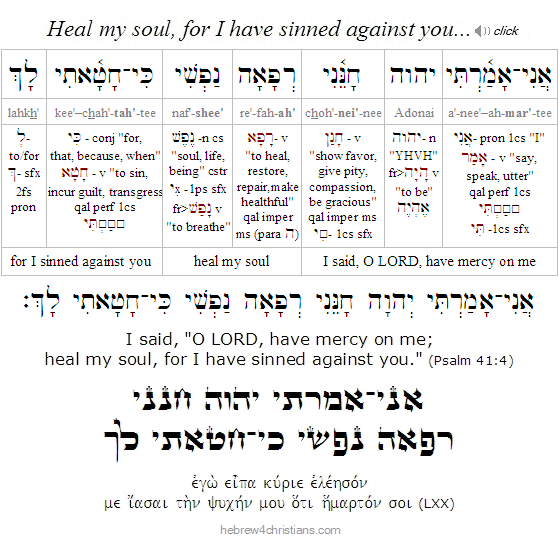 |
Personal Note: I was admitted to the hospital the other day because of severe chest pains. I had an EKG done, blood draws, and a CAT scan. Thankfully there was no indication of a heart attack, though I need some further tests. Thank you for your prayers, friends, and in light of the frailty of our days, I want to express my heartfelt appreciation to each of you who have stood with this ministry and have encouraged me to continue... You are in my prayers, and may it please the LORD our God to draw you ever closer to Him through the grace we have in Yeshua our glorious Savior. Amen.
Parashat Ki Tisa:
Brokenness and Atonement...
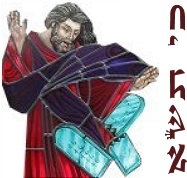
02.25.24 (I Adar 16, 5784) Shavuah tov, chaverim, and welcome to a new week of Torah study! In our last two Torah readings (Terumah / Tetzaveh), Moses was upon Mount Sinai receiving the vision of the Sanctuary (i.e., the Mishkan or "Tabernacle") and its various furnishings. In this week's portion, Ki Tisa (כִּי תִשָּׂא), God commanded that all Israelite men over the age of twenty were required to pay a tax for the upkeep of the Sanctuary: "each shall give (וְנָתְנוּ) a ransom (i.e., kofer: כּפֶר) for his life to the LORD" (Exod. 30:12). After this tax was defined, the LORD described some additional elements that would be required for the priestly service at the Sanctuary, namely, a copper washstand, sacred anointing oil, and incense for the Golden Altar in the Holy Place. The Lord then named Betzalel, a man "filled with the Spirit of God" to be the chief architect of the Mishkan. Before the construction would begin, however, the Lord warned the people to be careful to observe the Sabbath day. Immediately following this admonition, God gave Moses the two tablets of the Ten Commandments as inscribed directly by the hand of God.
Before Moses returned to the camp, however, "certain people" had talked his brother Aaron into making a golden idol which they began to worship as their "god." The LORD then told Moses of their treachery and threatened to destroy all the Israelites, but Moses interceded on their behalf. As he rushed down the mountain, with the tablets in hand, he saw the people dancing about the idol and smashed the Tablets in anger. Moses then destroyed the idol and led the Levites in slaying 3,000 of the ringleaders.
The following day, Moses returned up the mountain and begged God to reaffirm the covenant. After a 40 day period of intercession, the Lord finally told Moses to carve a second set of Tablets and to meet him again at the summit of Sinai, where He would show Moses his glory and reveal to him the meaning of His Name (יהוה). When Moses encountered the LORD in a state of brokenness and forgiveness, his face began to shine with glory - a glory that foretold of the New Covenant of God's mercy and grace to come in Yeshua.
When the people saw Moses coming down the mountain with the second set of Tablets, they understood they were forgiven and that the Covenant had been renewed. When they approached him, however, they drew back in fear, because his face was radiant with the glory of God. Moses reassured them, however, and then told them all that the Lord had commanded while he was on the mountain. When Moses had finished speaking with them, he put a veil (מַסְוֶה) over his face. From that time on, Moses wore a veil in the camp, though he removed it whenever he went before the Lord for further instructions.
Knowing God Truly....
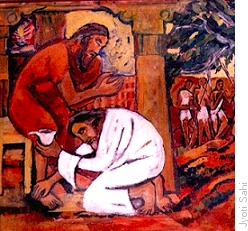
[ A brief meditation on Matthew 7:21-23 and how we can truly know God... ]
02.23.24 (I Adar 14, 5784) I never knew you..." O dreadful vision to consider that we, even though we profess faith in God, may become strangers to the truth, and that the essence of our life was discovered to be a lie, a vanity, everlasting loss...
That is the substance of Yeshua's warning to all who profess faith in him. "The inner is not the outer." Not every one who says that he believes in him truly does so, and not every one who thinks he knows him does so truly (Matt. 7:21). Truth is revealed by what a person does with his or her life, since this manifests who they are and what they really believe, far more than mere words. We can say a lot of things about what we may believe, but the test is whether we are doing the will of God - or not. Those who "enter the kingdom" are those who seek to do the will of God as the utmost passion of their existence.
Clearly none of this is about religion or religious "scrupulosity." It is far more serious than that. Yeshua warned that many people do various religious activities, "good deeds" such as feeding the poor, protesting social injustice, or ministering to the oppressed, and so on. Some may even teach or preach the very gospel message itself, but alas! all these may be outsiders who break the inmost law of truth by refusing to surrender to God.
Hear Yeshua's words: "Many will say to me, 'Lord, Lord, didn't we prophesy in your name, and in your name cast out demons and do many powerful deeds?' (Matt. 7:22). But note the plural pronoun used in this self-reference. Why does the crowd speak on its behalf regarding what "they" have done to justify themselves? Are these people trusting in their religious associations or virtues to make them right with God? Do they identify themselves with some church or righteous cause and assume that should suffice to obtain favorable judgment from heaven? Be careful. Yeshua always speaks to the individual heart, not to groups, tribes, or political parties... "I never knew you" is spoken in the plural: Οὐδέποτε ἔγνων ὑμᾶς, that is, He is unknown except for the individual heart that trusts in Him...
But nonetheless, Yeshua is saying something more. In this admonitory vision of judgment there is a surprising twist. There is no indication that he denied that some people objectively did such patently "good" things. Many did prophesy (or teach) about God; many did cast out demons and do "powerful" or miraculous works. The essence of the judgment, however, is that despite all this, despite their ostensible allegiance to God, they were really practitioners of lawlessness, they were workers of iniquity, and therefore they were cast out: "I never knew you" (Matt. 7:23).
Yeshua had warned us before. He made the matter clear: "Enter by the narrow gate. For the gate is wide and the way is easy that leads to destruction, and those who enter by it are many. But the gate is narrow and the way is hard that leads to life, and those who find it are few" (Matt. 7:13-14). The "wide" gate is the way of the crowd, spacious enough to accommodate the masses. It's the way of open-ended "tolerance" coupled with the unthinking repudiation of moral convictions. The "paradox of tolerance" is that absolute tolerance is self-contradictory and ultimately leads to self-destruction. As Karl Popper said: "If everyone is tolerant of every idea, then intolerant ideas will emerge. Tolerant people will tolerate this intolerance, and the intolerant people will not tolerate the tolerant people."
The "narrow way," on the other hand, leads to life. It is not the popular way. It is not the way of the masses or the "politically correct" crowd. It is not amenable to the way of the jaded skeptic who has no faith in truth. It is not the path of the proud or arrogant. Nor is it the way of "religion" or social justice organizations. It does neither "jihad" nor affect compassion through worldly philanthropy. It is certainly not the way of the State nor political movements driven by mass appeals of the tyrants, demagogues, and their followers. Nor is it the way of the "institutional" churches. It is not a mass "Christian" movement. It is not concerned with teachings of theologians, or professors, or even preachers who are simply "interested" in the things of God but who never engage in raw personal struggle and agony of heart to do the will of God. No, the way of true surrender involves confessing your brokenness and poverty - your need for deliverance from yourself - and in humility coming before the light to ask God for the miracle of salvation, for "life-from-death" deliverance, resurrection, and newness of life...
Something more is therefore needed than merely thinking about God or doing various forms of good works, and that "something more" is having an honest and genuinely tested relationship Yeshua, knowing him in the secret communion of your heart as you live whatever remains of your days in surrender to his will. What is more is the death of Yeshua given on your behalf and your regeneration. It is life "built upon the Rock" - the solid foundation of God's heart given in Christ - that will enable you to weather the inevitable storms of life without failing (Matt. 7:24-27).
So do you truly know the Lord, friend? Or better - does He really know you? Again, this does not concern abstract knowledge about God or the practices of religion, but the passion of the heart. It is the "knowledge" of knowing someone that you truly love. And that is the key: love. To know God is to know his love and to receive his passion. You simply cannot know Yeshua apart from knowing his love for you, for these are bound together as one.
God loves you despite yourself. It's not your love for God that saves you but God's love for you: ῾Ημεῖς ἀγαπῶμεν αὐτόν, ὅτι αὐτὸς πρῶτος ἠγάπησεν ἡμᾶς. "We love him because he first loves us" (1 John 4:19). We were born into this world alienated, lost, spiritually dead, and therefore unable to know the truth of God's heart. Our love (and knowledge) of God comes from God's love for us, and we receive that love by the miracle of his intervention in our lives. There is no other way. We do not ascend a "stairway to heaven" to find God, but he descends to the depths and rescues us from the shadowy world of exile and fear.
Yeshua was once asked: "What shall we do to do the works of God?" and he answered: "This is the work of God, that you believe in him whom he sent" (John 6:28-29). This, then, is the will of God; this is what the Lord requires from us; this is the key that opens the door to enter in the Kingdom: to believe and trust in God's personal love for us given in Yeshua and to live the truth of that love humbly and in all our ways.
If you forget the essence of your soul you may begin to lose sight of your reason for being, the "why" that underlies all other whys... This essence, however, is not discovered by means of reason, but by revelation -- it is a divine disclosure that awakens you to newness of life. Teshuvah is a return to the arms of your Heavenly Father...
Hebrew Lesson
Psalm 139:23-24 Hebrew reading:
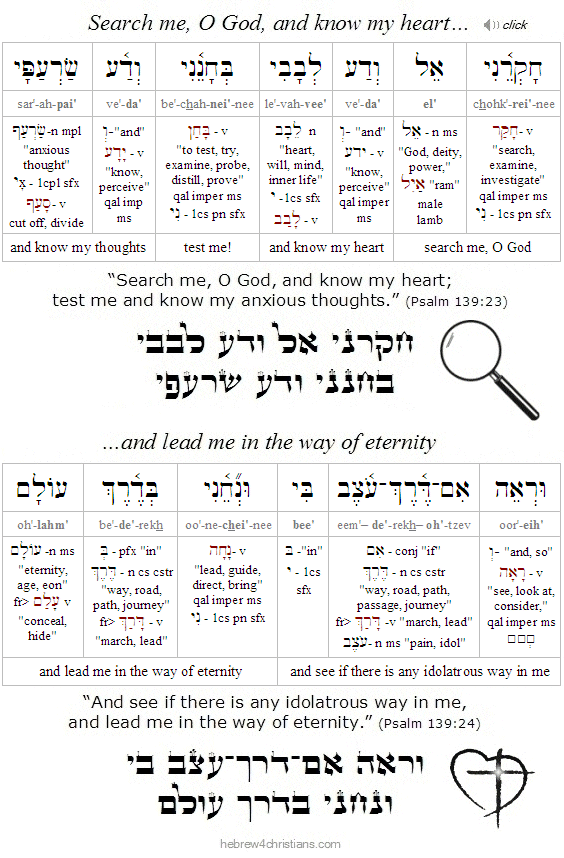 |
Trusting God's Providence...
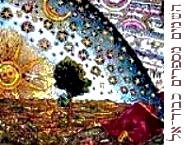
02.23.24 (I Adar 14, 5784) The Scriptures teach us that creation is "teleological," which means that it is "going someplace," and that there is order and purpose to our existence. Your life is not adrift in a random universe that is destined to ultimately fade away but is grounded in the Divine Mind and Will that personally supervises and pervades all things. A lack of emunah (faith) has been likened to a passenger flying on an airplane who doesn't believe there is a pilot in the cockpit... Faith in the LORD believes that a single supreme, all-knowing, all-powerful and benevolent spiritual Power directs all things, and that God is the beginning, middle, and end of all conscious meaning, truth, and substance, as it is written: כִּי הַכּל מִיָּדוֹ הַכּל בּוֹ וְהַכּל לוֹ הוּא, "For from him and through him and to him are all things" (Rom. 11:36). A life of faith in the one true God imparts the blessing of shalom (inner peace) and assures the heart that all shall be made well by the love of God. Everything God does is for the very best, and there are no exceptions to this truth (Rom. 8:28).
Our faith that everything God does is for the best is not some rationalization that denies or minimizes the suffering we encounter in life, but is an affirmation that there is an unseen (though knowable) good at work that ultimately will heal us and comfort our shattered hearts... The phrase gam zu l'tovah (גַּם זוּ לְטוֹבָה) is an affirmation that "this too is for good," and that this "this" includes the various challenges and struggles we face during our days of sojourn here on this earth. Every "down" in life prepares us for an "up," with the ultimate end being beatitude and everlasting joy. Challenges draw us closer to God, igniting our hearts to cry out for his Presence and blessing. Even death itself is a passageway to eternal life (Psalm 16:10; 49:15; 1 Cor. 15:12-58). בַּעֲצָתְךָ תַנְחֵנִי וְאַחַר כָּבוֹד תִּקָּחֵנִי - "You guide me with your counsel, and afterward you will receive me to glory" (Psalm 73:24).
By faith "we know that if the 'tent' that is our earthly home is destroyed, we have a building from God, a house not made with hands, eternal in the heavens" (2 Cor. 5:1). God is our good Shepherd who leads us along the byways of the desert of this world (Psalm 23:4). In God's presence is total and absolute joy; at his right hand there are pleasures forever (Psalm 16:11). As it is written in the sacred testimony of the prophets: "No eye has seen, nor ear heard, nor the heart of man imagined, what God has prepared for those who love him" (Isa. 64:4; 1 Cor. 2:9). The LORD "will wipe away every tear from our eyes, and death shall be no more, neither shall there be mourning, nor crying, nor pain anymore, for the former things have passed away" (Rev. 21:4, Isa. 25:8). God carefully foresees your way and prepares a place for you (John 14:1-3); he has ready a precious white stone with your "hidden" name inscribed (Rev. 2:17); the table is being set and your place has been reserved... There is great consolation and unimaginable blessing to come.
So be encouraged, friend. You do not need to struggle alone – bitter and afraid that you might be swallowed up in your infirmities... God knows the groan of your struggle and invites you to find solace and strength in Him. "It is enough to open your heart the smallest amount - even the width of a pin - to repent, so that you feel a stab within your heart, like a piercing sting in living tissue, not like a needle thrust into dead flesh" (Menachem Mendel of Kotzk). Bittachon (בִּטָּחוֹן) is a Hebrew word that means trust in God... Those who have bittachon do not worry about the future because their faith fully permeates their heart and mind, enabling them to surrender their cares and burdens to the Lord.
Hebrew Lesson
Psalm 23:4 Hebrew reading (click):
What Really Matters...
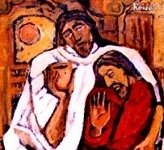
02.22.24 (I Adar 13, 5784) Yeshua teaches us to earnestly seek for what really matters in life, to discover that which is best of all. He said, "The kingdom of heaven is like treasure hidden in a field, which a man found and covered up. Then in his joy he goes and sells all that he has and buys that field. Again, the kingdom of heaven is like a merchant in search of fine pearls, who, on finding one pearl of great value, went and sold all that he had and bought it" (Matt. 13:44-46). Here Yeshua illustrates that a relationship with God is the true source of joy and value in life, and that all other passions and desires are like "fools gold" when compared with its overwhelming worth...
In this connection Soren Kierkegaard wrote: "If anyone thinks he is a Christian and yet is indifferent toward being that, then he really is not one at all. Indeed, what would we think of a person who gave assurances that he was in love and also that it was a matter of indifference to him?" (Works of Love). The Shema, the "first and greatest commandment," is to love God "bekhol levavkha" (בְּכָל־לְבָבְךָ) with all our hearts, and yet how is that love possible apart from the revelation of the passion of love itself? "We love because God first loves us" (1 John 4:19), and therefore teshuvah ("repentance") is a matter of being in love, celebrating God's heart for us, awakening to its wonder, and being thrilled and overjoyed at its reality. Isn't this the essence of the matter?
"Shimon ben Yonah, atah ohev oti?" – "Simon son of Jonah, do you love me?" (John 21:17). But how can we love the Lord apart from trusting his heart for us? "Come unto Me," Yeshua says, "live in Me and I will live in you" (John 15:1-5; Matt. 11:28-30). O Lord God our Savior, deliver us from apathy and indifference! Soften our hearts and awaken us to our great desire and need for you! Hashivenu, Adonai: turn us, O LORD, and we shall be turned; heal us, and we shall be healed... Help us to come to you and to know the breadth and length and height and depth of your great love for us (Eph. 3:18-19).
So for what do you hope, friend? What are your dreams? Your deepest desires? Where is your treasure? Yeshua cautioned those who sought their happiness in this world: "Do not store up for yourselves treasures on earth... be rich toward God" (Matt. 6:19-20; Luke 12:21). When we treasure God, our focus is directed toward the eternal reality, and our interest in this world is minimal. We trust God to meet our daily needs and surrender our future to His care. The only worry we face concerns our own deficiencies in our obligations to the Savior. Our duty is to love God in the truth - bekhol levavkha - with all our heart, having no thought of ourselves. Indeed, as I have mentioned before, self-denial means to quit thinking about yourself (from α-, "not," + ῥέω, "to speak") by focusing on God's love for you. As Simone Weil once said, "It is not my business to think about myself. My business is to think about God. It is for God to think about me." Amen; we are healed in His love for us.
מי־לי בשׁמים
ועמך לא־חפצתי בארץ
mee'-lee · va·shah·mah'·yeem
ve·ee·me·kha · loh-chah·fahtz'·tee · va·ah'·retz

"Whom have I in heaven but you?
And there is nothing on earth that I desire besides you."
(Psalm 73:25)

Hebrew Lesson
Psalm 73:25 Hebrew (click):
Our Daily Deliverance...
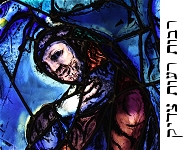
02.22.24 (I Adar 13, 5784) Just as we ask God for our daily bread (לֶחֶם חֻקֵּנוּ), so we ask him for our daily deliverance: "Lead us not into temptation, but deliver us from evil" (Matt 6:13). Note that the term translated "evil" in many translations ("deliver us from evil") is a substantive rather than an adjective: τοῦ πονηροῦ, the evil one... "Give us this day our daily deliverance from the evil one...."
Our daily bread and our daily deliverance are connected with our decision to "choose life" (בַּחַרְתָּ בַּחַיִּים) -- and to always choose life -- even in moments we find difficult, distressing, and even when we might wish that we were no longer living... Choosing life means refusing to escape reality by evading the significance of our choices; it means finding the will to regard life as worthy; it implies that we will eat our bread in trust that the Lord is at work even in the darkest of hours (Passover occurred at midnight)... Choosing life means refusing to eat the fruit of death and to seek Yeshua, the Tree of Life.
We live one day at a time; we only have today. We are given daily bread for this hour of our need. Today is the day of your deliverance - if you are willing to walk in it. Therefore, the Spirit of the Living God cries out, "Choose life and live!"
"Do not be grieved [even over yourself], for the joy of the LORD (חֶדְוַת יְהוָה) is your strength" (Neh. 8:10). Affirming the love, faithfulness, and salvation of God is a powerful way to defeat the enemy of our souls, who regularly entices us to despair. King David constantly asked God to help him in his spiritual struggles. "Though I walk in the midst of trouble (בְּקֶרֶב צָרָה), you preserve my life; you stretch out your hand against the wrath of my enemies, and your right hand delivers me" (Psalm 138:7). "For the enemy has pursued my soul; he has crushed my life to the ground; he has made me sit in darkness like those long dead. Therefore my spirit faints within me; my heart within me is appalled" (Psalm 143:2-3).
Despite whatever struggle we may face, "the LORD is near to the brokenhearted and saves the crushed in spirit (Psalm 34:18). Indeed, the Lord God is far greater than your heart's sin and will one day entirely deliver you of sin's effect and influence. Amen.
Hebrew Lesson
Psalm 34:19 reading (click):
Intercession and Incense...
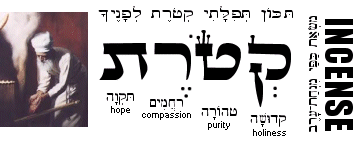
[ The following is related to this week's Torah reading, parashat Tetzaveh... ]
02.22.24 (I Adar 13, 5784) The last item described in the Mishkan (i.e., the "Tabernacle") was a golden "altar of incense" (הַמִזְבַּחַ הַזָּהָב) that was to be placed in the Holy Place just before the veil separating the Holy of Holies (parochet). Every morning and evening the High Priest would burn sacred incense on this altar (symbolizing prayer and intercession), and the blood of atonement was also applied there during the Yom Kippur service (Exod. 30:6-10).
The sages say that the word "incense" – i.e., ketoret (קְטרֶת) – can be thought of as an acronym of the words kedushah (קְדוּשָׁה), "holiness," tahorah (טָהֳרָה), "purity," rachamim (רַחֲמִים), "compassion," and tikvah (תִקוָה), "hope," characteristics that marked the passion of Yeshua who interceded for us as he offered his blood before the heavenly kapporet as our High Priest of the new covenant. Indeed, the word ketoret comes from a root word (קטר) that means to offer sacrifice, further alluding to the intercession of Messiah on our behalf (Heb. 7:25). Disciples of Yeshua are likewise called priests of God (Rev. 1:6; 1 Pet. 2:5), and our prayers and service are regarded as a "sweet-smelling savor" offered to the Lord (Rev. 8:4). As it says in the Psalms: "Let my prayer be counted as incense before You; the lifting up of my hands as the evening sacrifice" (Psalm 141:2).
Hebrew Lesson
Psalm 141:2 Hebrew reading:
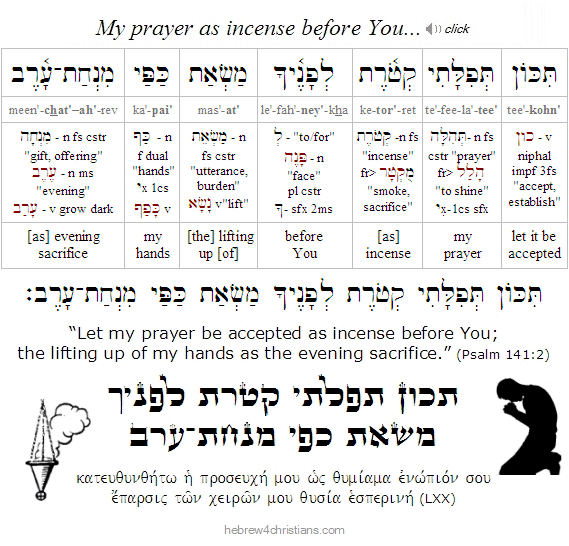 |
Note: The Talmud states that the sacred incense recipe was made of eleven different spices, ten of which had pleasant fragrance, but one of which (i.e., galbanum) had an unpleasant odor. The sages have said the presence of an unpleasant odor in the sacred mixture represents our laments, our cries, and confession for the foulness of our sins.
Robes of His Righteousness...
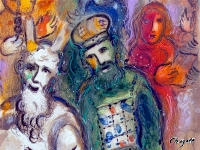
[ The following is related to this week's Torah reading, parashat Tetzaveh... ]
02.22.24 (I Adar 13, 5784) The special vestments of the priests -- namely the beautifully crafted apron (ephod) made of gold and blue, purple and scarlet, and adorned with engraved onyx stones; the breastplate (choshen) that was held over the ephod by golden chains, and its twelve precious gemstones engraved with the names of the children of Israel; the robe made of blue linen (techelet) and its hem of embroidered pomegrantes with bells of gold dangling from the border; the linen sash (avnet) and tunic (ketonet), and the crown (mitznefet) with its headband (tzitz) of pure gold and blue thread inscribed with the words "Holy to the LORD" -- all these together were designed by God to be "for glory and for beauty" (לְכָבוֹד וּלְתִפְאָרֶת), as it says in Exodus 28:2.
Note that many of the same materials used to create the mishkan were used to create these vestments, which suggests that our bodies are to be clothed in God's holiness and the "robes of his righteousness" as we serve within his habitation (Isa. 61:10). The various colors, the use of gold, the jewelry with names of beloved children, and the headcovering that proclaims holiness to the LORD, further pictures Yeshua as He served within God's house to secure our place in heaven. Likewise we are called to be a "kingdom of priests" (ממְלֶכֶת כֹּהֲנִים), a holy people (גוֹי קָדוֹשׁ), called by God to serve as a light to the nations (אוֹר לגּוֹיִם) - shining forth Gods' love and truth to others (Isa. 49:6; 1 Pet. 2:5-9). Indeed we are called to "be My salvation to the ends of the earth' (לִהְיוֹת יְשׁוּעָתִי עַד־קְצֵה הָאָרֶץ).
To serve as His priests, we must "abide in the light" or become conscious of the divine light within our hearts (Isa. 2:5; John 8:12). Like the sacred flame of the menorah, this "flame of awareness" is precious - illuminating the truth of what is most real -- not only the superficial matters of life but the deeper things of who we really are -- beloved children of God, given eternal life, chosen to serve God and to be with him forever (Rev. 18:16). "For God who commanded light to shine out of darkness has shone in our hearts to give the light of the knowledge of the glory of God in the face of Yeshua the Messiah" (2 Cor. 4:6).
We must be careful to distinguish between the "natural light" and the spiritual light, because the exegencies of the moment can blind us to the light of the eternal... We must therefore repeatedly seek the divine light - first within us - and secondly the "deeper light" that penetrates the vain dramas and cares of this fleeting world. In this way we practice God's presence, knowing Him in all we do, and attaining sacred wisdom whereby our "eyes of the heart" (ὀφθαλμοὺς τῆς καρδίας) are enlightend to know what is "the hope of His calling, the riches of the glory of His inheritance in the saints, the exceeding greatness of His power toward us who believe" (Eph. 1:17-19). Halleluyah!
The scene of the priest arrayed in his beautiful garments, serving God in the "beauty of his holiness" pictures heavenly reality, wherein we will forever be in God's House, covered with the ceremonial robes of his kindness and favor, knowing Him as his beloved children who reflect the love and glories of the Lord forever. Amen!
Hebrew Lesson
Isaiah 61:10 reading (click for audio):
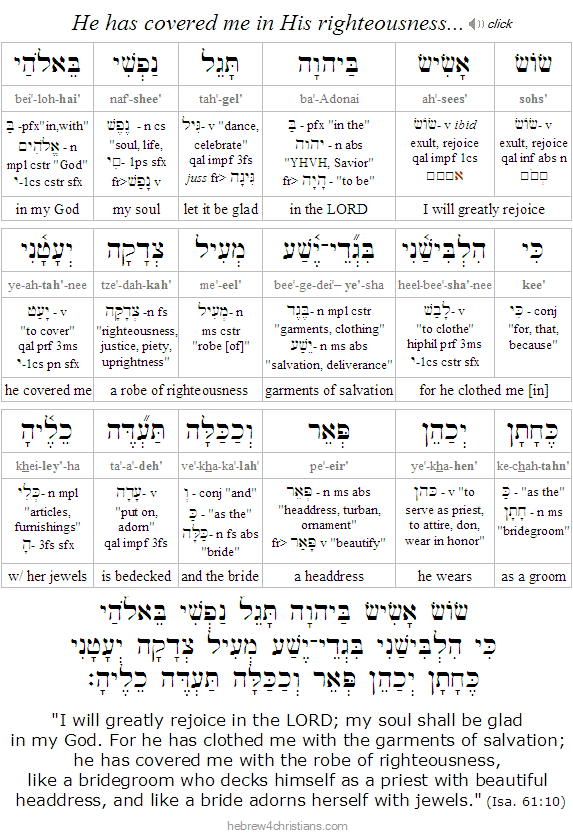 |
The Inner Light of God...
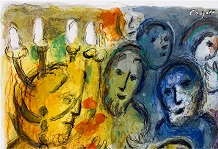
[ "To the one who delights in the sovereignty of God the clouds not only have a 'silver lining' but they are silver all through, the darkness only serving to offset the light." - A.W. Pink ]
02.21.24 (I Adar 12, 5784) In our Torah reading this week (Tetzaveh) we are given revelation of the divine light that symbolizes the glory of God that radiates all of creation. This is the divine radiance from the creation of the world illuminates the sanctity of all existence (Gen. 1:3). In this connection note that this spiritual light is not seen superficially, since the menorah was placed within the Holy Place of the Mishkan -- an inner chamber that had no windows to the outside world -- and it therefore symbolizes the "yehi ohr" light of creation itself, the light of Yeshua who is the Source of the light (John 8:12). This is the light of truth that comes by faith.
"The spirit of prayer is for all times and occasions; it is a lamp that is to be always burning, a light to be ever shining: everything calls for it; everything is to be done in it and governed by it, because it is the totality of the soul - not doing this or that, but wholly given up to God to be where and what and how He pleases" (William Law).
Hebrew Lesson
John 8:12 reading (click):
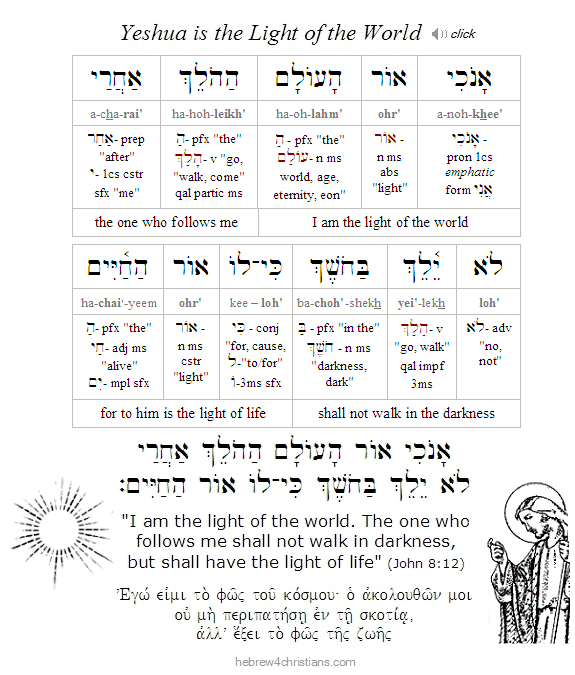 |
Priests of His Light...
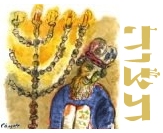
02.21.24 (I Adar 12, 5784) Our Torah for this week (i.e., parashat Tetzaveh) describes the ceremony of consecration to the priesthood. We are chosen to be a "kingdom of priests," a set-apart people, and a light to the nations (Exod. 19:6; Isa. 42:6; 1 Pet. 2:9). In this connection note that the first responsibility given to the priests was to care for the ner tamid (נר התמיד), the light of the Menorah (Exod. 27:20-21), which represents our consciousness of the Divine Presence (Psalm 18:28; 36:9). The challenge we all face is to remain "in the light as God is in the light" and not to be seduced by the world of fleeting appearances (Isa. 2:5; 1 John 1:7, 2:17). God's eternal light radiates through all things (Isa. 6:3; Psalm 139:11-12), just as the great "yehi ohr" (יְהִי אוֹר) - "Let there be light" - is the first word spoken to creation (Gen. 1:3). To be a priest means being so filled with the truth that you radiate peace; your inner light shines and you glorify your Father in heaven (Matt. 5:16). That is how we draw others to the truth, by receiving the beauty of the LORD (Psalm 27:4).
Of course being a "witness to the light," that is, being a "priest," does not mean you are a "perfect person" who walks about with a "blissed-out" attitude despite the various trials and tests we all face in this life. No, we all still sin, and we therefore need to confess the truth of our condition to abide in the light (1 John 1:9; James 5:16). Like everything else in Scripture, here we encounter paradox, as Yeshua taught: "Blessed are the impoverished in spirit (πτωχοὶ τῷ πνεύματι), for theirs is the kingdom of heaven; blessed are the ones who mourn (οἱ πενθοῦντες), for they shall be comforted; blessed are the meek (οἱ πραεῖς), for they shall inherit the earth" (Matt. 5:3-5). Yea, "God chose what is foolish in the world to shame the wise; God chose what is weak in the world to shame the strong, God chose what is low and despised in the world, even things that are not, to bring to nothing things that are, so that no human being might boast in the presence of God" (1 Cor. 1:27-29).
The Hebrew word for priest (i.e., kohen: כּהֵן) likely comes from the word ken (כֵּן) meaning "yes" and the word kivun (כִּווּן) meaning to "direct" or "lead," which implies that a priest helps direct a person toward affirming the Reality and Truth of God. The role of a priest is to draw people to God, then, but how is that possible if the mediator cannot genuinely understand our sorrows and struggles? What draws others to God is his love, but how can we come to believe in that love were it not for the priesthood of the leper, the priesthood of the outcast, the priesthood of the reject? Even so Yeshua was afflicted with all our infirmities and therefore sympathizes with our brokenness and frailty (see Heb. 4:16).
As a priest of brokenness, you are called to be a wounded healer, and you can testify of God's saving grace and love for you despite your sorrow, anger, weaknesses, and failures... Accepting God's compassion for you - just as you are - allows you to show grace and kindness to others who are also hurting, and therefore you can serve as a priest of God.
אלהים יחננו ויברכנו
יאר פניו אתנו סלה
e·loh·heem · ye·choh·nei'·noo · vee·vah·re·khei'·noo
yah·eir · pah·nahv · eet·tah'·noo · se'·lah

"May God be gracious to us and bless us
and make his face to shine upon us, Selah"
(Psalm 67:1)

Hebrew Lesson
Psalm 67:1 Hebrew reading:
Be encouraged, dear friends... "For the commandment is a lamp and Torah is light, and the reproofs of discipline are the way of life" (Prov. 6:23). Here we may understand the "reproofs of discipline" as the (ongoing) process of consciously turning away from darkness (of fear, anger, etc.) to the behold the divine light. We have to start here, after all... The way of life is teshuvah (repentance, turning to God), which is a painful process to the lower nature, but is necessary to walk in the light. Confession brings light into our hearts (James 5:16; 1 John 1:5-9), and the end of our struggle is healing and life. Faith is the victory...
Blessings of Gratitude...

[ "If God seems slow in responding, it is because He is preparing a better gift. He will not deny us. God withholds what you are not yet ready for. He wants you to have a lively desire for His greatest gifts. All of which is to say, pray always and do not lose heart." - Augustine ]
02.21.24 (I Adar 12, 5784) Shalom chaverim. The Hebrew term for gratitude is "hakarat tovah" (הַכָּרַת טוֹבָה), a phrase that means "recognizing the good." A grateful person looks at things with the "good eye," seeking the hidden good in all circumstances. Gratitude is the product of joy (χαρα) obtained from the gift of being conscious of God's grace (χαρις).
When we realize that everything we have is a gift from above, we are humbled at our manifold blessings. "Gratitude turns what we have into enough, and more." The manna that fell from heaven tasted wonderful to those who were grateful, but tasteless to those who were dissatisfied. Godly contentment is the essence of worship: "If the only prayer you say in your life is 'Thank you,' that would suffice" (Meister Eckhart). Thankfulness is the result of a heartfelt understanding of the gospel, and worship expresses the appreciation for the miracle of God's love and kindness to us given in Yeshua.
Freely we have been given, so freely we should give. William James said that the deepest craving of human nature is the need to be appreciated, and therefore expressing appreciation to others encourages and upbuilds their hearts. Caring for others, honoring the sanctity and blessing of their lives, and making time to quietly listen to them are expressions of the worship of the Lord.
So let us remember to count our blessings, chaverim, and to "count them one by one." And may we be lavish in our thanks to the Lord for his great kindness and mercy that he has so graciously bestowed upon us in Yeshua our Lord. Amen.
Hebrew Lesson
Psalm 136:3 Hebrew reading:
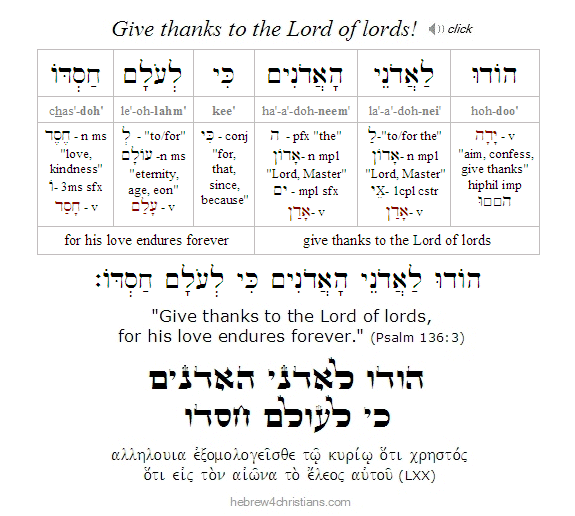 |
God's covenant with us in Messiah means he will be faithful in forgiveness, and we trust in that because it is his faithfulness that saves us, and not our own. Thank God that our own sin cannot hinder the glorious outworking of his salvation for our souls...
Names upon his heart...
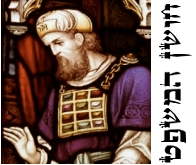
[ The following is related to this week's Torah reading, parashat Tetzaveh... ]
02.20.24 (I Adar 11, 5784) The two onyx stones attached to the shoulder pieces of the High Priest's vest (i.e., ephod: אֵפד) were meticulously inscribed with the names of the twelve tribes of Israel: "Take two onyx stones, and engrave on them the names of the sons of Israel, six of their names on the one stone, and the names of the remaining six on the other stone, in the order of their birth. As a jeweler engraves signets, so shall you engrave the two stones with the names of the sons of Israel. You shall enclose them in settings of gold filigree. And you shall set the two stones on the shoulder pieces of the High Priest's vest (i.e., ephod: אֵפד), as stones of remembrance for the sons of Israel. And Aaron shall bear their names before the LORD on his two shoulders for remembrance" (Exod. 28:9-12).
Likewise the twelve precious stones arrayed on the breastplate (i.e., choshen: חשֶׁן) that hung over the front of the High Priest's robe were inscribed with the names of the twelve tribes of Israel: "You shall make a breastpiece of judgment (i.e., choshen ha'mishpaht: חשֶׁן הַמִּשְׁפָּט) in skilled work... and you shall set in it four rows of three precious stones enclosed with gold in their settings. There shall be twelve stones with their names according to the names of the sons of Israel. They shall be like signets, each engraved with its name, for the twelve tribes... "So Aaron shall bear the names of the sons of Israel in the breastpiece of judgment upon his heart, when he goes into the Holy Place, to bring them to regular remembrance before the LORD" (Exod. 28:15-29).
The sages comment that just as a father carries his young child on his shoulders, or a shepherd his lamb, so the High Priest carried his people before the LORD in intercession. Similarly, at the cross Yeshua carried our names on his shoulders, bearing the burden of our sins on on breast as he cried out in prayer for us before the Father. As our great High Priest of the New Covenant, Yeshua "bore the judgment of the people upon his heart" as he made intercession for them (Isa. 53:12; Rom. 8:34).
Hebrew Lesson
Isa. 53:12b Hebrew reading:
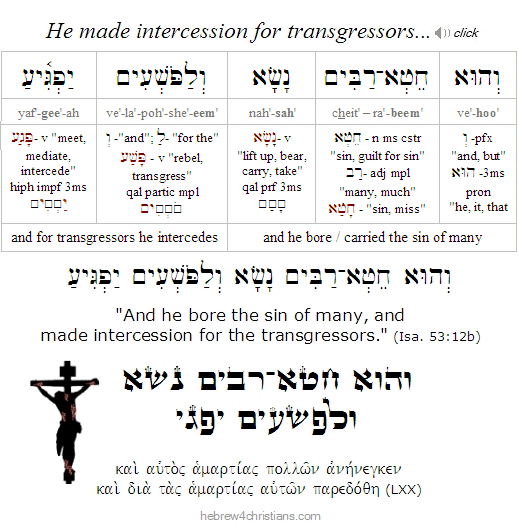 |
A Blessed Yearning....
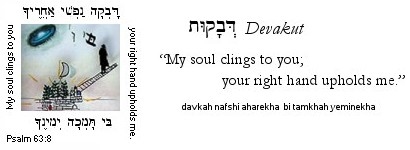
[ "All the gates of heaven may be closed except the 'gate of tears,' as it is stated: "Hear my prayer, Lord, and give ear to my pleading, keep not silence at my tears" (Berachot 32a). ]
02.20.24 (I Adar 11, 5784) There is an "upside-down way" of experiencing heavenly growth and genuine prosperity, though it is not a very popular one: "It was good for me that I was afflicted, that I might learn your decrees" (Psalm 119:71).
Affliction is a teacher... There is a blessing when you feel like you are "falling to pieces" because then you can know "in your bones" that only God can hold you together... Affliction serves as a "leash" of sorts, keeping us close to God's side, helping us number our days to attain a heart of wisdom (Psalm 90:12). As Yeshua said: Ashrei aniyei ha'ruach: "blessed are the poor in spirit," ki la'hem malchut ha'shamayim: "for theirs is the kingdom of heaven" (Matt. 5:3). Such inner poverty is a disguised grace, and the desire for healing reveals the Spirit's invitation.
Kotzer ruach (קוֹצֶר רוּחַ) is a phrase that means being short of breath, panting for the Divine Presence, yearning for God. When you are wounded, desperate, and find nothing else within you for life, then you are able to see clearly and to receive the miracle of the divine comfort. "I know, O LORD, that your judgments are right, and that in faithfulness you have afflicted me. Let your steadfast love comfort me according to your promise to your servant. Let your tender mercies come to me, that I may live; for your Torah is my delight" (Psalm 119:75-77).
Hebrew Lesson
Psalm 119:71 Hebrew reading:
Learn to see your daily afflictions as a blessing in disguise, an opportunity for you to develop the precious middah (quality) of patience and endurance... Indeed, it is curse to be devoid of need before the LORD, and therefore affliction is a means to receiving divine comfort.
The students of Rabbi Shimon bar Yochai asked him: Why did the manna not fall once a year [as opposed to once a day]? He answered, I will give you a parable: It can be compared to a mortal king who had a son for whom he provided food once a year; as a result, he saw his son but once a year. Thereupon he provided for his maintenance daily, so that he called upon him every day. The same is with Israel. One who had four or five children would worry and say, 'Perhaps no manna will fall tomorrow, and we will all die of hunger.' Thus they turned their faces to heaven in prayer (Yoma 76a).
Just as God humbled Israel with manna in the desert, so He humbles us. "Give us this day our daily bread..." The purpose of affliction is ultimately good and healing: God humbles us with manna so "that he might make you know that man does not live by bread alone, but man lives by every word that comes from the mouth of the LORD" (Deut. 8:3). In other words, God uses the discipline of affliction to lead us to the truth. We often pray that our problems be taken away, but God sometimes ordains these very problems so that we will draw near to Him... Yeshua told us, "Your heavenly Father knows what you need before you ask Him." Many of us are slow to learn, but God is patient with those whom He disciplines. The goal is to never lose sight of what's most important, which is God Himself.
"I didn't go to religion to make me happy. I always knew a bottle of Port would do that. If you want a religion to make you feel really comfortable, I certainly don't recommend Christianity." - C.S. Lewis: God in the Dock
Finding Inner Peace...
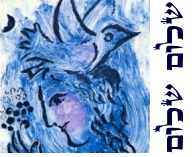
[ I don't need to understand as much as I need to trust. How my sins were taken away at the cross is a mystery, though I need to believe that God loves and heals me. What good is knowledge - even of things divine - without comfort? The struggle is to trust the heart of God - for everything - and especially for what breaks your heart... ]
02.20.24 (I Adar 11, 5784) The ultimate question is whether you feel "safe" with the truth of who you really are... When you are all alone, in a moment of still silence, when the entire world is asleep and suspended, what is the message of your heart's cry? Are you okay? Do you trust who you are or what is happening to you, or do you experience anxiety, a sense of lostness, inner pain?
Comfort is found in God's grace. His promise is given to the sick at heart, to those who understand their need for a physician (Matt. 9:12). Since there is nothing about you to commend before God, you are made free to abandon yourself to the divine love. This is the "Name of the LORD," after all, and your heart's cry for love is a "prayer" uttered in that Name.
Your heavenly Father sees in secret (Matt. 6:6). Consider the birds of the air; they are unreflective, alive in the atmosphere of God's care. What a great blessing to let go of your fear; what sweet relief! Surrender to the truth of your helplessness; rejoice that you are "poor in spirit," and discover that yours is the Kingdom of Heaven (Matt. 5:3).
So don't give up your faith, my friend. The Lord will give strength to his people; the Lord will bless his people with peace. There is hope for your future. God has promised to be with you to the end, leading you to the place where your heart will forever be satisfied in his love.
Hebrew Lesson
Psalm 29:11 Hebrew Reading:
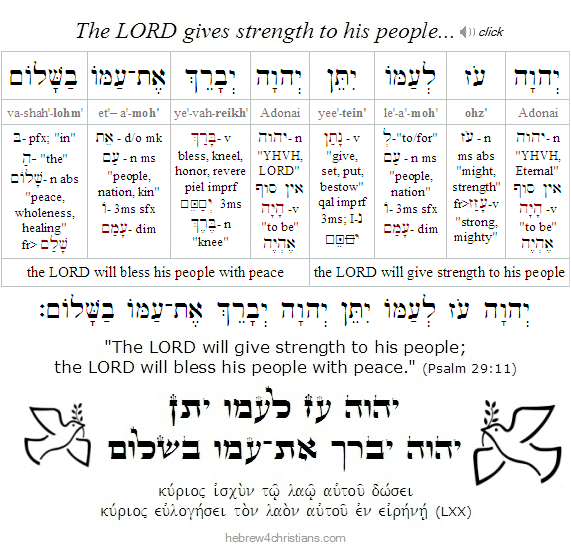 |
The Place of His Name...
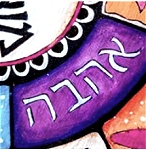
02.19.24 (I Adar 10, 5784) The revelation of the Mishkah (Tabernacle) presents a great mystery. God brings us out of Egypt, delivers us from slavery, carries us through various trials, all in order to be "our God" (אֱלֹהֵינוּ), and that means being in relationship with Him, brought to a place of conscious service by being made alive to His glorious reality that is hidden beneath the superficial appearance of things. Among other things, our freedom (חוֹפֶשׁ) means being set free from the vanity and illusions of this world by means of God's redeeming and atoning love. "In God's light we see light" (Psalm 36:9).
Just as the physical Mishkan was intended to accompany us in our journey to the promised land, it was always meant to represent a "pattern" (תַּבְנִית) or parable -- symbolizing a deeper design, namely God's inner light and presence within the heart of faith. Hence it says in the Torah, "Let them make for Me a holy place (מִקְדָּשׁ) so that I may dwell within them (וְשָׁכַנְתִּי בְּתוֹכָם)", that is, within the midst of their hearts (Exod. 25:8). It is the heart that is to be the place where God's presence is manifest...
This "pattern" foretold and revealed Yeshua as well, for He embodies the inner meaning of the Mishkan and invites us into His heart for communion with God. Indeed, Yeshua is ha'makom (הַמָּקוֹם), "the Place of God," and in his life we find our redemption and atonement. Attired in the humility of the High Priest during the Yom Kippur avodah, Yeshua identifies with his people and presents the blood of atonement in the inmost sanctum of God on our behalf. His heart is torn open for us in intercession and He will never leave nor forsake us.
Our lives are meant to live within God's heart and presence. The Holy Spirit reveals the pattern and we experience freedom as we abide within his love (John 15:10; John 14:21). The center of his passion is revealed in the cloud above God's Ark, where the blood offered over the shattered tablets of our lives, and it is there that the voice of His intercession is eternally uttered on our behalf (Exod. 25:22; Luke 23:34; Mark 15:33-38; Matt. 27:51).
Hebrew Lesson
Psalm 23:6 reading (click):
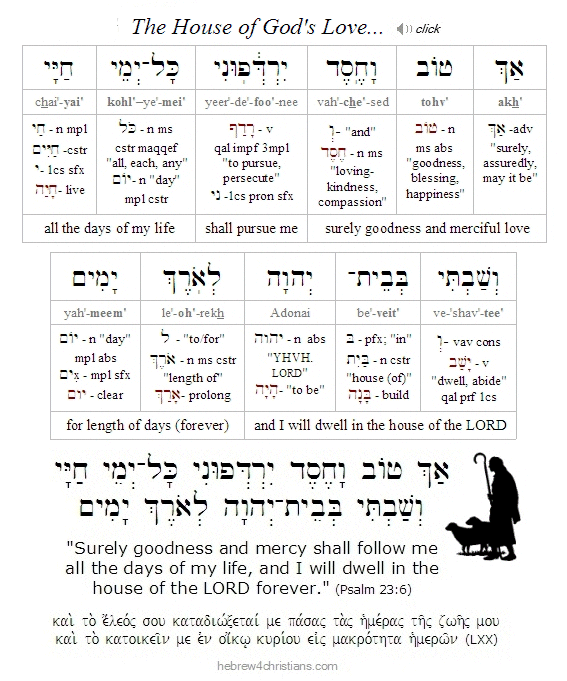 |
Crushed for the Light...
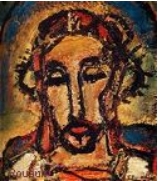
[ The following is related to this week's Torah reading, parashat Tetzaveh... ]
02.19.24 (I Adar 10, 5784) From our Torah portion for this week (i.e., parashat Tetzaveh) we read: "You shall command the people of Israel that they bring to you pure olive oil "crushed" for the light, that an eternal or continual lamp (i.e., ner tamid: נר תמיד) may be set up to burn" (Exod. 27:20).
The Hebrew word for "pure" olive oil is zakh (זך), which refers to the clearest oil derived from squeezing out (or crushing) the very first drop from the choicest olive. The purest of oil was obtained by a process of "crushing for the light" (כתית למאור), which symbolizes the Light of the World, the One Crushed for our iniquities, the "Man of Sorrows" (אישׁ מכאבות) who offered himself up for our healing and illumination (Isa. 53:1-5).
Some things are seen only through the process of tribulation, breaking, and surrender. When we kindle this lamp, we are able to see the truth; we perceive how God's heart was crushed for the sake of our salvation...
Hebrew Lesson
Isaiah 53:5 Hebrew reading:
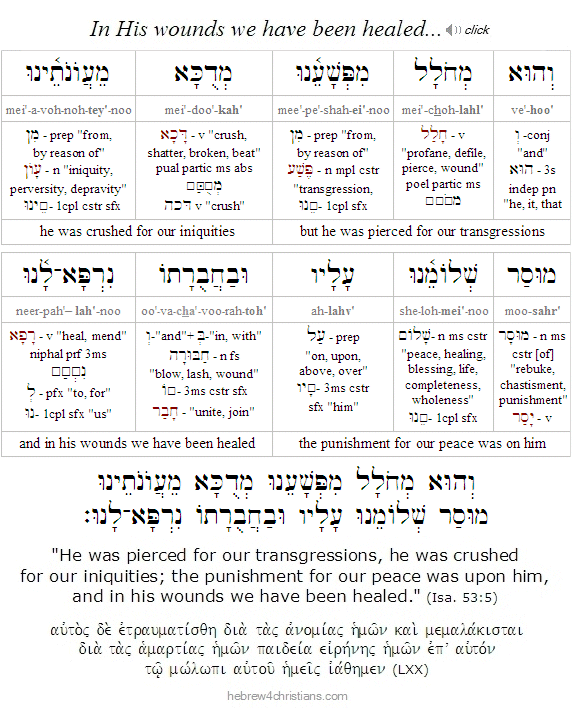 |
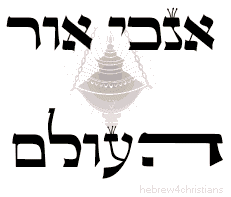
Broken and Remade...

[ "To fall in love with God is the greatest romance; to seek him the greatest adventure; to find him, the greatest human achievement." - Augustine ]
02.19.24 (I Adar 10, 5784) No one wants to say they are needy, broken, weak, and so on, and indeed such a confession is blasphemy to the heart of the proud. The truth, however, is that we are indeed all these things, and Yeshua told us we were blessed if we understood this (Matt. 5:3-6). There is great danger to pretend you are strong and capable of living life on your own terms, since eventually you will be blindsided by the truth about your condition. On the other hand, the confession of our weakness opens the way to God's power, as Yeshua said to Paul in his affliction: "My grace is sufficient for you, for my power is made perfect in weakness" (2 Cor. 12:9). Paul came to see that the various trials and afflictions in his life taught his profound dependence on God: "for when I am weak, then I am strong."
Access to this grace, however, comes at the expense of our pride. We must humbly confess who and what we are, and therefore we must entirely abandon hope in our own strength and virtues. "We are only as sick as the secrets we keep," especially those secrets we keep from ourselves - those self-deceptions and illusions we use to defend ourselves.
Suppose, for instance, that you have the bad habit of complaining and even cursing when you are beset by troubles, and you want to stop doing these behaviors. You may resolve to be more optimistic and grateful, or you may read self-help books -- or even take anger management classes -- but nothing will do you any lasting good until you know "in your bones" that you are powerless to change your heart. That is the first step to being set free. Or suppose that you are habitually unhappy, troubled, anxious, and in pain, yet you want to find inner peace and joy. Again, apart from the miracle of God there is no lasting remedy. You must be honest with yourself and confess the truth of your condition, asking God to do in you what you cannot do for yourself. As Yeshua said: "What is impossible with man is possible with God." So in this way God uses your sins to correct you or bring you to the end of yourself, and in that way awareness of your personal weakness is a blessing from God.
Recall that Yeshua said out of the heart proceed "evil thoughts," or more literally, "evil dialogs" or reasoning within yourself (διαλογισμοι πονηροι). You are tethered to yourself - you cannot escape yourself - yet a divided house cannot stand. Attempting to relate to yourself apart from a relationship with God leads to ongoing despair -- either the despair of resigning into yourself or else the despair of fleeing from yourself -- but either way, to a condition of anxiety derived from not being grounded in the life of God... "Unless a seed of wheat falls to the ground and dies, it abides alone..." (John 12:24). Yeshua is the source of all life, and we find nourishment, strength, and the meaning of who we are as we connect with him. By faith we affirm: "I have been crucified with Messiah, and it is no longer 'I' who live, but Messiah who lives in me" (Gal. 2:20). There is a new self that comes from above, known only in spiritual relationship with the Savior. The miracle of the exchanged life comes as we surrender to the truth of what God does for us (2 Cor. 5:17). That is the essence of the gospel, "the power of God for salvation for all who believe" (Rom. 1:16). Therefore we do not attempt to crucify ourselves, or labor to reform our corrupted lower nature, but we instead accept that we already have been crucified and healed by the mercy and miracle of God. We clothe ourselves in the robes of His righteousness as we celebrate God's redeeming love for our lives. Only then are we miraculously empowered by the Spirit to truly "love the LORD and keep his charge" (see Deut. 11:1).
The gate is narrow that leads to life, and few there be that find it (Matt. 7:14). That is part of the offense of the cross, after all - the confession you are lost, in darkness, and in need of salvation. Few receive this truth into their hearts because they want to be in control and refuse to let go; few regard their weakness as a blessing that opens the gate to God's strength. Let the weak say "I am strong" because of what the LORD has done. God's grace is sufficient, and his strength is perfected in weakness: "So then, I will boast most gladly about my weaknesses, so that the power of Messiah may reside in me" (2 Cor. 12:9). "I can do all things through the Messiah who strengthens me" (Phil. 4:13). Amen.
Hebrew Lesson
Isaiah 40:29 reading (click):
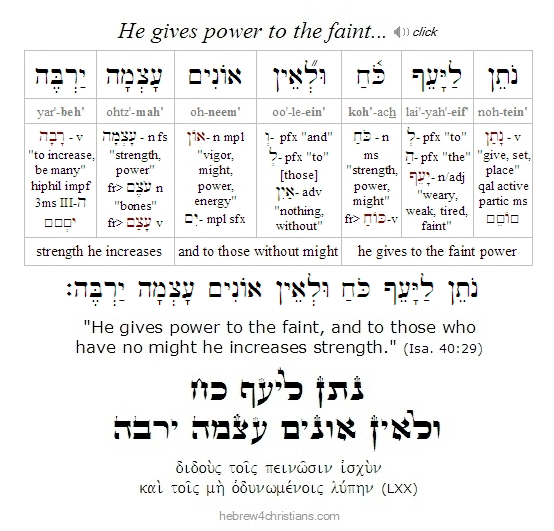 |
Attending to God's Light:
Parashat Tetzaveh...
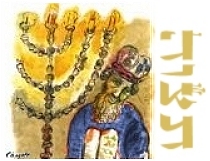
[ "All truth and understanding is a result of a divine light which is God Himself." - Augustine ]
02.18.24 (I Adar 9, 5784) Shavuah tov, friends. Last week's Torah reading, parashat Terumah (תרומה), explained that God had asked for a "donation" (i.e., terumah) from the people for the sake of creating a portable, tent-like sanctuary called the Mishkan (משׁכּן), or "Tabernacle." God then showed Moses the pattern (תּבנית) according to which the Mishkan and its furnishings were to be made. First the Ark of the Covenant (ארון בּרית־יהוה) and its golden cover (called the kapporet: כּפּרת) would occupy an inner chamber of the tent (אהל) called the Holy of Holies (קדשׁ הקדשׁים). Within an adjoining chamber of the tent called the Holy place (הקדשׁ), a sacred Table (שׁלחן) would hold twelve loaves of unleavened bread (לחם פּנים) and a seven-branched Menorah (מנורה) would illuminate the tent. God gave precise dimensions of the tent with the added instruction to separate the Holy of Holies by a hanging veil called the parochet (פּרכת). The entire tent was to have a wooden frame (מסגּרת) covered by colored fabric and the hide of rams and goats. Outside the tent an outer court (חצר) was defined that would include a copper sacrificial altar (מזבח נחושת) and water basin (כּיּור נחשׁת). The chatzer, or outer court, was to be enclosed by a fence made with fine linen on silver poles with hooks of silver and sockets of brass.
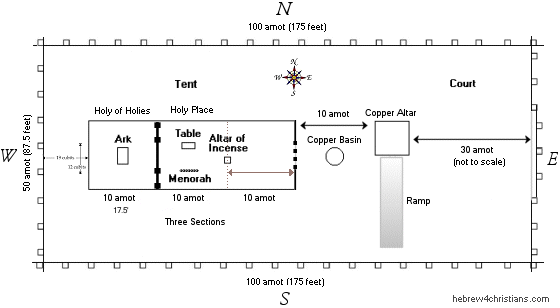 |
Our Torah reading for this week, parashat Tetzaveh (תצוה), continues the description of the Mishkan, though the focus shifts to those who will serve within it, namely the kohanim (כּהנים), or the priests of Israel. First Moses was instructed to tell the Israelites to bring pure olive oil (שׁמן זית זך) for the lamps of the Menorah, which the High Priest (הכּהן הגדול) was instructed to light every evening in the Holy Place. Next God commanded Moses to ordain Aaron and his sons as priests and described the sacred garments (בּגדי־קדשׁ) they would wear while they were serving in the Mishkan.
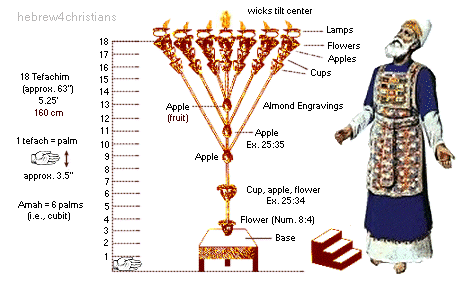 |
All priests were required to wear four garments – linen breeches, tunics, sashes, and turbans, but in addition to these the High Priest (Kohen Gadol) was to wear a blue robe that was decorated with pomegranates and golden bells. Over this robe, an ephod (אפוד) – an "apron" woven of gold, blue, purple, and crimson – was to be worn, upon which was attached a "breastpiece" (חשׁן) inlaid with precious stones inscribed with the names of the 12 tribes of Israel. The ephod also contained a pouch holding two unique gemstones called the urim v'tummin (אורים ותומים), usually translated as "lights and perfections." According to the Targum Jonathan, when a matter was brought to the High Priest for settlement, he would sometimes hold the urim (from אוֹר, "light") and tummin (from תָּם, "integrity" or "completeness") before the Menorah in the Holy Place and the Shekhinah would light up various letters inscribed on the gemstones to reveal the will of God. Finally, the High Priest would wear a golden plate (i.e., tzitz zahav: צּיץ זהב) engraved with the words, "Holy to the LORD" (קדשׁ ליהוה) upon the front of his turban.
The priests were to be ordained in a seven-day consecration ceremony that involved washing, dressing, and anointing them with oil and blood, followed by the offering of sacrifices. The priests were instructed to present burnt offerings twice a day upon the copper altar. The portion ends with a description of the Golden Altar (מזבּח הזהב) also called the Altar of Incense (מזבּח הקטרת) upon which incense (i.e., ketoret: קטרת) was offered twice a day by the priests when the Menorah lamps were serviced. In addition, the blood of atonement was to be placed on its corners once a year, during the Yom Kippur ritual.
King David and the Mishkan...

[ Just as the anointed king (David) enlarged the Temple, so Yeshua opens its doors to all the nations to find God's healing love... ]
02.18.24 (I Adar 9, 5784) Though Moses was instructed to make the Tabernacle according to the "pattern" revealed at Sinai (Exod. 25:9,40), King David -- by direct revelation of the Holy Spirit -- later changed the size of the Tabernacle and its vessels, made additions to the original design, and even changed the priestly order of service itself (see 1 Chron. 28:11-20). King David's vision shows us that both the structure and service of the Tabernacle were provisionally intended to give physical expression to a deeper spiritual reality, and indeed the New Testament calls the service of the Temple "a copy and shadow (ὑποδείγματι καὶ σκιᾷ) of the heavenly things" (Heb. 8:5). But what were these heavenly things if not the ministry of Yeshua as our High Priest of the New Covenant? The New Covenant (בְּרִית חֲדָשָׁה) is called a "better covenant based on better promises" (Heb. 8:6), that was "not like the covenant that I made with their fathers on the day when I took them by the hand to bring them out of the land of Egypt" (see Jer. 31:31-33). Our Scriptures comment: "In speaking of a new covenant, he has made the first one obsolete, and what is becoming obsolete and growing old is ready to vanish away" (Heb. 8:13). Likewise we read, "When Messiah appeared as high priest of the good things that have come, then through the greater and more perfect tabernacle (not made with hands, that is, not of this creation), he entered once for all into the holy places, not by means of the blood of goats and calves but by means of his own blood, thus securing an eternal redemption" (Heb. 9:11-12). The earlier Levitical priesthood and its sacrificial system was "a shadow (σκιᾷ) of the good things to come, and not the true form (i.e., substance) of these realities" (Heb. 10:1).
Moses was at first commanded, "Follow the pattern of the vision..." (Exod. 25:40); King David later instructed his son regarding the inspiration for the Holy Temple, "do the work according to the revealed plan..." (1 Chron. 28:19); but Yeshua our LORD declared: "The One greater than the Temple is here" (Matt. 12:6).
"And they came to Jerusalem. And He entered the Temple and began to drive out those who sold and those who bought in the Temple, and he overturned the tables of the money-changers and the seats of those who sold doves. And he would not allow anyone to carry any vessel through the Temple" (Mark 11:15-16).
Note that during this "cleansing of the Temple," Yeshua actually stopped the performance of the priestly duties: he "would not allow anyone to carry any vessel through the Temple," which included the sacrificial vessels used for the priestly avodah itself....
A principle of valid interpretation is that "a text without a context is a pretext." Therefore it is important to remember to carefully study the Torah of Moses, the prophets, and the Writings, since without the Tanakh (i.e., the "Old Testament") the new covenant scriptures are without context (1 Cor. 10:6; 2 Tim. 2:15, etc.). Moreover, Yeshua himself said: "Search the Scriptures, for in them you think you have eternal life, yet these very Scriptures testify of me" (John 5:39). Indeed Yeshua preached that he came to fulfill the true purpose of the law (Matt. 5:17-19), and to his disciples he interpreted that fulfillment: "And beginning with Moses and all the Prophets, he interpreted to them in all the Scriptures the things concerning himself.... "Then he said to them, 'These are my words that I spoke to you while I was still with you, that everything written about me in the Law of Moses and the Prophets and the Psalms must be fulfilled.' And then he opened their minds to understand the Scriptures" (Luke 24:27,44-45). The New Testament itself assumes that followers of Yeshua would be study and be familiar with the Hebrew Scriptures. When Paul wrote, "All Scripture is breathed out by God and profitable for teaching, for reproof, for correction, and for training in righteousness" (2 Tim. 3:16), he was referring to the Jewish Bible, since the New Testament writings had not yet been compiled.
As for the moral aspect of the law, however, the Torah of Yeshua is superior to that of the lawcode of Moses (especially as it was interpreted by the Pharisees), since Yeshua constantly focused on the heart and its inner motivations... That's the essential point of the Sermon on the Mount and the description of the law's true requirement (see Matt. 5:21-48). Notice how Yeshua quotes from the law and then moves it "inward," to be about the heart rather than mere external conformity.
Hebrew Lesson
Psalm 5:7 Hebrew reading:
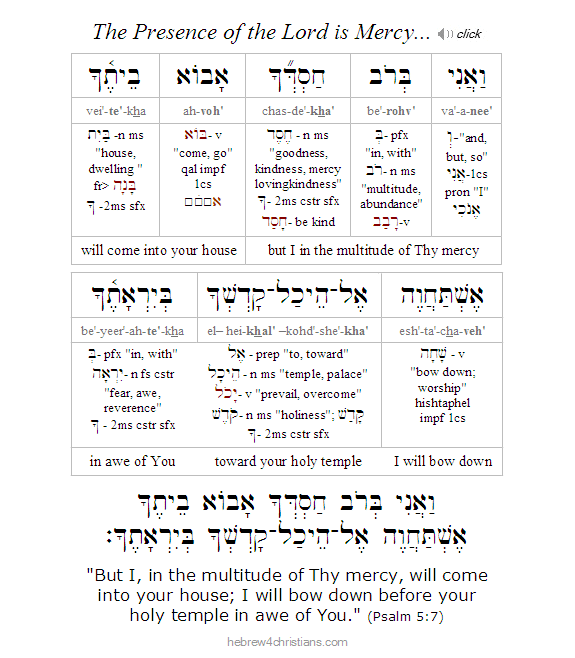 |
Teshuvah and Remedy...
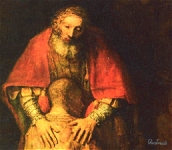
02.16.24 (I Adar 7, 5784) The teshuvah (repentance) called for by Yeshua is not like that of the rabbis... The rabbis want you to be sorry for your sins, to confess "every sin in the book," and to find "atonement" in religious rituals, but this is not "good news," but rather "stale news." The teshuvah of Yeshua is the miracle of new life; Messiah sets you free from the power of sin and death itself. The repentance of Yeshua is to trust in God's remedy for your sin: "This is the work of God, to believe in the One whom God sent" (John 6:29). "He saw that there was no man, and wondered that there was no one to intercede; then His own arm brought him salvation, and his righteousness upheld him" (Isa. 59:16).
We must turn away from the idea that God demands anything from us other than trust in his love. "Truly, I say to you, unless you turn and become like children, you will never enter the kingdom of heaven" (Matt. 18:3). Stop trying to "measure up" to his standards. You simply cannot give more than you have the grace to give, so you must begin by getting your heart needs met by accepting God's unconditional love. It's not about what you do for God, after all, but about what he does for you. That's the message of the gospel. Trust that you are rightly related to God because of the salvation of Yeshua, not because of your own efforts at self-improvement. "I tell you the solemn truth, the one who hears my message and believes the One who sent me has eternal life (חַיֵּי עוֹלָם) and will not be condemned, but has passed over (i.e., μετά + βαίνω, lit., "crossed over" [עָבַר]) from death to life" (John 5:24).
Do you believe that God loves you right now - just as you are - and that you don't have to change or improve yourself to be loved by him? Do you believe that, whatever your present condition, God loves you with the very passion that put Yeshua on the cross? The LORD is present for you now, if you will believe, not some time later, after you've attempted to remedy yourself or after you have somehow "endured to the end." If we come to God in utter poverty of spirit, confessing our need for deliverance from the misery of ourselves, why do we think that, after so coming, we should later relate to God on a different basis? You are delivered by trusting in God's grace, by accepting his love for your soul, and likewise are you sanctified. We never get beyond our need for the cross, which is to say that we always need God's compassion and mercy... "Repentance is the ultimate honesty" (Dietrich Bonhoeffer).
We must be careful not to worship an idol, that is, a false concept of God... It is possible to read the Bible, to go to church or synagogue, and yet worship a pagan god. How so? By not knowing the heart of the Father; by not honoring the One who passionately seeks our healing. We know the Father by the Son, that is, in "the language of Son" (Heb. 1:2; Luke 10:21-24). Our heavenly Father is eager to forgive and embrace all of his children.
In Yeshua's famous parable of the "prodigal son," the father saw his child a "long way off" and ran to embrace and kiss him - no questions asked, no explanations needed about his past. When the son nevertheless began reciting his carefully prepared speech of repentance, the father barely listened, and in his overwhelming joy instructed his servants, 'Bring quickly the best robe, and put it on him, and put a ring on his hand, and shoes on his feet. And bring the fattened calf and kill it, and let us eat and celebrate. For this my son was dead, and is alive again; he was lost, and is found...' (Luke 15:20-25).
Hebrew Lesson
Psalm 63:3 reading (click for audio):
Truth and the Sacred...

02.15.24 (I Adar 6, 5784) "Let them make me a mikdash ("holy place," "sanctuary"), that I may dwell in their midst" (Exod. 25:8). Though this verse refers to the physical mishkan (i.e., "Tabernacle"), it more deeply refers to the duty of the heart to sanctify the Name of God and bring a sense of holiness to the inner life. This requires that we focus the mind and heart to honor the sacredness of life, taking "every thought captive" to the truth of God in Messiah (2 Cor. 10:5). Since our minds and hearts are gateways to spiritual revelation, we must be careful to not to abuse ourselves by indulging in sloppy thinking or unrestrained affections. God holds us responsible for what we think and believe (Acts 17:30-31), and that means we have a duty to honor moral reality and truth. There is an "ethic of belief," or a moral imperative to ascertain the truth and reject error in the realm of the spiritual.
Since God holds us responsible to repent and believe the truth of salvation, He must have made it possible for us to do so ("ought" implies "can"). And indeed, God has created us in His image and likeness so that we are able to discern spiritual truth. He created us with a logical sense (rationality) as well as a moral sense (conscience) so that we can apprehend order and find meaning and beauty in the universe He created. All our knowledge presupposes this. Whenever we experience anything through our senses, for example, we use logic to categorize and generalize from the particular to the general, and whenever we make deductions in our thinking (comparing, making inferences, and so on), we likewise rely on logic. We have an innate intellectual and moral "compass" that points us to God.
Hebrew Lesson
Exodus 25:8 Hebrew reading (click):
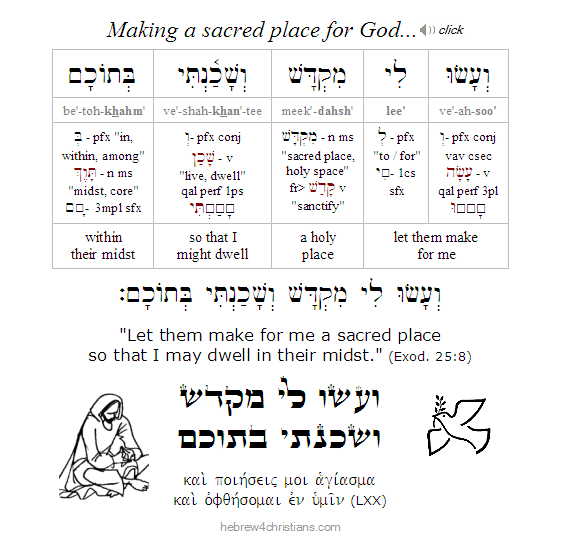 |
Since we all necessarily must think in order to live, we should value clear thinking. This should be obvious enough, though people often make various errors and misjudgments because they devalue the effort required to carefully think through a question. As William James once said, "A great many people think they are thinking when they are merely rearranging their prejudices." When it comes to questions about the gospel, however, God regards such carelessness to be blameworthy. Again, the LORD holds us accountable for what we think and believe, especially when it comes to the reality and mission of His Son.
The truth about God is always available to human beings, if they are willing to look for it. The Divine Light that was created before the sun and the stars represents God's immanent presence that "lights up" all of creation - including our minds (Gen. 1:3). As Paul stated, "the invisible things of Him from the creation of the world are clearly seen so that people are without excuse" (Rom. 1:19-20). The heavens are constantly attesting to the reality of God's handiwork (Psalm 19:1). All of creation "shouts out" that there is a God. Since an infinite series of causes is impossible, the Cosmological argument for the existence of a First Cause is intuitively known to be warranted...
The witness of God's truth is foundational to all of our thinking as well. If you regress far enough in a chain of reasoning, you will always encounter first principles, intuitions, axioms, and "apprehensions" of the laws of thought. This is how language works, or rather, how our mind necessarily discovers truth about reality. For example, the law of contradiction (or identity) is not discovered in experience, but is brought to experience by the operation of the mind. All reasoning is ultimately grounded on foundational first principles that are regarded as self-evident and that are known through the light of the mind itself. Even the pagan Greeks understood this. For instance, Aristotle said that both deduction and induction ultimately were based on the "intuitive grasp" of first principles of thinking itself.
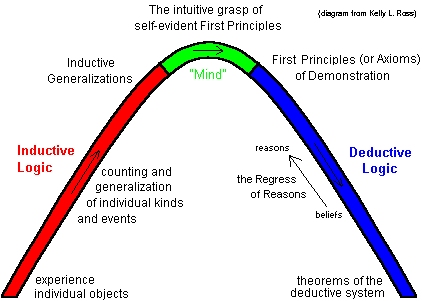 |
It's important to realize that no one "invented" the rules of logic (such as the law of identity, the law of contradiction, valid rules of inference, etc.); no, these are self-evident and presupposed in all forms of intelligible thinking about anything at all. In other words, God created the mind so that true thinking is possible. If you are reading these words, you are presently using logic. You are identifying and combining letters, interpreting their meaning, making connections and comparisons, and therefore making inferences. There is no way to argue that logic is "artificial" or culturally relative. No one can consistently use logic to argue against its universal validity. The revelation (not the invention) of logical first principles is part of God's "signature," if you will, of how the mind is wired to correspond to reality. Reason discovers order in the universe but does not create it ex nihilo. If you deny this, you have opted out of the realm of thought altogether and entered the realm of the absurd.
Likewise we have intuitive awareness regarding the existence of moral truth (i.e., the standard of justice and moral law), aesthetic truth (i.e., ideals of beauty, goodness, worth, and love), metaphysical truth (i.e., cause and effect relationships), and so on. Even scientific truth is based on principles that transcend the discipline of science itself (for example, the assumption that knowledge is "good" and should be obtained is not an empirical statement). The human mind naturally uses these sorts of categories in its thinking all the time, but each of these are ultimately derived from the rational mind of God Himself.
God created people so that they could discern truth about reality. The mind functions according to logical laws because it is made in the image and likeness of God Himself... God Himself is the ground of all logic, since He created reality and structured the world to be knowable according to its laws. As it is written: "In the beginning was the word/logic (ὁ λόγος), and the λόγος was with God, and the λόγος was God" (John 1:1). God created a world that exhibits order and great beauty. And since human beings were created b'tzelem Elohim, in the image of God, our thoughts (and the words used to formulate our thoughts) as well as our actions are likewise intended to exhibit order and beauty. "For the fruit of light (καρπὸς τοῦ πνεύματος) is found in all that is good and right and true" (Eph. 5:9). Therefore "whatever is true... think on these things" (Phil. 4:8).
Followers of Yeshua are commanded to love the truth and to think clearly about their faith. The ministry of reconciliation itself is defined as "the word of truth, by the power of God, through weapons of righteousness" (2 Cor. 6:7). Indeed, the word of truth (τὸν λόγον τῆς ἀληθείας) is a synonym for the "gospel of salvation" itself (Eph. 1:13; Col. 1:5; James 1:18). We are saved by Yeshua, who is the "way, the truth, and the life" (John 14:6). God commands all people to believe this truth (Acts 17:30-31; 1 Tim. 2:4). People perish because "they refuse to love the truth and so be saved" (2 Thess. 2:10-12). Therefore we see that the issue of truth is central to salvation itself....
For more on this topic, see the article "Metanoia: Teshuvah of the Mind."
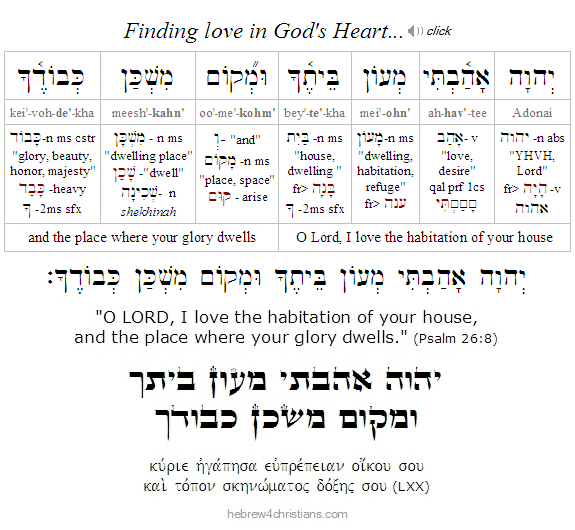 |
Audio Discussion:
The Beauty of the LORD...

02.15.24 (I Adar 6, 5784) The nature of beauty has been an enduring mystery to artists and philosophers over the millennia, and various attempts have been made to define it. For example, some have defined beauty as an order, arrangement, and harmony of some kind (understood either as objective qualities inherent in something beautiful, or as a subjective sentiment of a person experiencing something that is esteemed as beautiful, and most often as a combination of both). In other words, something is regarded as beautiful because it possesses a certain arrangement of qualities or characteristics that evoke pleasure or satisfaction in the mind or heart of a person.
The Scriptures teach us, however, that beauty is part of the very composition of things; the design and form of whatever exists, and that the revelation of beauty attests to the glory of God. Beauty is not simply "in the mind of the beholder," but is objectively real, as part of the very structure of reality. Consider, for example, the flower that blooms, the bird that sings, the star that shines, and the sunset that suffuses the evening skies. "The heavens declare the glory of God, and the firmament proclaims his handiwork; day to day pours out speech, and night to night reveals knowledge" (Psalm 19:1-2).
The beauty of the natural world is grounded in mind of God, since God actively created and designed creation for his purposes and pleasure (see Gen. 1:1, 31; Rev. 4:11). The creation bears witness to the brilliance of the Creator, and the imprint of God's handiwork is evident in the concinnity, order, and marvels of the natural world itself. This is particularly evident in the case of man, who is endowed with a conscience, or an intuitive "moral compass" that discerns the demands of justice and understands right and wrong. The conscience serves as an inner witness that speaks peace, harmony, and goodness when the moral law is observed, and unhappiness, disorder, and evil when it is disregarded or suppressed. As I've mentioned before, the ancient Greek mindset regarded what is beautiful as what is good, whereas the Hebrew mindset regarded what is good as what is beautiful. The difference is one of orientation. Doing our duty before God, obeying "the moral law within," is what is truly beautiful, not merely appreciating symmetry, order, harmony, and so on. Beauty is a type of the good, in other words, and justice expresses the truth of the good in relation to oneself and others. Beauty is also a type of truth, since what is beautiful expresses and reveals truth, whereas what is not truly beautiful expresses what is false. The heart attests to the reality of the Creator and realizes its ontological indebtedness to God (Rom. 1:20).
Theologically, the "beauty of the LORD" (נעם־יהוה) can be understood as the effulgence of God's manifold perfections, everything about his heart and character that evokes ecstatic wonder, solemn awe, and irresistible attraction in his conscious creatures. It is the brightness and loveliness of God, the "charm of his unsurpassed excellence," his perfect justice and infinite compassion for his creation. The LORD is "the Rock, his work is perfect, for all his ways are justice. A God of faithfulness and without iniquity, just and upright is he" (Deut. 32:4). The beauty of the LORD is likened to the purity of Divine Light, the radiance and splendor that is incomprehensibly mysterious and good. The New Testament says "For God, who said "Let light shine out of darkness," is the one who shined in our hearts to give us the light of the glorious knowledge of God in the face of the Messiah" (2 Cor. 4:6). Yeshua is the Divine Light; the Radiance and Beauty of God manifest in the flesh (1 Tim. 3:16). "He is the radiance of the glory of God (הוּא זהַר כְּבוֹדוֹ) and the exact imprint of his nature, who upholds the universe by the word of his power" (נוֹשֵׂא כל בִּדְבַר גְּבוּרָתוֹ; Heb. 1:3). "All things were made by him; and without him was not any thing made that was made" (John 1:3).
So how do we wake up to the beauty of the LORD? How do we come to "see the invisible blessing" that pervades all things? How may we encounter the truth that "the whole world is filled with the irrepressible glory of the LORD" (Isa. 6:3)? .
Frederick Buechner once described a "holy hush" that came over a boisterous crowd of people when they first encountered the giant redwood trees at Redwood National Park. As the people began to take in their surroundings, everything seemed to change - the loud chatter faded; the light, the atmosphere, and especially the awe of being in the presence of these enormous and ancient trees (some of which had been standing since the time of Yeshua), induced a sense of smallness and humility before the glory that surrounded them.
You may have experienced this sort of awe also, perhaps while observing the starry night sky, or while watching the sun set over the mountains or upon the rim of the Grand Canyon, or when witnessing the birth of a baby, or when listening to music that touched your heart and brought tears to your eyes, and so on. Such experiences are sometimes called "self-transcendent," since they move us outside of our ordinary consciousness in an encounter with something great, breathtaking, wonderful, and sublime...
Encountering the glory of the LORD evokes conflicting emotions within the heart, a powerful combination of fear and attraction that is sometimes called the "numinous." The LORD our God is beautiful beyond anything we can imagine, yet were we to directly encounter him we would be so overwhelmed that we would "fall to the ground as one dead" (Rev. 1:17); nonetheless he puts his hand upon us and says, "Don't be afraid; for I am with you." By his gracious touch, then, we are able to look upon the radiance of his presence, to receive the vision of his majesty and transcendent beauty and loveliness. And the amazing thing is that this is what he wants; this is the very desire of his heart, after all, the prayer to the Father that we should behold his glory (see John 17:22-24). And this, I believe, is part of what is meant when it is said that we are made temples of the Holy Spirit (1 Cor. 3:16). " You yourselves are like living stones being built up as a spiritual house, to be a holy priesthood, to offer spiritual sacrifices acceptable to God through Yeshua the Messiah" (1 Pet. 2:5).
This topic relates to our Torah reading for this week, parashat Terumah. As we are drawn by God's grace to love the Lord and to understand how truly beautiful and wonderful and kind he is to us, we will be willing to worship him and celebrate his loving glory. To be alive before God is to be alive to his beauty. Your heart will flutter in joyful excitement to sing: "Give unto the LORD the glory due unto his name; bow down to the LORD in the beauty of holiness" (Psalm 29:2). We sanctify the LORD God within us by affirming his superlative beauty, his infinite goodness, the greatness of his power, the perfections of his justice and truth, his unfathomable kindness, and his unsurpassing and everlasting love. The recognition of the beauty of the LORD is the awareness of his holiness, wherein our heart will esteem his sacred glory as our most precious and extraordinary gift. The beauty of the LORD our God is the heart of love and life and wisdom and truth, the Supreme Being of which no greater can be conceived, for ever and ever. Yehi Shem Adonai Mevorakh. Amen.
Hebrew Lesson
Psalm 90:17 Hebrew reading:
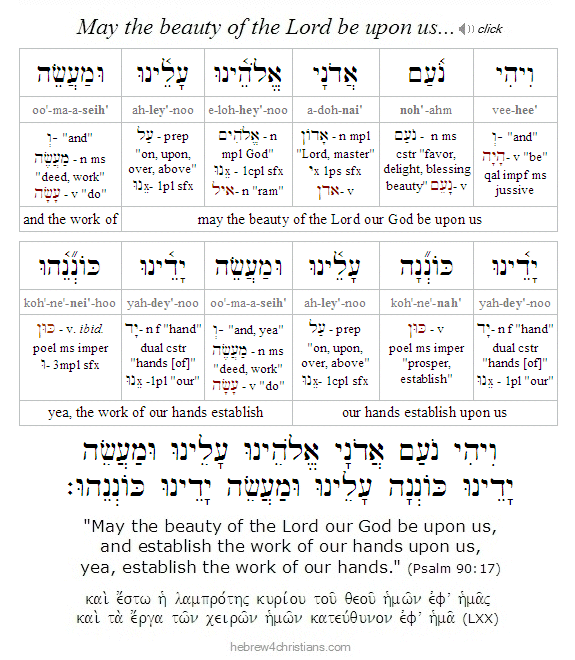 |
The Heart's Treasure...
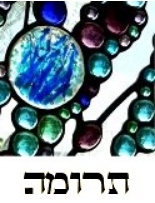
[ The following is related to this week's Torah reading, parashat Terumah.... ]
02.15.24 (I Adar 6, 5784) Our Torah portion this week (parashat Terumah) explains that the materials needed for the creation of the Sanctuary were to be supplied by contributions (i.e., terumah: תְּרוּמוֹת) freely given by those whose hearts were moved (Exod. 25:2, Matt. 6:21). In a sense, God "needs" the willing heart to celebrate the glory of his love.
It is the nature of love to be shared, and that implies vulnerability, even for God Himself (Luke 14:16-23). The "house" of the Lord is created from the willing heart, just as the goal of God's creative activity is the building of a kingdom based on divine love (i.e., malkhut ha'Elohim: מַלְכוּת הָאֱלהִים). As King David wrote, עוֹלָם חֶסֶד יִבָּנֶה / olam chesed yibaneh: "The world is built with love" (Psalm 89:4).
This is the meaning of "sanctuary," after all, that our lives are built on the solid foundation of God's grace and lovingkindness (i.e., chesed: חֶסֶד). It is said that all the world was created for Messiah, since He is the "corner stone" of creation (i.e., rosh pinnah: ראשׁ פִּנָּה), and the house itself is built up in the love of God given in Him.
Hebrew Lesson
Exodus 25:8 Hebrew reading:
 |
Half-Cubits and Mystery...
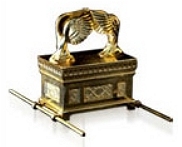
[ The following is related to this week's Torah reading, parashat Terumah... ]
02.14.24 (I Adar 5, 5784) The renowned "Ark of the Covenant" (ארון ברית־יהוה) was constructed using fractional measurements (i.e., "half-cubits") to specify its length, width, and height: "They shall make an Ark of acacia wood (ועשׂוּ ארוֹן עֲצֵי שִׁטִּים). Two cubits and a half (אַמָּתַיִם וָחֵצִי) shall be its length, a cubit and a half (ואַמָּה וָחֵצִי) its breadth, and a cubit and a half its height" (Exod. 25:10). The sages comment that the "half-cubit" is symbolic of our fractional understanding, alluding to mystery and even paradox.
"You shall overlay it with pure gold, inside and outside shall you overlay it, and you shall make on it a crown of gold (זֵר זָהָב) around it" (Exod. 25:11). The heart of the Tabernacle held the law of God, a picture of Yeshua who bore the law of God within his heart (Matt. 5:17-18). And though the Ark was made of wood from the common thorntree, it was covered inside and out with pure gold and bore a "crown" where the sacrificial blood was offered for atonement, a picture of Yeshua who clothed himself in our humanity, bore the crown of thorns, and shed his blood for our eternal atonement (Heb. 9:12).
Note that the Hebrew text says "they shall make an ark of acacia wood" (Exod. 25:10). Unlike other furnishings of the Tabernacle that were made by Betzalel, the text uses the plural verb here: "they shall make an ark" (וְעָשׂוּ אֲרוֹן), which implies that every person had a part in upholding the Torah. More - each person had a part in the place of blood atonement offered upon the kapporet - the cover of the Ark - which again symbolizes that Yeshua offered his life for the sins of the whole world (1 John 2:2). Shalom chaverim.
Hebrew Lesson
Psalm 85:10 reading (click for audio):
Thoughts on the Parasha:
Blood over Broken Tablets...

[ The following is related to this week's Torah reading, parashat Tetzaveh... ]
02.14.24 (I Adar 5, 5784) The earthy Tabernacle (i.e., Mishkan) and its furnishings were "copies" of the heavenly Temple and the Throne of God Himself (Heb. 10:1). Moses was commanded to make the Sanctuary according to the "pattern" revealed at Sinai (Exod. 25:9). As it is written in our Scriptures, "For Messiah has entered, not into holy places made with hands, which are representations (ἀντίτυπος) of the true things, but into heaven itself, now to appear in the presence of God on our behalf" (Heb. 9:24).
The centermost point (heart) of the earthly Tabernacle was the Ark of the Covenant (אֲרוֹן־הַקּדֶשׁ), a "three-in-one" box that contained God's Holy Word (i.e., the tablets of the Torah). As such, the Ark served as a symbol of kisei ha-kavod (כִּסֵּא הַכָּבוֹד), the Throne of Glory. The Ark stood entirely apart as the only furnishing placed in the "three-in-one" space called the Holy of Holies (קדֶשׁ הַקֳּדָשִׁים). Upon the cover of the Ark (i.e., the kapporet) were fashioned two cherubim (i.e., angel-like figures) that faced one another (Exod. 25:17-18). According to the Talmud (Succah 5b), each cherub had the face of a child - one boy and one girl - and their wings spread heavenward as their eyes gazed upon the cover (Exod. 25:20). This was the sacred place where the blood of purification was sprinkled during Yom Kippur, the Day of Atonement, and this is the Place (הַמָּקוֹם) that prefigured the offering of the blood of the Messiah, our eternal Mediator of the New Covenant. "For I will appear in the cloud over the kapporet" (Lev. 16:2; Exod. 25:22). As it is written in the prophet Isaiah: "I have blotted out your transgressions like a thick cloud and your sins like heavy mist; return to me (שׁוּבָה אֵלַי), for I have redeemed you (Isa. 44:22).
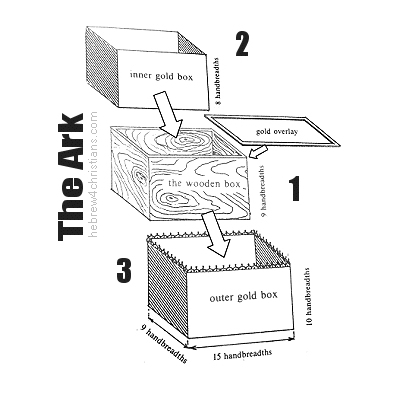 |
The central ritual of atonement given in the Torah is that of the anointed High Priest sprinkling sacrificial blood over the tablets of the law upon the kapporet (the "mercy seat") of the Ark of the Covenant - the Place where "Love and truth meet, where righteousness and peace kiss" (Psalm 85:10). It was from the midst of the surrounding cloud in the Holy of Holies that the Voice of the LORD was heard, just as it was in the midst of the surrounding cloud of darkness upon the cross that Yeshua cried out in intercession for our sins (Luke 23:44-46).
Hebrew Lesson
Isaiah 44:22 Hebrew reading:
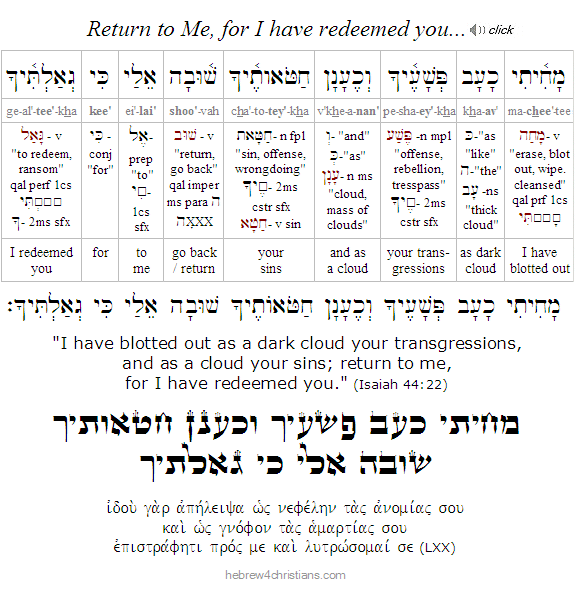 |
Just as Moses alone approached God in the thick clouds at Sinai to receive the revelation of the Altar as mediator of the older covenant (Exod. 24:15), so Yeshua, the Mediator of the New Covenant, went through his severest agony on the cross as the darkness covered the earth (Luke 23:44; Matt. 27:45). May His name be blessed forever.
Related Addendum:
The question may be asked whether we are bound to observe the terms of the covenant made with Israel at Sinai or whether there is indeed a new covenant (בְּרִית חֲדָשָׁה) that has been effected and that by means of which we may now draw near to God. Mind you that this "new covenant" is described in Scripture as being "NOT according to the covenant that I made with their fathers in the day that I took them by the hand to bring them out of the land of Egypt" (Jer. 31:32), and therefore we should not think the word translated "new" (i.e. chadash: חָדָשׁ) means "renewed" or "restored" (see Heb. 8:13). The basic question we need to answer is whether the life, sacrificial death, and resurrection of Jesus is primarily a means to a renewed Sinaitic covenant relationship with God, or does it constitute a genuinely new way of being in relationship with Him. How we answer this question will determine what we mean by "torah" and our covenantal responsibilities before the LORD.
The New Testament teaches that the new covenant is not merely the Sinai Covenant "renewed," but instead constitutes an entirely new and radically different way to be in relationship with God. The New Covenant sets us free from the terms of Sinai (by the death of the Testator, Hebrews 9:15) so that we might serve the LORD in a new and better way (see Jer. 31:33; Romans 7:1-6; Hebrews 8:6; Romans 9:31-32; Acts 13:39; see esp. Gal. 4:21-5:1). The entire book of Hebrews in the Brit Chadashah is devoted to this liberating and wonderful truth.
As the Apostle Paul puts it, "The righteousness of God has been revealed apart from the works of the Torah" (Romans 3:21), and, as the book of Hebrews puts it, "We have an altar, whereof they have no right to eat which serve the Tabernacle" (i.e., under the older Levitical system of worship, Hebrews 13:10).
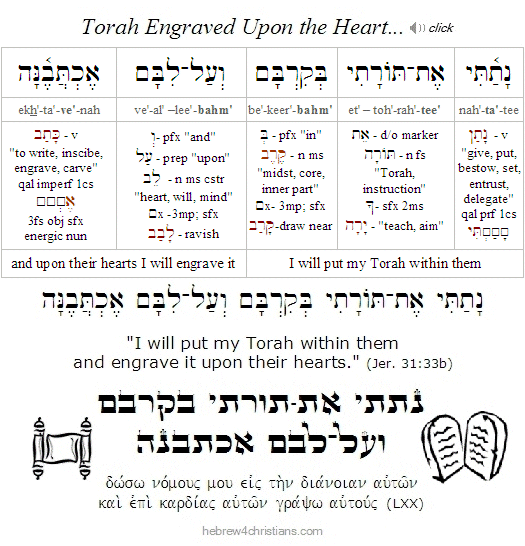 |
See also:
Shadows and Substance...

[ The following is related to this week's Torah reading, parashat Terumah... ]
02.14.24 (I Adar 5, 5784) The Scriptures reveal that the Mishkan (or "Tabernacle") was intended to provide an elaborate "parable" or "pattern" (i.e., tavnit: תַּבְנִית) that points to the salvation of our God (יְשׁוּעַת אֱלהֵינוּ). The Mishkan (as a whole) was intended to designate a central and sacred place (מִקְדָּשׁ) symbolizing the Divine Presence, with the tribes carefully arrayed on each side (east, west, north, and south, in cruciform), and the four families of the Levites arrayed on each side of the courtyard (Num. 2). The gate to the Mishkan opened from the east, where the tribe of Judah was positioned (Gen. 49:10) and where the Kohanim (priests) had their camp just outside the court (Heb. 7:14).
The Camp Formation:
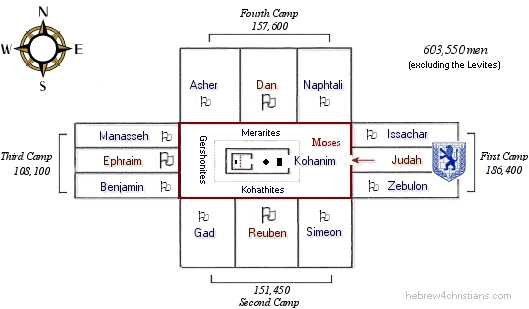 |
As you entered the Mishkan itself, you would immediately behold the mizbe'ach (i.e., copper altar), which revealed the "korban principle," namely, that the only way to draw near to God is by means of sacrificial blood offered for the sinner, as is stated in the Torah, "For the life of the flesh is in the blood, and I have given it for you on the altar to make atonement for your souls, for it is the blood that makes atonement by the life" (Lev. 17:11), and "without the shedding of blood there is no forgiveness of sins" (Heb. 9:22). In this connection note that it is God who gives us the blood for atonement, and indeed the central (and ongoing) sacrifice on the altar was the daily offering of a defect-free male lamb along with unleavened bread and wine called "korban tamid" (קָרְבַּן תָּמִיד).
The Pattern of the Mishkan:
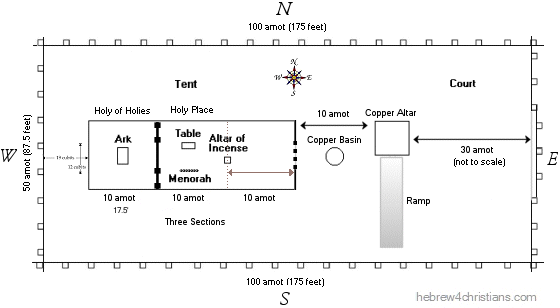 |
The korban tamid commemorates the Lamb of God and the deeper meaning of the Passover, which the LORD called "my Offering, my Bread" (see Num. 28:1-8). Note further that the sacrifice of the lamb upon the altar was openly displayed in the courtyard, just as the cross of Messiah was a public display (John 19:16; Col. 2:14-15), though the atonement for sin was made only after the High Priest sprinkled sacrificial blood upon the covering of the Ark of the Covenant that held the testimony of the law during the Yom Kippur service. Unlike the public sacrifice of the lamb upon the altar, the Yom Kippur ritual pictures the "hidden offering" of the blood before the Throne of God in the holy of holies "made without hands," that is, the greater priesthood of the Messiah who secures an eternal atonement (Heb. 10).
Therefore understand that the Mishkan (and later the Temple) was a provisional pattern designed by God to foretell the Substance and Reality to come, as it is written: "the Word became flesh and tabernacled with us" (John 1:14), and "when our Messiah appeared as the high priest of the good things that have come, He passed through the greater and more perfect Mishkan not made with hands (τῆς μείζονος καὶ τελειοτέρας σκηνῆς οὐ χειροποιήτου), that is, not of this creation, and entered once for all into the most holy place not by the blood of goats and calves but by his own blood, and so he himself secured eternal redemption for us" (Heb. 9:11-12).
Note that the High Priest was required to perform the Yom Kippur avodah (service) alone, while wearing humble attire, divested of his glory, and in complete solitude: "No one may be in the tent of meeting from the time he enters to make atonement in the Holy Place until he comes out" (Lev. 16:17). The Hebrew text literally says, "no adam (אָדָם) shall be in the tent," which suggests that something more than the natural man is needed for divine intercession. And just as Moses alone approached God in the thick clouds at Sinai to receive the revelation of the Altar as mediator of the older covenant (Exod. 24:15), so Yeshua, the Mediator of the New Covenant, went through his severest agony on the cross as the darkness covered the earth (Luke 23:44; Matt. 27:45).
Hebrew Lesson
Exodus 25:40 Hebrew reading:
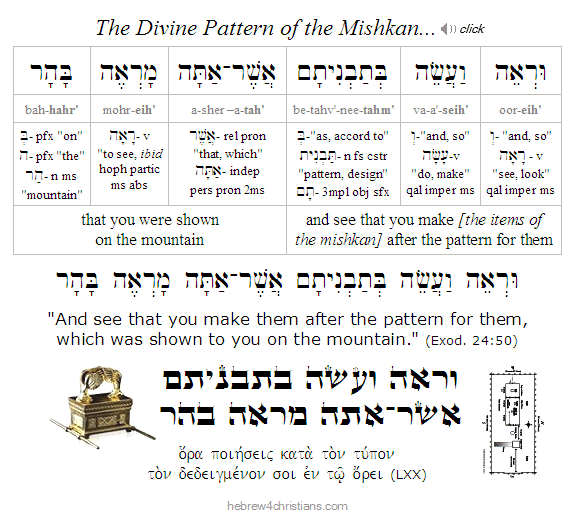 |
The Light of the Servant...
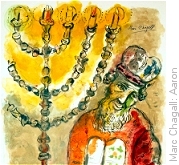
02.13.24 (I Adar 4, 5784) One of the main components of the Mishkan (i.e., Tabernacle) was the Menorah (מְנוֹרָה), a beautifully designed lampstand that illuminated the Holy Place. Our Torah portion this week (Terumah) reveals that all its intricate parts (i.e., its seven branches with seven lamps, nine flower blooms, eleven fruits, and twenty two cups) were formed from a single piece of pure gold (זָהָב טָהוֹר) that was "beaten" or "hammered" into shape (Exod. 25:36). The gold color is symbolic of the divine substance (gold has a hint of the color of blood combined with the pure white). The six lamps of the menorah faced the central lamp, called the shamash or "servant," so called because it bore the flame from which the other lamps were kindled.
 |
The seven lamps of the menorah were lit daily, "from evening until morning," starting from the central lamp (i.e, the shamash) and then moving right to left (Exod. 27:21). According to the Talmud (Shabbat 22b), while all the lamps received the same amount of olive oil, the "westernmost" lamp (according to Rashi, the center lamp, due to its orientation) miraculously never ran out of oil, even though it was kindled first in the sequence. When Aaron would rekindle the lamps every evening, he saw the shamash still burning, so he simply refilled it with oil and trimmed its wick. This miracle is also said to have occurred during the Temple period, though it abruptly ended about 40 years before the destruction of the Second Temple (c. 30 AD), after the death of Yeshua the Messiah, the true Servant and Branch of the LORD. As it is attested in the Talmud: "Our Rabbis taught: During the last forty years before the destruction of the Temple the lot ['For the Lord'] did not come up in the right hand; nor did the crimson-colored strap become white; nor did the westernmost light shine" (Yoma 39a).
The Scriptures declare that God is light, and Yeshua is the true Light of God (1 John 1:5; John 1:9). The light from the menorah reveals spiritual light. It was not seen from the outside of the Tabernacle, but only while inside the holy chamber, before the holy place of sacrificial atonement. The light itself came from the burning of pure and beaten olive oil - a symbol of anointing and the Holy Spirit (רוּחַ הַקּדֶשׁ). It enabled service to God to be performed, though it was not a light to be used for profane purposes. Notice that the six lamps faced the central lamp -- a picture of Yeshua, the Light of the World whose arms and legs were "hammered" for our sins.... He is the suffering servant (shamash) who lightens everyone in the world; He is the center, the supporting trunk for the other branches (John 15:5).
Hebrew Lesson
Psalm 36:9 Hebrew reading:
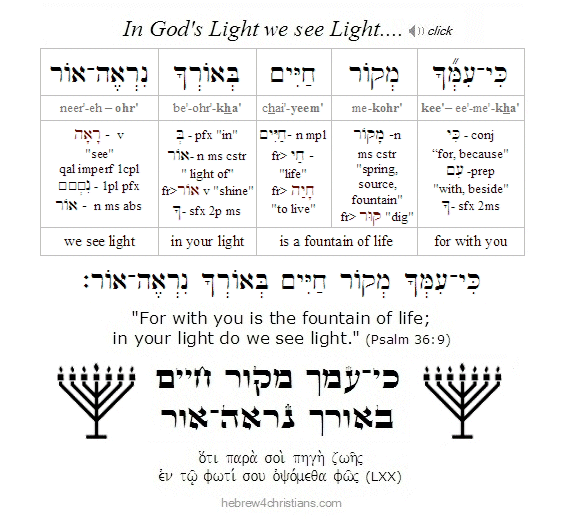 |
For more on this fascinating subject, see "A Closer Look at the Menorah."
Loving the Stranger...
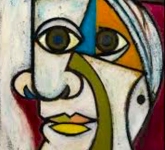
02.13.24 (I Adar 4, 5784) I mentioned the other day that one of the most frequently occurring commandments of Torah is to love the stranger. Indeed, the commandment is repeated in various forms over 30 times in the Jewish Scriptures, for instance: "You shall love your neighbor as yourself: I am the LORD" (Lev. 19:18); "You shall treat the stranger who sojourns with you as the native among you, and you shall love him as yourself, for you were strangers in the land of Egypt: I am the LORD your God" (Lev. 19:34); "Love the stranger, therefore, for you were sojourners in the land of Egypt" (Deut. 10:19); "You shall not wrong a sojourner or oppress him, for you were sojourners in the land of Egypt" (Exod. 22:21); "When a stranger sojourns with you in your land, you shall not do him wrong" (Lev. 19:33); "Do not oppress the stranger" (Zech. 7:10); "Cursed be anyone who perverts the justice due the stranger" (Deut. 24:19); "The stranger shall be as the native born children of Israel among you" (Ezek. 47:22), "There shall be one Torah for the native and for the stranger who sojourns among you"(Exod. 12:49; Num. 15:16), and so on.
Clearly the LORD does not want people to feel ostracized, excluded, or otherwise left out of His providential and loving plans... Indeed, the message of the universal love of God is at the heart of the gospel itself, hearkening back to God's earliest promises to redeem humanity and restore paradise lost. "Religion," tribalism, prejudice, ethnic pride, and so on, are anathema to the Kingdom of God.
Hebrew Lesson
Deut. 10:19 reading (click for audio):
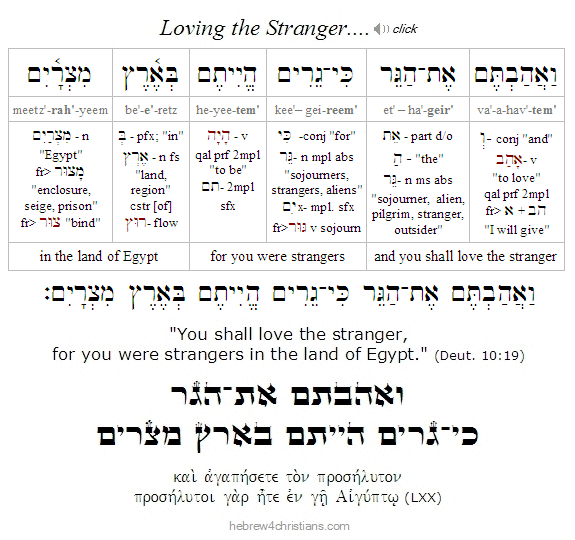 |
Jewish tradition says that King David was born on Shavuot ("Pentecost"), the holiday of shtei ha-lechem, the "two loaves" that prophetically foretold of the advent of the "one new man" (Eph. 2:14-22) and of the mysterious inclusion of the Gentiles into the covenant promises of God (Eph. 3:6). God has a great compassion for the outsider, for the lost, for the orphan and those who are without inheritance in this world. During Shavuot it is customary to read the Book of Ruth which tells the story about redeeming love and the advent of King David. Recall that King David was a direct descendant of Ruth, who as a Moabitess was an outsider and "stranger" to the promises of God (Ruth 4:17). Despite being part of an despised and rejected group of people (see Deut. 23:3), Ruth overcame the law's demand by believing in the love and acceptance of a redeemer of Israel (Ruth 3:9). Ruth's great grandson was named David (דָוִד), meaning "beloved," which has the same numerical value as the word "hand" (יָד). It is no wonder that the LORD chose David to represent God's extended hand of love for the stranger, for the convert, for the outsider, the leper, and the lost, since his descendant Yeshua the Messiah came to love and redeem the entire world by means of His outstretched hands. !ברוך הוא יהוה ישוע
"I was a stranger and you welcomed me" (Matt. 25:35). We are commanded (i.e., blessed) to practice ahavat ha'geir (אהבת הגר), the "love of the stranger." This means showing compassion and empathy to an "outsider" who may question their worth and place in your midst... On a somewhat deeper level, the duty to "love the stranger" applies not only to someone whom we regard as an "outsider," but more radically to the "stranger within ourselves," that is, to those aspects of ourselves we censor, deny, or reject. Self-hatred is a spiritual dead-end, chaverim.... Like the prodigal son, we have to "come to ourselves" to return home (Luke 15:17), yet we can't know that we are unconditionally loved until we venture complete disclosure and seek acceptance - despite the mess of our lives. That is the great risk of trusting in God's love for your soul. Those parts of ourselves that we "hide" need to be brought to the light, healed, and reconciled. After all, if we don't find healing for our self-rejection and pain, how can we hope to love and accept others? Dear Lord, deliver us from the torment of self-hatred, in the Name and passion of your love, amen.
 |
The Place of God...

[ The following is related to this week's Torah reading, parashat Terumah... ]
02.13.24 (I Adar 4, 5784) "Let the people make me a sacred place (מִקְדָּשׁ) that I may dwell in their midst" (Exod. 25:8). But what is this other than heartfelt and earnest prayer? The materials of the sanctuary come from "freewill offerings" (נְדָבוֹת), which derive from the inner yearning of the soul... We offer our hearts up to God, and the Lord, in his great mercy, fills us with faith, hope, and love. Our spiritual need for God is his habitation with us; our hunger and thirst for healing and life is a gift from heaven (Matt. 5:6). Our blessed desperation impels us to pray because we cannot help praying. As Abraham Heschel once said, "prayer is more than a light before us; it is a light within us." At its deepest level, prayer is not about asking but receiving; it is not so much appealing to God as it is allowing God to appeal to us. As John Bunyan once wrote, "Rather let thy heart be without words than thy words be without heart." Amen. Adonai sefatai teef'tach, "O Lord, open my lips," oo'fee yageed tehilate'kha, "and my mouth will declare your praise" (Psalm 51:15).
אֲדנָי שְׂפָתַי תִּפְתָּח
וּפִי יַגִּיד תְּהִלָּתֶךָ
a·doh·nai · se·fah·tai · teef·tach
oo·fee · ya·geed · te·heel·lah·te'·kha

"O Lord, open my lips,
and my mouth will declare your praise"
(Psalm 51:15)

Heart of the Stranger...

[ "One Torah shall be for the native-born and for the stranger... " (Exod. 12:49). ]
02.12.24 (I Adar 3, 5784) The sages note that when a mitzvah is repeated in the Torah, it is a sign of its importance. For instance, in parashat Mishpatim the Israelites were commanded not to oppress or wrong "the stranger" (הַגֵּר) because they were once outsiders, marginalized, "despised and rejected of men" themselves (Exod. 22:21). They were again admonished to remember their former lost estate by recalling "the heart of the stranger," that is, what it feels like be an outsider, without a homeland or heritage, to wander hopelessly as a lost person (Exod. 23:9). God wants his people to have empathy for others by being willing to regard and esteem their needs, feelings, and dignity...
In practical terms, however, this commandment is easier said than done because our own sense of woundedness and "Egyptian thinking" can get in the way. "Hurt people hurt people," the saying goes, and therefore it is common for us to "pass down" more than to "pass over" the pain we feel inside. Indeed, because of the wounds we carry, "scar tissue" can form around the heart that desensitizes the soul from the suffering of others. It is a "defense mechanism" of sorts, though such hardening of heart can lead to the denial of the inner life of others which continues the cycle of estrangement....
The Torah is clear, however, that we have the responsibility to show compassion to the stranger, and that includes those we might instinctively regard as our enemy. "Do not oppress the stranger, for you know the heart of the stranger (וְאַתֶּם יְדַעְתֶּם אֶת־נֶפֶשׁ הַגֵּר) - for you too were strangers in the land of Egypt" (Exod. 23:9). The sense of this commandment pivots on our ability to sympathetically relate to others: "for you know the heart of the stranger." When we encounter an outsider, we are to know their soul - their pathos, their hopes, their dreams - and thereby nullify their otherness by means of empathy.
Not only does doing so potentially bring healing and peace to the other, but it provides us with an opportunity to heal suffering parts of our own hearts. This is part of the reason why anonymous support groups such as A.A. work. As we hear about the hidden suffering of others, we discover we share the same language of pain and share a deeper need of the heart. We are not alone - "the stranger" within us steps out into the light. We share the burdens of the other and so fulfill the Torah of Messiah (Gal. 6:2). Compassion is a two-way movement of heart - embracing both our own suffering and the suffering of others. "Remember what it was like for you to be a stranger." When you have compassion over your own sense of estrangement, loneliness, and pain, you take a step toward understanding what others likewise may be experiencing. As the philosopher Plato once said: "Be kind. Every person you meet is fighting a difficult battle."
There is another level to this subject as well, and that has to do with self-acceptance and finding inner peace. "Loving the stranger" includes loving those parts of your self that you deny, censor, or despise. Yes, we all have character defects and hidden sins, but we nevertheless must forgive ourselves as we forgive others. Many of our sins find "justification" in self-rejection and shame. Our sinful impulses have a "voice" that need to be heard, however, for they are part of ourselves. Correcting these impulses doesn't mean denying them but bringing them to the light of truth, and asking the LORD for healing.
I am not saying that sin is not a real problem and that repentance is not necessary, of course, nor am I suggesting that disordered love is not inherently self-destructive; I am only saying that we must bring "all our heart" to God -- our "good" heart as well as our bad, and in the midst of that ambiguity and double heartedness we then confess our great need for God's intervention and love. As it is written in our Scriptures: "Trust in him at all times, O people; pour out your heart before him; God is a refuge for us. Selah" (Psalm 62:8).
Hebrew Lesson
Psalm 38:9 reading (click for audio):
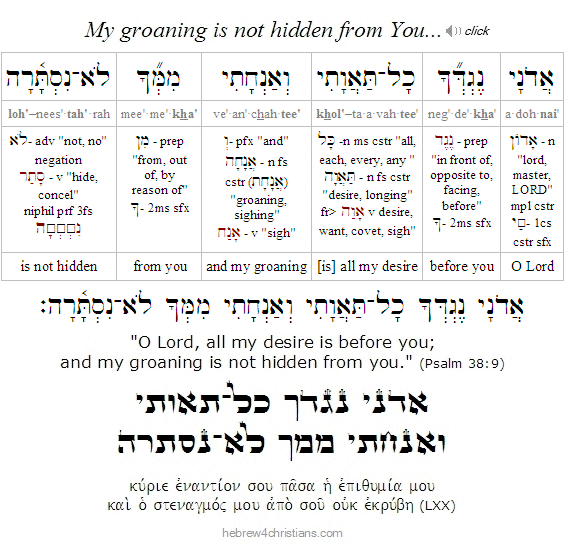 |
מקדש הלב
Shrine of the Heart...
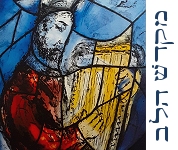
[ The following is related to our Torah reading this week, parashat Terumah... ]
02.12.24 (I Adar 3, 5784) The sages have said that salvation may be likened to spiritual rebirth that delivers us from the "narrow places of Egypt" (i.e., from mitzrayim: -מ, "from," and צַר, "narrow") into newness of life... The first step of lasting deliverance (יְשׁוּעָה) is to receive the great revelation: "I AM the Lord your God," which begins the healing process (Exod. 20:2). We are set free from our bonds to surface appearances when we are made fully conscious of God's Presence, since we then understand everything in holy relationship with Ultimate Reality, the Ground and Source of all life (Acts 17:28). As it says in our Scriptures: "We look not to the things that are seen but to the things that are unseen: For the things that are seen are transient, but the things that are unseen are eternal" (2 Cor. 4:18). Therefore the Lord says in our Torah portion, "Make for me a sacred place (מִקְדָּשׁ) so I can dwell within you" (Exod. 25:8). Each of us is created to be "mikdash ha'lev" (מקדש הלב) that is, a sacred place for God (1 Cor. 3:16; 1 Cor. 6:19). Making a sanctuary of the heart means choosing to stay connected with reality, attuning the heart to hear the Voice of the Spirit, and consciously walking before the Divine Presence.
Hebrew Lesson
Psalm 16:8 Hebrew reading Lesson
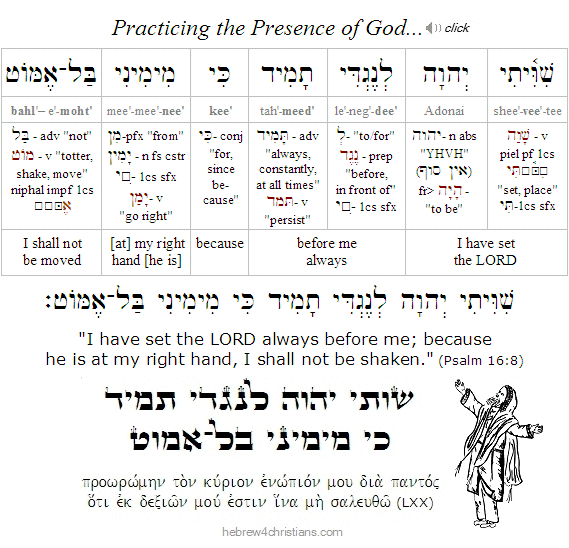 |
The Hebrew word terumah (תּרוּמָה), the name of our Torah portion, means "gift" or "contribution," which first of all refers to the decision to give of our hearts to enshrine God's Presence. We "set the LORD always before us"; we abide in the Vine and remain connected to Him (Psalm 16:8; John 15:5). It two-way partnership: we first believe God's invitation to abide within his heart and live as his beloved child, and then we make a sacred place for Him within our heart as the place of his dwelling (Rev. 3:20).
King David wrote, עוֹלָם חֶסֶד יִבָּנֶה / olam chesed yibaneh: "The (eternal) world is built with love" (Psalm 89:2), and so indeed is God's place within our hearts... We make God lovely and beautiful and wonderful and precious to us; we enshrine him and lift up our souls unto him in adoration and thanks. When we are willing to take part in the building of the sanctuary, God reveals to us "the pattern," that is, the inspiration that evidences His presence in our lives. As Yeshua said, "Let your light so shine" (Matt. 5:16).
 |
The Divine Encounter...
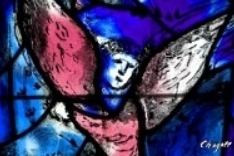
02.12.24 (I Adar 3, 5784) In our Torah reading for this week (i.e., parashat Terumah) the Lord told Moses to construct the Mishkan (or "tabernacle") exactly according to the pattern he was shown during his revelation on Mount Sinai (Exod. 25:40). At the inmost center of this Tabernacle -- the place of utmost holiness -- the Ark of the Covenant (אֲרוֹן־הַקּדֶשׁ) was placed, a "three-in-one" box that held the tablets of the covenant. The Ark served as a symbol of kisei ha-kavod (כִּסֵּא הַכָּבוֹד), the Throne of Glory, since it stood entirely apart as the only furnishing in the Holy of Holies (קדֶשׁ הַקֳּדָשִׁים). Upon the cover of the Ark (i.e., the kapporet) were fashioned two cherubim (i.e., angel-like figures) that faced one another (Exod. 25:17-18). According to the Talmud (Succah 5b), each cherub had the face of a child - one boy and one girl - and their wings spread heavenward as their eyes gazed upon the cover (Exod. 25:20). It was here - in the midst of sacred innocence, humility, purity, and hope - that the sacrificial blood was offered to make atonement for our sins, and it was here where God's Voice would be heard (Exod. 25:22; Num. 7:89).
The allusion of two innocent children's faces peering before the Throne of God gives fresh meaning to the statement that unless you "turn and become like children, you will never enter the kingdom of heaven" (Matt. 18:1-3). The most important things of life are only known through love, and so-called knowledge apart from love is actually nothing (1 Cor. 13:2). Knowledge "puffs up" (φυσιόω), that is, it swells and feeds the ego and its posture before others, whereas love "builds up" (οἰκοδομέω), that is, it is other-focused and seeks to create a sense of habitation and a place of safety. "If anyone imagines that he knows something, he does not yet know as he ought to know; but if anyone loves God, he is known by Him" (1 Cor. 8:2-3). May God help us shine his love as His dear children...
Love is the reason we turn to God; it is the basis for teshuvah: "We love Him because He first loved us." We answer God's love by turning to Him.... that is the very first step. We must first receive hope into our hearts and that starts us on our way.
Hebrew Lesson
Jeremiah 31:33b reading (click for audio):
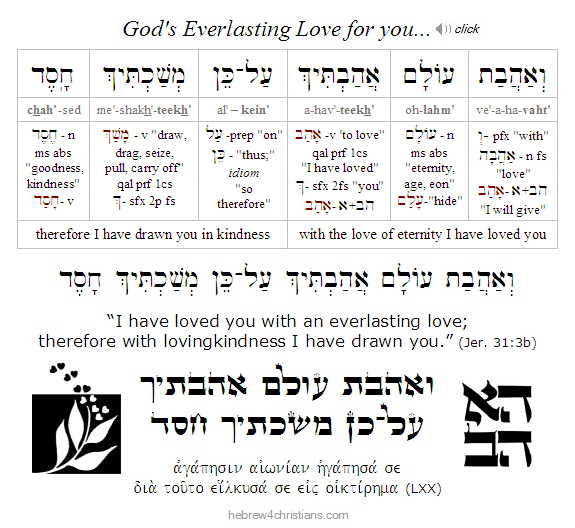 |
Living in Yeshua's Heart...
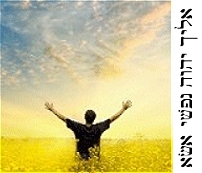
02.12.24 (I Adar 3, 5784) Yeshua likened His relationship with his followers in terms using the metaphor of a vine and its branches: "I am the true Vine (הַגֶּפֶן הָאֲמִתִּית), and you are the branches" (see John 15:1-5). We derive our identity, life and strength from being made part of His life... The purpose of the branch is to be a conduit of the life of the vine. Vine branches by themselves are of little value, apart from the manifestation of fruit; they cannot be used for building things and otherwise are regarded as bramble (Ezek. 15:2-4). Notice further that the vine branch cannot bear good fruit while it remains on the ground: it must "climb" upward and be elevated. And if you look closely at a vine, it is often difficult to see where the vine ends and the branches begin. The life of the branch becomes "entangled" in God's love as it bears spiritual fruit from the sustenance of the True Vine (הַגֶּפֶן הָאֲמִתִּית). When we abide in, or are truly connected with, Yeshua as the Source of life, we bear the fragrance and sweet-smelling savor of heaven itself...
"I am the vine; you are the branches. Whoever abides in me and I in him, he it is that bears much fruit, for apart from me you can do nothing" (John 15:5). Note that the expression "apart from me" (χωρὶς ἐμοῦ) means being in a state of separation from Yeshua, which is likened to spiritual death... It is the death of possibility, the absence of power to yield true good to the world, and so on. This is what is meant by "you can do nothing" (οὐ δύνασθε ποιεῖν οὐδέν), that is, you can do nothing of any lasting significance or worth... There is simply no true life apart from the Savior who is the Source of divine life. May we all find life and peace in Yeshua's heart, friends. Shavuah tov chaverim!
Hebrew Lesson
Matthew 11:28 Hebrew reading:
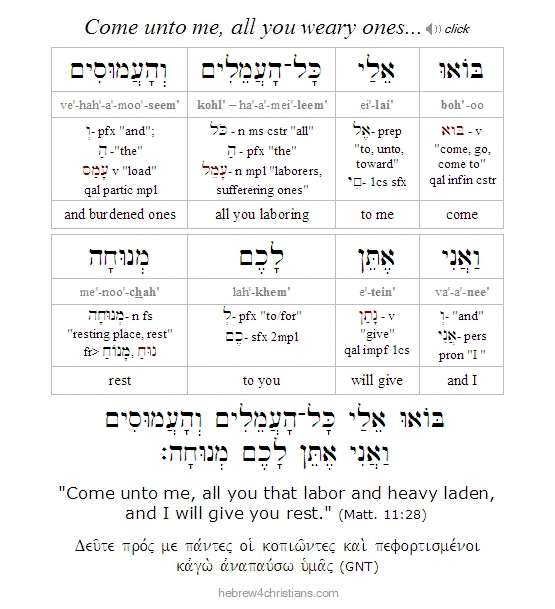 |
Being Rich toward Heaven...

02.11.24 (I Adar 2, 5784) In our Torah for this week (i.e., Terumah) we read: "Take for Me an offering…" (Exod. 25:2). The midrash says that this teaches that when you give tzedakah (charity) to those in need, you take God to yourself, as it is written: "For the LORD stands to the right of the needy" (Psalm 109:31), and "whoever shows pity to the poor lends to the LORD, and his kindness will be repaid to him" (Prov. 19:17).
It may seem counter-intuitive to carnal and worldly reasoning, but when you give to others, you will receive even more in return (Mal. 3:10). Indeed the person who seeks treasure for himself is not rich toward God, since we can only keep what we give away in kindness (Luke 12:21). As our Lord taught: "Give, and it will be given to you. Good measure, pressed down, shaken together, running over, will be put into your lap. For with the measure you use it will be measured back to you" (Luke 6:38).
מַלְוֵה יְהוָה חוֹנֵן דָּל
וּגְמֻלוֹ יְשַׁלֶּם־לוֹ
mal·veih · Adonai · kho·nein · dahl
oo·ge·moo·loh · ye·sha·lem-loh

"Whoever shows pity to the poor lends to the LORD,
and his kindness will be repaid to him."
(Prov. 19:17)

"Take for me an offering..." (Exod. 25:2). The Torah here indicates that the LORD is our great Kohen Gadol (High Priest), for He asked for terumah (an offering or contribution) just as the earthly kohen was given terumah from the yearly yields of the farmers...
Parashat Terumah:
Enshrining God's Presence...

[ The Kotzker Rebbe said that the verse, "this is my God, and I will praise him, my father's God, and I will exalt Him" (Exod. 15:2), may be understood as, "this is my God, and I will make a dwelling for Him within me..." ]
02.11.24 (I Adar 2, 5784) Last week's Torah reading (i.e., Mishpatim) explained how the Israelites entered into covenant with the LORD at Mount Sinai. The terms of the covenant were written down in Sefer HaBrit ("the Book of the Covenant"), which contained a variety of laws (מִשְׁפָּטִים) to govern the Jewish people in the Promised Land. When the people agreed to obey the terms of the covenant, Moses took sacrificial blood and sprinkled it on them saying, "Behold the blood of the covenant that the LORD has made with you in accordance with all these words" (Heb. 9:18). Moses then re-ascended the mount to receive the tablets of stone inscribed with the Ten Commandments and to learn additional Torah from the LORD.
Now the goal of the Sinai revelation was not only the giving of the Ten Commandments to the Israelites but more importantly enshrining the Divine Presence within their hearts... Therefore in our Torah portion for this week (i.e., parashat Terumah), we read how God asked the people to offer "gifts from the heart" to create a "place" for Him: "Let them make for me a holy place that I may dwell in their midst" (Exod. 25:8). The Hebrew word for "holy place"is mikdash (מִקְדָּשׁ), which comes from the root word kadash (קָדַשׁ), "to be set apart as sacred." A mikdash is therefore a "set apart space," or a "holy place" that represents something profoundly treasured - a place of beauty and worship, a refuge, a place of rest. Other words that share this root idea include kedushah (holiness), kiddushin (betrothal), kaddish (sanctification), kiddush (marking sacred time), and so on. When God said, "Let them make for me a mikdash," then, he was inviting the people to make a symbolic sacred place for His Presence to be manifest, the Holy of Holies representing God's Throne...
The LORD then showed Moses the three-in-one pattern (i.e., tavnit: תַּבְנִית) according to which the sacred place of the mikdash was to be surrounded by a mishkan (מִשְׁכָּן), or a tent-like dwelling place set apart for the Divine Presence. First an ark of acacia wood was to be overlaid with pure gold inside and out. The ark was to be fitted with gold rings and gold covered poles to make it portable. The two tablets of the law were to be stored inside the ark. Two cherubim (angel-like figures) were to placed facing each other over a cover of the ark called the kapporet (i.e., "Mercy Seat"). The ark was to be housed within an inner chamber of the tent called the Holy of Holies. Adjacent to the Holy of Holies was a second chamber called the Holy Place. This chamber would contain a table overlaid with pure gold that held twelve loaves of bread along with a golden, seven-branched menorah. The Holy of Holies was separated from the Holy Place by an ornamental veil called the parochet before which a golden altar of incense would be placed.
The various "materials" required to make the mishkan (and mikdash), namely, the gold, silver, brass, red and purple yarns, fine linens, oils, spices, precious stones, and so on, were to be supplied from the people by means of free-will offerings given to honor the LORD. Collectively these offerings were referred to as terumot (תְּרוּמוֹת), meaning consecrated "donations" or "contributions" (from the verb רוּם meaning to raise or lift up) though later the word generally referred to various tithes given to the priests.
Hebrew Lesson
Exodus 25:2a Hebrew reading:
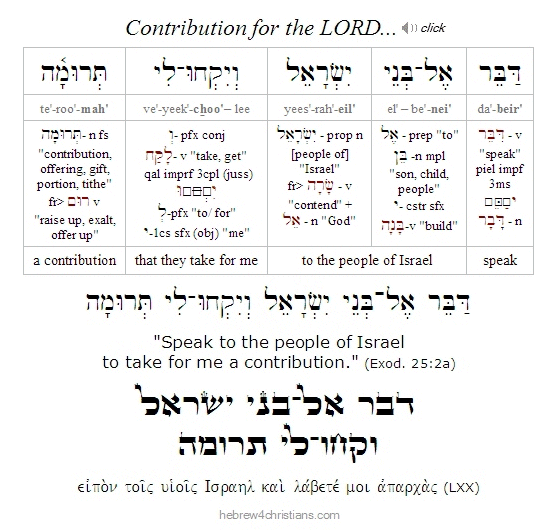 |
The LORD then described the pattern of the tent of the Tabernacle (i.e., ohel: אֹהֶל) along with its exact dimensions. The tent was designed to be portable, with a wooden frame covered by richly colored fabric and the hide of rams and goats. The outer court was to include an altar with horns of copper at each corner. The portion ends with a description of the outer court, which was to be entirely enclosed by an ornamental fence made with fine linen on silver poles with hooks of silver and sockets of brass.
Tripartite Structure of the Mishkan
Trust from the Heart...
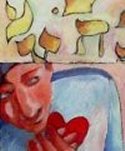
02.09.24 (Shevat 30, 5784) "Trust in the LORD with all your heart, and do not rely on your own understanding" (Prov. 3:5). Note the contrast between trusting and understanding in this familiar verse. Trust is a matter of heart, the decision to let go, whereas understanding is analytical, "objective," a matter of physical seeing. Human reason may help you discern the "what" of faith, but it is powerless to waken the soul, to breath life into heart, and to impart passion to seek God's Presence as your greatest need and your utmost good. That only comes through the sober awareness of your own sinful condition, the inner conviction that you are utterly undone and without hope apart from the intervention of God in your life, and the will to believe in the miracle...
בטח אל־יהוה בכל־לבך
ואל־בינתך אל־תשׁען
be·tach · el-Adonai · be·khol · lee·be'·kha
ve·el - bee·na'·te·kha · al-teesh·sha·ein

"Trust in the LORD with all your heart
and do not rely on your own understanding"
(Prov. 3:5)

Most commandments do not test how we comprehend our faith as much as they test the surrender of our heart. The test of faith requires bittachon (בִּטָּחוֹן) - that is, abandoning our need to understand so that we can hold fast to God's promise and blessing... "Fear not, for I am with you..." (Isa. 41:10). That's what we need most, to trust that we are safe in God's love, and that's the ultimate message of our atonement in Messiah.
Torah of Tradition...
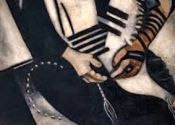
02.09.24 (Shevat 30, 5784) Last week's Torah portion (Yitro) explained that exactly seven weeks after the Exodus from Egypt, Moses gathered the Israelites at the foot of Mount Sinai to enter into covenant with the LORD. In a dramatic display of thunder, lightning, billowing smoke and fire, the LORD then descended upon the mountain and recited the Ten Commandments to the people. Upon hearing the law's moral requirements, however, the people shrank back in fear and begged Moses to be their mediator before God. The people then stood far off while Moses alone drew near to the thick darkness to receive the details of the Torah from the LORD.
This week's Torah portion begins with Moses in the midst of the "thick darkness" receiving additional rules (i.e., mishpatim, "legal judgments") regarding civil life for the newly redeemed people. The sages count 53 distinct commandments listed in this portion of the Torah, making it one of the most "legalistic" sections of the Bible. Civil laws, liability laws, criminal laws, agricultural laws, financial laws, family purity laws, Sabbath laws, and holiday laws are all given in this portion.
In Jewish thought, the word "Torah" (תּוֹרָה) is a general concept that implies a wide range of related ideas and concepts that focus on discerning God's will. A primary distinction is between the written Torah, on the one hand, and the oral Torah on the other. The written Torah, called shebichtav (שֶׁבִּכְתָב, "that which is written"), refers to the text that has been meticulously transmitted since the time of Moses in the form of a Sefer Torah (i.e., a kosher Torah scroll). The oral Torah, on the other hand, is called shebal peh (שֶׁבְּעַל פֶּה, "that which is oral"), and refers to legal and interpretative traditions handed down by word of mouth until these were codified in the Mishnah and Gemara (i.e., the Talmud). The Oral tradition further includes the Midrash (traditional exegesis), the Responsa (questions and answers given by "poskim," or legal scholars), the Shulchan Aruch (16th century codification of Jewish case law), and various other commentaries handed down over the centuries. Some people further claim that "Kabbalah" is also contained within oral tradition, though strictly speaking it is not regarded as part of the Oral Torah as understood in Jewish tradition.
Jewish thought maintains that the written Torah and the oral Torah are complementary, since Moses himself established the role of judges and law courts in the written Torah (Exod. 18:13-26; Num. 11:24-29; Deut. 16:18-20; 17:8-12), and ultimately the oral Torah derives its justification and substance from the written revelation. Indeed it is somewhat artificial to distinguish between the two in practice, since the written Torah was preserved through tradition (i.e., the scribal transmission, the books to be included in the canon, etc.), just as the oral Torah was validated by the written words of the Torah scroll itself. Moreover, within both of these "Torahs" we can make further distinctions. For example, in the written Torah there is both narrative (alilah) and Gods' explicit commandments (mitzvot), which roughly corresponds to the distinction between "aggadic" (homiletical) and "halakhic" (legal) literature found in the oral Torah. In addition, just as the 613 mitzvot of the written Torah can be subdivided into the categories of mishpatim (laws), chukkot (decrees), and eidot (testimonials), so the Jewish legal tradition discusses the corresponding ideas of takkanot (case laws), gezerot (rabbinical decrees), and minhagim (customs). In short, there is a sort of circular reasoning involved in the traditional Jewish idea of Torah: The written Torah was passed down (validated) by means of the oral Torah; but the oral Torah derives its authority from the written Torah:
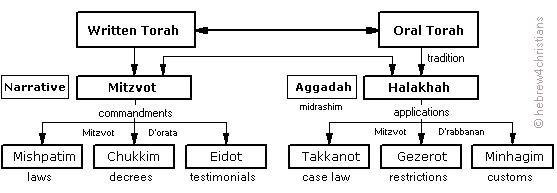 |
It is important to keep these distinctions in mind whenever we discuss the meaning of the word "Torah." Many Christians tend to oversimplify the issue by regarding the Torah as "the law" or the first five books of Moses. For most Jews, however, the word "Torah" encompasses the collective (and ongoing) discussion about the meaning and significance of the words of Moses (and of the prophets) that has been taking place for thousands of years. Understood in this sense, Torah represents the collective "memory" of the Jewish people as they have reasoned through questions about law, custom and tradition over the centuries.
Of course the Christian faith has a somewhat similar relationship between the authoritative texts of the Bible, on the one hand, and the influence of religious tradition on the other. The transmission of the Greek New Testament, the decision to include certain books into the canon (and to exclude others), the basic theological interpretations that defined the idea of the "church," the role of the sacraments, and so on, are just as much a part of Christian history as they are a part of Jewish history.
To illustrate the process of understanding a particular mishpat, or "rule" given in the written Torah, we take as an example the commandment to "distance yourself from a false word" (i.e., מִדְּבַר־שֶׁקֶר תִּרְחָק) found in this week's Torah portion (Exod. 23:7). First note that the Hebrew text itself does not define midbar-sheker (a "false word," or a "false thing"), nor does it define the verb used in this phrase (i.e., rachak: רָחַק), and therefore we are forced to look to tradition (i.e., lexicons, translations, commentaries, etc.) to help determine the meaning of this commandment. Most reputable lexicons identify the root of the verb to mean "being far" or "distant" from something, and then go on to provide basic usage examples found in the Scriptures. Apart from this sort of linguistic information, however, we must look to Jewish tradition (masorah) to better understand the meaning of this text. When we do so, we discover that the sages noted that the verb rachak was not used with other commandments in the Torah, and therefore they were careful to study the context of the commandment as it appears in the surrounding flow of the text itself (i.e., the litany of rules to be used when deciding cases of civil law and matters of jurisprudence). The sages then compared this with related concepts revealed in the Torah, such as the requirement for judges to be truthful and fair in their decisions, to refrain from accepting bribes, to fear God and not man, and so on (Exod. 18:21; Deut. 1:16, etc.). After going through this sort of process, the sages began to dialog about the intent of the commandment as a call to preserve the integrity of the judicial process itself. The rule that a judge must be "far removed from a false matter" is therefore understood as the prohibition from taking a bribe in matters of civil law.
The sages further compared the commandment to "distance yourself from a false matter" with the more general commandment found in the Book of Leviticus: "You shall not deal falsely with one another" (i.e., לא־תְכַחֲשׁו) in Lev. 19:11). According to most of the traditional commentators, truth-telling is regarded as a moral imperative of Torah - whether in matters of civil law or in interpersonal relationships. Indeed, throughout the ethical teaching of the Scriptures, the tzaddik, the righteous man, is always described as yashar - a person full of integrity and moral righteousness. We have a moral obligation, in other words, to speak truthfully, and an entire area of mussar (traditional Jewish moral education) concerns the topics of lashon hara (evil talk), dibbur emet (truth-telling), and so on.
Nonetheless, the sages note that things are not always "black and white," and they therefore wrestled with the question of whether it was ever permissible to set aside the obligation to speak the truth in certain mitigating circumstances. For example, in Jewish tradition, Aaron is known as a man "who loved peace, pursued peace, and created peace between man and his friend" (Sanhedrin 6b). The sages note that whenever a dispute developed between two Israelites, Aaron would go to each party and say that the other person deeply regretted the quarrel. Aaron's "fabrications" were intended to teach the greater truth that love and peace were more important than the facts of a given case. Likewise the Talmud insists that it is appropriate to sing "How beautiful and charming is the bride" at a wedding, even if it is clear that she is not. The House of Shammai had argued that people should refrain from doing so, based on the Torah's commandment to "distance yourself from a false matter," whereas the House of Hillel argued that the obligation to avoid embarrassing the bride (and groom) takes precedence over the obligation to demand that judgments be factually correct. Sometimes, for the sake of peace, the truth may be "overlooked" for the sake of love (1 Pet. 4:8; Prov. 17:9). In this connection we note how Joseph intended to spare Mary shame and disgrace after it became known that she was pregnant with Yeshua (Matt. 1:19).
The sages further argue that this approach may be seen in the Torah itself. For instance, when the three angels appeared before Abraham and Sarah to announce the birth of Isaac, Sarah laughed and said within herself, "After I am worn out and my husband is so old, shall I enjoy this pleasure?" The LORD, however, did not repeat Sarah's words but abbreviated them as: "Shall I indeed bear a child, now that I am old?" (Gen. 18:12-13). According to the traditional commentaries, the LORD "overlooked" Sarah's reference to Abraham's old age in order to keep the peace between them....
All of this discussion is meant to lead to practical application and to discern principles of conduct by which we should strive to order our decisions. As I've mentioned elsewhere, if deception is sometimes "allowed" for the sake of peace and love, the converse also appears to be true. Truth can be used as a weapon in the service of the kingdom of Hell... In other words, sometimes true words and actions performed in an unloving or spiteful manner are morally blameworthy. Dietrich Bonhoeffer (1906–1945) tells the story about how a teacher once humiliated one of her students by standing him up in front of the class to ask whether his father -- notoriously known as the town drunk -- had been out drinking the night before. The little boy knew the accusation was factually true but bravely announced "No." When the teacher mockingly asked him again, pressing him for "the truth," the boy was adamant: "NO!" Bonhoeffer's comment was that this little boy spoke more truth by his lie than if he had merely reported the "facts" to the class -- and thereby betrayed the dignity of his father... The truth is not some objective state of affairs that can be reported dispassionately. Without love as its context, such "truth" becomes a lie.
Some people believe that truth should never be compromised - even at the expense of the feelings and needs of others - while others insist that it is wise to sometimes seek compromise, especially regarding matters of personal "rights." Yeshua warned us, "Come to terms quickly with your accuser while you are going with him to court, lest your accuser hand you over to the judge, and the judge to the guard, and you be put in prison. Truly, I say to you, you will never get out until you have paid the last penny" (Matt. 5:25-26). The cost of pursuing "truth" at the expense of mercy is costly indeed, and often the demand for justice is a proverbial two-edged sword. The true neighbor is the one who shows compassion and mercy (Luke 10:29-37). As James put it: "For judgment is without mercy to one who has shown no mercy. Mercy triumphs over judgment" (James 2:13).
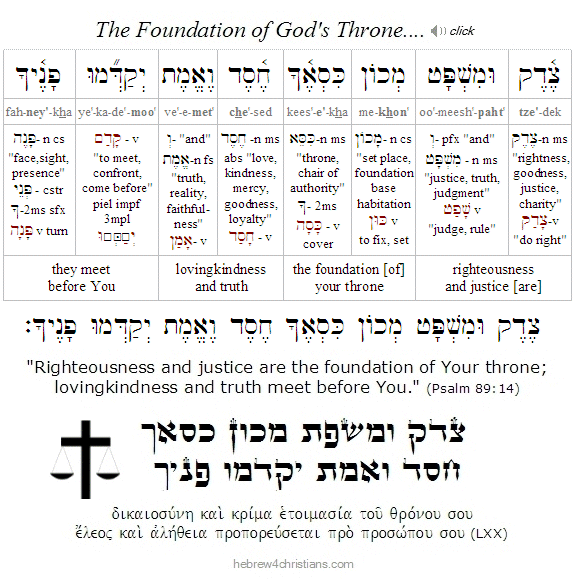 |
The message of the cross is that "steadfast love and truth have met; righteousness and peace have kissed each other" (Psalm 85:10). Because of Yeshua, God is vindicated as entirely just - and the Justifier of those who trust in His redemptive love (Rom. 3:24-26). The author of the Book of Hebrews states that "in these last days God has spoken to us by his Son, whom he appointed the heir of all things, through whom also he created the world" (Heb 1:2). The Greek construction for the phrase translated, "by his son" is ἐλάλησεν ἡμῖν ἐν υἱῷ, which literally means "he spoke to us in son" -- that is, in the language or voice of the Son of God Himself... God now speaks in the language "of Son," which is the language of mercy, grace, and forgiveness. May God help us all to speak this language to one another as we walk in the righteousness His love demands....
Audio Podcast:
The Torah of Mercy...
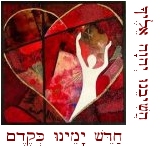
02.09.24 (Shevat 30, 5784) It has been said that grace is getting what you don't deserve, whereas mercy is not getting what you do... Yeshua said, "Blessed are the merciful, for they shall receive mercy" (Matt. 5:7). This is not a reciprocal law like karma, i.e., you get in return what you first give, since we cannot obtain God's mercy as reward for our own supposed merit (Rom. 4:4). No, we are able to extend mercy to others only when we are made merciful ("full of mercy"), that is, when we first receive mercy as the gift of God (Eph. 2:8; Rom. 5:15). After all, you can't give away what you don't have, and if we have no mercy for others, it is likely that we have not received it ourselves, as the parable of the Good Samaritan reveals (Luke 10:25-8). Your forgiveness is your forgiveness, that is, as you forgive, so you reveal your heart. What you do comes from what you are, not the other way around. We are first changed by God's grace and then flow works of love. We judge others mercifully, with the "good eye," because we come to believe that we are beloved by God.
When Yeshua rebuked the "holier-than-thou" attitude of some people, he said: "Go and learn what this means, 'I desire mercy, and not sacrifice.' For I came not to call the righteous, but sinners" (Matt. 9:13). The pattern therefore abides: First you realize you are broken, impoverished of heart, and you mourn over your sinful condition (Matt. 5:3-4); then you hunger and thirst for God's righteousness, that is, for his healing and deliverance, and finally you learn to trust the mercy of God, that is, you come to accept that you are accepted despite your unacceptability (Matt. 5:5-6). As you begin "suffer yourself" and forgive your own evil, you are enabled to extend this mercy to others (Matt. 5:7). In this way you begin to see God in your relationships and obey the heart of truth (Matt. 5:8; 1 Sam. 15:22).
Though we love and honor truth, we must be careful never to use it as a weapon to judge or wound others. The failure to extend mercy, to demand your "rights" or hold on to grudges, implies that you are relating to God as Judge rather than as Savior (James 2:13). If we condemn what we see in others, we have yet to truly see what is within our own hearts; we have yet to see our desperate need for God's mercy for our lives. If you don't own your own sin, your sin will own you. Being merciful is a response to God's love and therefore is essential to genuine teshuvah (repentance). Walking in love is the deepest expression of truth, since love heals untruth and embraces hope for what is presently broken (1 Cor. 13:7). In light of this, take a moment to ask the LORD to help you relinquish the pain of your past by being full of mercy toward yourself and others. Honor God's love for you by forgiving yourself and showing compassion and mercy to others in your life...
Hebrew Lesson
Hosea 6:6 Hebrew reading (click):
Sanctifying God's Name...
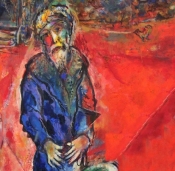
02.09.24 (Shevat 30, 5784) Some people who profess faith in God become disillusioned when they experience hardship and trials in their lives. They get offended because they had assumed that faith in God ought to be the ticket to the "good life," that is, a life of blessing and ongoing prosperity ("your best life now!"). When unexpected misfortune or tragedy comes, however, their faith in God is shaken and sometimes becomes broken altogether...
This indicates that their faith in God is regarded as a means to the end of personal fulfillment and happiness, and therefore that God is "accepted" only so long as things go well for them. The focus, of course, is not so much on God as it is on the self, as God is instrumentally regarded as the gift-giver or "servant" of the soul to be made happy...
An idolatrous conception of God is rooted in self-deception... The Lord does not exist for our sake, but on the contrary, we exist for His. Genuine faith is always tested in the "school of suffering," and our education for eternity is the divine curriculum.
Yes, there are sunny days of comfort and beauty along the way of faith, but there are also days of adversity, trouble, disappointment, and grief. Where is God then, in harrowing moments of anguish and desolation? "God did not spare my dying child.. he did not heed my prayers... How can I trust him now?" "Where was God when I was bereft of my innocence, brought low and forsaken? Where was he when I needed him most?" "How long, O LORD, will you forget me, forever? How long will you hide your face from me?"
Such experiences, as painful as they are, nevertheless are part of the plan of God, his "Torah of adversity" that strips away all our illusory hopes, desires, and dreams so that we might know Him as our only true hope. Our various "idols" of the heart and mind must be demolished; our faulty assumptions exposed, and our world turned upside-down. Our hearts must be first made barren and lost, so that we can come to know God in the truth....
"The LORD has given; and the LORD has taken away: may the Name of the LORD be blessed" (Job 1:21). This is the first great lesson of a mature faith: to bow before the LORD God as the Sovereign Power over all and to accept his decrees. We cannot cajole the LORD to do our will; we can offer him no counsel; we cannot manipulate him through flattery, tears, or defiance... Religious rituals do not propitiate his will. God is the all-powerful one before whom we can do nothing but yield ourselves in trust.
We are not the center of things; God is not our servant to make us happy; we owe our existence to Him alone. All we offer him is our need. The first lesson, then, can be understood as the truth that there is indeed a God, and you are not Him.... Understanding these truths opens your eyes to the reality of the LORD, to His great Majesty and Glory, in which everything about you -- your beginning, your middle, and your end, yea, every moment of your life -- is under his sovereign power and overarching providence. And when you internalize these truths, when you esteem them ardently within your heart, you then can pray to the Living God who is over All, the LORD of Glory who upholds and sustains all things by the word of His power.
The way of faith is not easy, even if our hearts are aflame with the truth of God's overmastering brilliance, power, and grace. There remains the ongoing struggle to accept God's will and to trust in Him despite the darkness of our finitude, brokenness, and powerlessness. Asking why the LORD God does he does leads away from childish ideas of "karma" unto the mystery of suffering, to the cross of Messiah, to the sacrifice of love.
At first we may try to justify suffering for the sake of an inscrutably greater good, but ultimately such reasoning is insufficient and we are rendered silent. If we persevere, we begin to hear the Voice of God from the midst of the whirlwind, as God reveals his glory as the sacred center of Reality before whom all things mysteriously revolve.
We are consigned to live under the "dark cloud of unknowing" because God's plans and purposes exceed all our finite comprehension. We are given precious promises, but we see "through a glass darkly" until our redemption is made complete. We do not need -- nor can we supply -- rationalizations for what God does in his universe, though the life of faith believes that his mercy and love pervades everything (Deut. 4:24).
Meanwhile we will suffer in this world; we will be afraid; we will hurt; we will die, and things will often not make sense to us. But our faith is expressed in courage that is willing to accept all things - both the good and the bad -- as part of God's plan. We are given the cup to drink, just as Yeshua was given, and we can surrender to God's will even for the sorrows and sufferings we may experience along the way. Remaining faithful to the LORD in the midst of the ambiguities of life is a kiddush Hashem, that is, a life that sanctifies God's Name.
Hebrew Lesson
Job 1:21b reading (click for audio):
You shall be holy to Me...
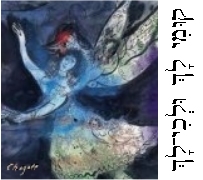
[ The following is related to this week's Torah reading (Mishpatim). ]
02.09.24 (Shevat 30, 5784) "You shall be holy to me" (Exod. 19:6; 22:31). That is, you shall be "set apart" to know and live in God's love; you shall dwell in the secret place of the Most High, a place prepared especially for you (Psalm 91:1; John 14:2).
Properly understood, holiness (קְדֻשָּׁה) expresses the realm of being loved, cared for, and watched over. It is an intimacy that is exclusively hallowed and made sacred. God calls you to his closed off chamber, the "holy of holies" where He dwells; there he invites you in, he welcomes you, he desires to see you (Heb. 4:16).
The deeper meaning of holiness is to be spiritually intimate with God. Hence the Spirit of Holiness uses romantic and even sexual imagery in the Song of Songs to express the deepest yearnings we have for connection with God...
Hebrew Lesson
Lev. 11:45b Hebrew reading:
Walking Uprightly...
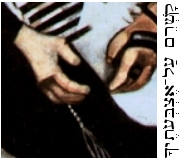
[ God often sends us trials (ניסוים) so that we might turn to Him for help... As Yitzchok Hutner once wisely said, "The main purpose of tefilah (i.e., תְפִלָה, prayer) is not to get us out of problems. The purpose of problems is to get us into tefilah." Indeed one of the worst things that can happen to a soul is to be forgotten by God, to be "let go" and no longer tested... ]
02.09.24 (Shevat 30, 5784) Again in our Torah portion for this week (i.e., parashat Mishpatim) we read, "Keep yourselves away from a false matter" (Exod. 23:7). In this connection note that the Hebrew word for falsehood (or lie) is sheker (שֶׁקֶר), which can be rearranged to spell kesher (קֶשֶׁר), meaning a band, gang, or group of people... The power of the lie is often found in the "group" rather than in the individual, and if enough people in a group repeat something untrue, eventually the individual's conscience will be overruled and the truth will be lost... This is a common methodology regularly employed by mass media for purposes of social engineering and political propaganda.
Regarding this commandment Abraham Twerski comments that it means we should act in a way that will not move us to "hide," and that includes hiding within the anonymity of the crowd. "Think about what you are about to do. Is there a possibility that you may at some time have to deny that you did it? If so, then do not do it" (Twerski on Chumash).
Each of us must individually strive to be yashar (יָשָׁר) - upright and honest - free from the complications and devious speech that attends to lies. We are to be "simple" (תָּמִים) with the LORD our God (Deut. 18:13), which requires that we are first willing to be rigorously honest with ourselves. "No person is saved except by grace; but there is one sin that makes grace impossible, and that is dishonesty; and there is one thing God must forever and unconditionally require, and that is honesty" (Soren Kierkegaard).
In this connection we note that the midrash teaches that the Hebrew word for "truth" (i.e., emet: אֱמֶת) is composed of the first, near-middle, and last letters of the alphabet, whereas the three letters that spell "falsehood" (i.e., sheker: שֶׁקֶר) all stand next to one another. The sages say this suggests that truth creates a firm foundation, secure, strong, and trustworthy, while falsehood is unstable. As it is written, "truth stands forever, falsehood has no legs." In other words, the way of truth is "self-authenticating" and made secure, whereas the way of falsehood is "unlivewithable" and made unsteady...
Hebrew Lesson
Deut. 18:13 Hebrew reading:
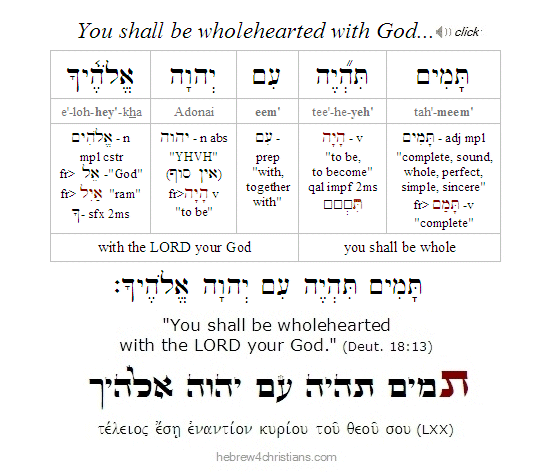 |
The Work of Faith...
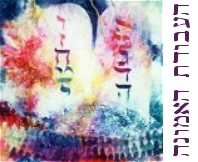
02.09.24 (Shevat 30, 5784) In our Torah portion this week (i.e., parashat Mishpatim) we read that when the people gathered before Moses to receive the covenant, they said: "All that the LORD has spoken we will do and we will hear (נַעֲשֶׂה וְנִשְׁמָע)." Note the order: first comes the decision to obey, and then comes understanding... As Yeshua said, "If anyone's will is to do God's will, he will know," and "if you know these things, blessed are you if you do them" (John 7:17; 13:17).
The heart of faith is willing to do what God asks before hearing what exactly is required. Many people operate the other way round, sitting in judgment of God's word, demanding to understand why they should obey. You cannot understand apart from trust, however, and that is categorically true of all forms of knowledge.
We are to be "doers of the word and not hearers only, deceiving ourselves" (James 1:22). We don't audit the words of Scripture since we ourselves are under examination! The Scriptures demand us to respond, choose, decide. The word is like a shofar blast rousing us to action. We are to be doers, not just passive hearers. The Greek verb is emphatic: "Be doers!" (γίνεσθε) means "be born! come alive! do, live, exist before God! This is a call to creative action, to newness of life!
The Scriptures state that "if anyone is a hearer of the word and not a doer, he is like a man who looks intently at his natural face in a mirror. For he looks at himself and goes away and at once forgets what he was like" (James 1:23-24). If we just hear the truth but do not act upon it, we are comically likened to someone who carefully looks at his face in a mirror but then promptly forgets what he looks like after he steps away... Likewise those who only hear the word but do not bring it to life in their deeds forget who they are and why they were created (Eph. 2:10; Titus 2:14; Col. 1:10). When we look into the mirror of truth we see our need for teshuvah and turn to God for the healing miracle he provides (Heb. 4:12).
There is a deeper law, however, a "mirror" that reveals something beyond our passing image. When we look intently into the "perfect law of liberty" (תּוֹרַת הַחֵרוּת וּמַחֲזִיק) - the law of faith, hope, and love for our Savior - we find blessing in our deeds (James 1:25). Note that the verb translated "look into" the law of liberty is the same used when John stooped down to "look inside" the empty tomb of Yeshua (John 20:5). The deeper law reveals the resurrection power of God's invincible love. The Torah of the New Covenant also has many mitzvot, though these are based on the love God gives to us in Yeshua: "This is my Torah: that you love one another as I have loved you" (John 13:34).
We are set free from the verdict of the law to serve God without fear, on the basis of his saving love and grace given in Yeshua (Gal. 5:1), but our freedom is not meant to violate the Ten Commandments or to engage in licentiousness (Gal. 5:13; Matt. 7:21). The moral law speaks, as it were, to young children who need a guardian until they can attain to their place as hiers (Gal. 3:24). Mature sons and daughters do not not need the law but operate on a different level, and enjoy a different relationship with the Master of the house. Serving God this way results in holy passion. The verse, "the appearance (i.e., mareh: מַרְאֵה) of God's glory was like a consuming fire" (Exod. 24:17) may be read, "the mirror (or reflection) of God's glory..." When we act as God's children, full of faith in his love, and walking before the power of his presence, our hearts reflect his passion, too.
As a brief excursus, let me ask how you can "do the word" and live in harmony with the divine commandments... The dividing line between faith and works is often difficult to discern, after all, and indeed Yeshua told us that faith in Him is itself a type of "work" (John 6:29). Studying the Scriptures, praying, trusting God in the midst of our pains and struggles, and worshiping are all in a sense "works," yet they express the inner reality of faith....
Here is the conundrum: Do we "do the word" by means of our own resolution (i.e., will) to act, or is a deeper miracle of transformation first necessary? If the latter, is the miracle entirely sufficient, or do we need to add something else for it to come into being? The Scriptures command us to be "slow to anger" and "put away wrath," and yet how is that possible apart from God's help, after all? How can we manage destructive emotions that sometimes arise within the heart? How do we "put away" fear? On the other hand, how can we be commanded to love? to be joyful? full of faith?
These considerations reveal the divine-human partnership: We "work out our own salvation with fear and trembling, for it is God who works in you, both to will and to work for his good pleasure" (Phil. 2:12-13). In the end we are faced with paradox: We are utterly dependent upon God to work within our hearts for salvation, yet we are also entirely responsible for working out that salvation in our daily lives. "With man this is impossible, but with God all things are possible" (Mark 10:27).
Hebrew Lesson
Deut. 6:18a reading (click for audio):
We feel this tension throughout the Scriptures. For instance, we read: "For the grace of God that brings salvation (הוֹפִיעַ חֶסֶד אֱלֹהִים לְהוֹשִׁיַ) has appeared to all men, teaching us that, denying ungodliness and worldly lusts, we should live soberly, righteously and godly (בְּצֶדֶק וּבַחֲסִידוּת) in the present age, looking for the blessed hope and glorious appearing of our great God and Savior Yeshua the Messiah (כְּבוֹד אֱלֹהֵינוּ הַגָּדוֹל וּמוֹשִׁיעֵנוּ יֵשׁוּעַ הַמָּשִׁיחַ), who gave Himself for us, that He might redeem us from every lawless deed and purify for Himself His own special people (עַם סְגֻלָּה), zealous for good works" (Titus 2:11-14).
The "Torah of grace" (תורת חסד) teaches us to deny ungodliness and worldly lusts and to live soberly, righteously, and godly in the days of our sojourn, as we look for our blessed hope - the glorious appearance of the great God and our Savior Yeshua the Messiah, who has redeemed us from all lawlessness (ἀνομία) to purify for himself a "chosen people" (λαὸν περιούσιον), zealous of good works... Note here that the grace of God is manifested in the exercise of our good works (i.e., ma'asim tovim: מעשים טובים), and that a little later Paul wrote: "This is a faithful saying, and these things I want you to affirm constantly, that those who have believed in God should be careful to maintain good works" (Titus 3:8). Amen, "For we are His workmanship, created in Yeshua the Messiah for good works, which God has before ordained that we should walk in them" (Eph. 2:10).
"Work out your own salvation with fear and trembling, for it is God who works in you both to will and to do his good pleasure" (Phil. 2:12-13). So let us be careful to "work out" what God has "worked in" to our hearts by letting our light so shine that God receives the glory from what we do with our lives (Matt. 5:16). Amen.
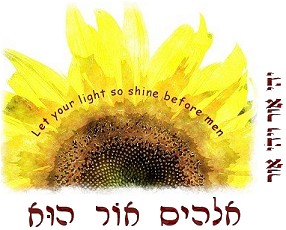 |
 |
The Month of Adar (I)...
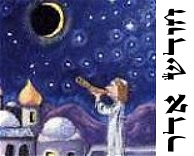
02.08.24 (Shevat 29, 5784) This evening (at sundown) marks Rosh Chodesh Adar (רֹאשׁ חוֹדֶשׁ אַדָר), or the beginning of the Hebrew month of Adar. On the Biblical calendar the month of Adar is the last month of the year counting from Nisan, though during a Jewish "leap year" (as we have this year) an additional month of Adar, called Adar II, is added to the calendar. The month of Adar falls during February/March on the secular (goyishke) calendar.
The 14th day of the last month of the year (i.e., either Adar or Adar II during a leap year) marks the holiday of Purim -- which is always celebrated exactly 30 days before Passover (Megillah 1:4). During both Purim and Passover we celebrate God's deliverance of His people, and therefore Adar is considered one of the happiest of the months of the Jewish year. As it says in the Talmud, "When Adar comes, joy is increased" (Ta'anit 29a).
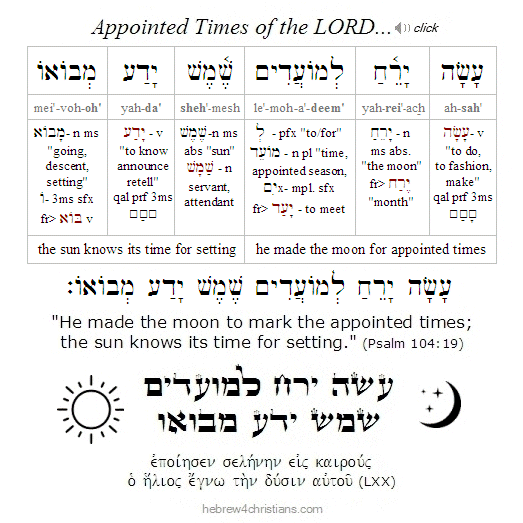 |
Rosh Chodesh Blessing
The following (simplified) blessing can be recited to celebrate the new month and to ask the LORD God Almighty to help you for this coming season:
יְהִי רָצוֹן מִלְּפָנֵיךָ יהוה אֱלהֵינוּ
וֵאלהֵי אֲבוֹתֵינוּ שֶׁתְּחַדֵּשׁ עָלֵינוּ חדֶשׁ טוֹב
בַּאֲדנֵינוּ יֵשׁוּעַ הַמָּשִׁיחַ אָמֵן
ye·hee · rah·tzohn · meel·fah·ney'·kha · Adonai · e·loh·hey'·noo
vei·loh·hey · a·voh·tey'·noo · she·te·cha·deish · ah·ley'·noo · choh·desh · tohv
ba'a·doh·ney'·noo · Ye·shoo'·a' · ha·mah·shee'·ach · ah·mein

"May it be Your will, LORD our God and God of our fathers,
that you renew for us a good month in our Lord Yeshua the Messiah. Amen."

Download Study Card
Close as your shadow...
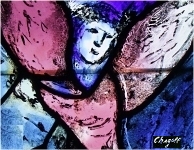
[ If you leave everything in God's hands, eventually you will see God's hand in everything.... ]
02.08.24 (Shevat 29, 5784) When we forget that God is in complete control of all things, we tend to grow anxious... Feeling worried comes from focusing on ourselves, a perspective that can make us feel alone, forgotten, and even victimized in this world. Worry moves us to defend ourselves, to seek refuge in our own devices, and to forfeit the will of God according to the dictates of lesser fears...
The sages say it is not permitted to worry: "To worry is a sin; only one sort of worry is permissible; to worry because one worries." We should worry that we worry because this indicates our hardness of heart and our unbelief! God's name YHVH (יהוה) means "Presence," "Breath," "Life," and "Love." So why be anxious for "tomorrow"? As we live today, we really only have this moment, but this moment is entirely sufficient when we walk in the light of God and seek to know him in all our ways. Amen, so we are admonished: "Let the peace of God rule in you" (Col. 3:15).
Where it says, "The LORD is your protector; the LORD is your shade at your right hand" (Psalm 121:5), note that God's Presence is likened to the shadow (צֵל) cast by someone who walks closely beside you, holding your hand (Psalm 23:4). Your "right hand" (יְמִינֶךָ) refers to your decision to "see the unseen" by performing acts of righteousness in this world: the blessing of God is then cast upon all you do (Deut. 2:7; Psalm 1:3). Neither does God "slumber or sleep," for the LORD your Guardian (יְהוָה שׁמְרֶךָ) is fully awake, full of life, insuperable power, and divine action! Our help comes from the LORD, "oseh shamayim va'aretz" (עשֵׂה שָׁמַיִם וָאָרֶץ) - the Maker of heaven and earth.
יהוה שׁמרך
יהוה צלך על־יד ימינך
Adonai · shohm·re'·kha
Adonai · tzee·le·kha · al-yahd · ye·mee·ne'·kha

"The LORD is your Protector;
the LORD is your shade on your right hand."
(Psalm 121:5)

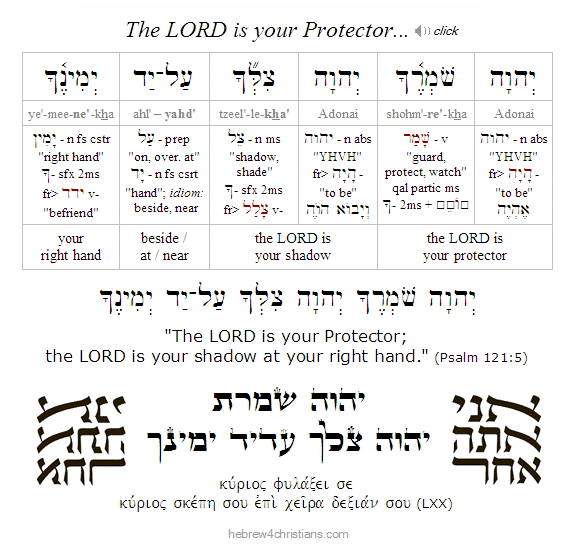
Where it is written, "Let us make man in our image and likeness, we note that the word "image" (i.e., tzelem: צֶלֶם) comes from the word tzel (צֵל), meaning "shadow," thus suggesting that man was originally created to cleave to God as closely as a shadow follows its Substance. And just as a shadow resembles its originating substance, so man was to resemble the reality of the Divine Presence in this world. The New Testament reveals that essential purpose of the redeemed life is to become conformed (σύμμορφος) to the image and likeness of Yeshua (Rom. 8:29, 1 Pet. 2:21). "Just as we have borne the image of the man of dust, we shall also bear the image of the man of heaven" (1 Cor. 15:49). The work of the Spirit is "Messiah in you - the hope of glory" (Col. 1:27). The question therefore isn't, "do you accept Yeshua as your Savior" as much as it is, "Does Yeshua live within your heart?"
Surrendering your Destiny...
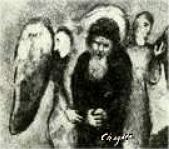
02.08.24 (Shevat 29, 5784) Someone once wrote me and asked whether they were beyond the hope of redemption because they wrestled with ongoing depression and despair... If the life of a follower of the Messiah is to be marked by unspeakable joy, a heart overflowing with "living waters," and inner peace, doesn't emotional pain, a sense of emptiness, and numbness of heart indicate the absence of genuine regeneration?
My response to this honest question was that the struggle itself indicates the presence of real faith, and it is therefore likely that this person was going through a "dark night of the soul," that is, a time of testing and refinement... I counseled him that we are to trust God in the darkness and abandon everything to Him -- even our eternal destiny -- regardless of the ambiguity and sorrows of the present moment.
We must offer up our heart to God and let whatever happens to us happen. By God's grace we are what we are (χάριτι δὲ θεοῦ εἰμι ὅ εἰμι). As Job in his great anguish of soul said: "Behold, [even if] he slays me, I will hope for him; I argue my ways before Him" (Job 13:15). In effect Job laid down his life to be slain and made appeal to God's mercy and truth, despite the mystery and agony of his suffering...
Hebrew Lesson
Job 13:15 reading with comments (click):
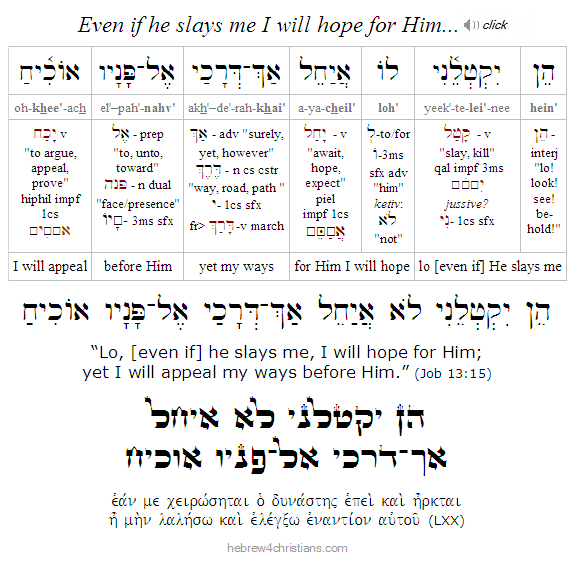 |
|





















































